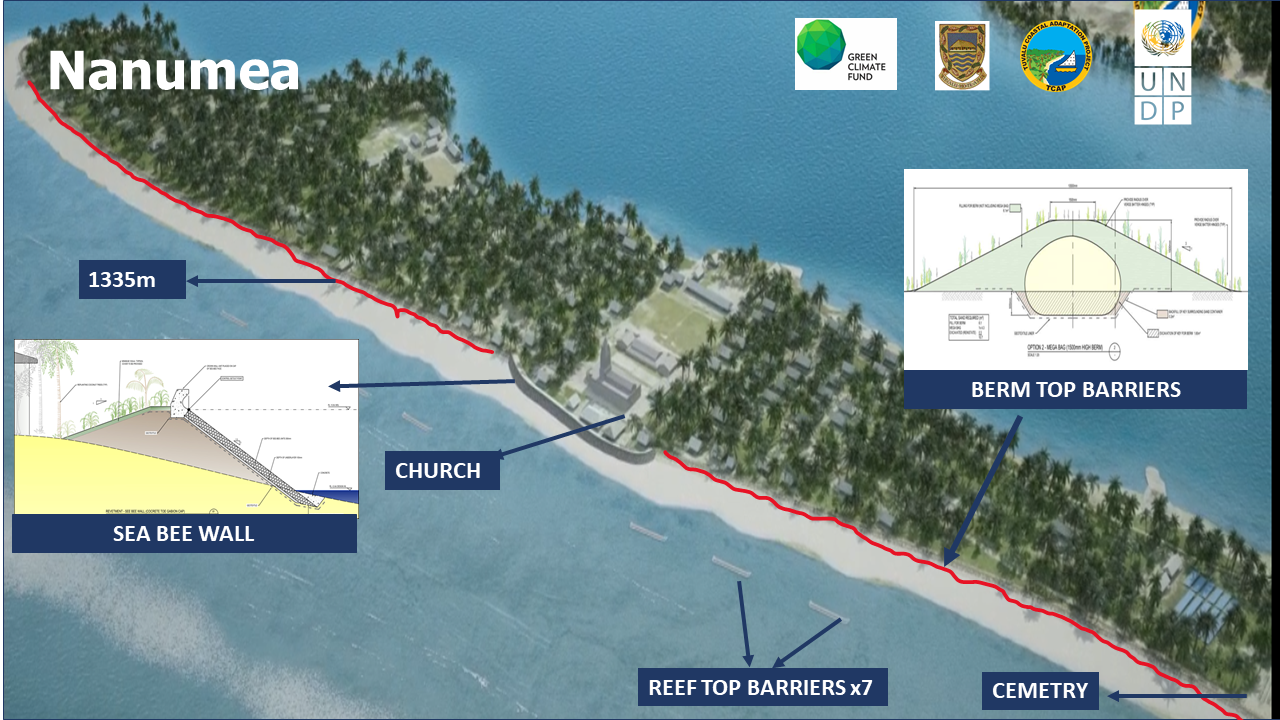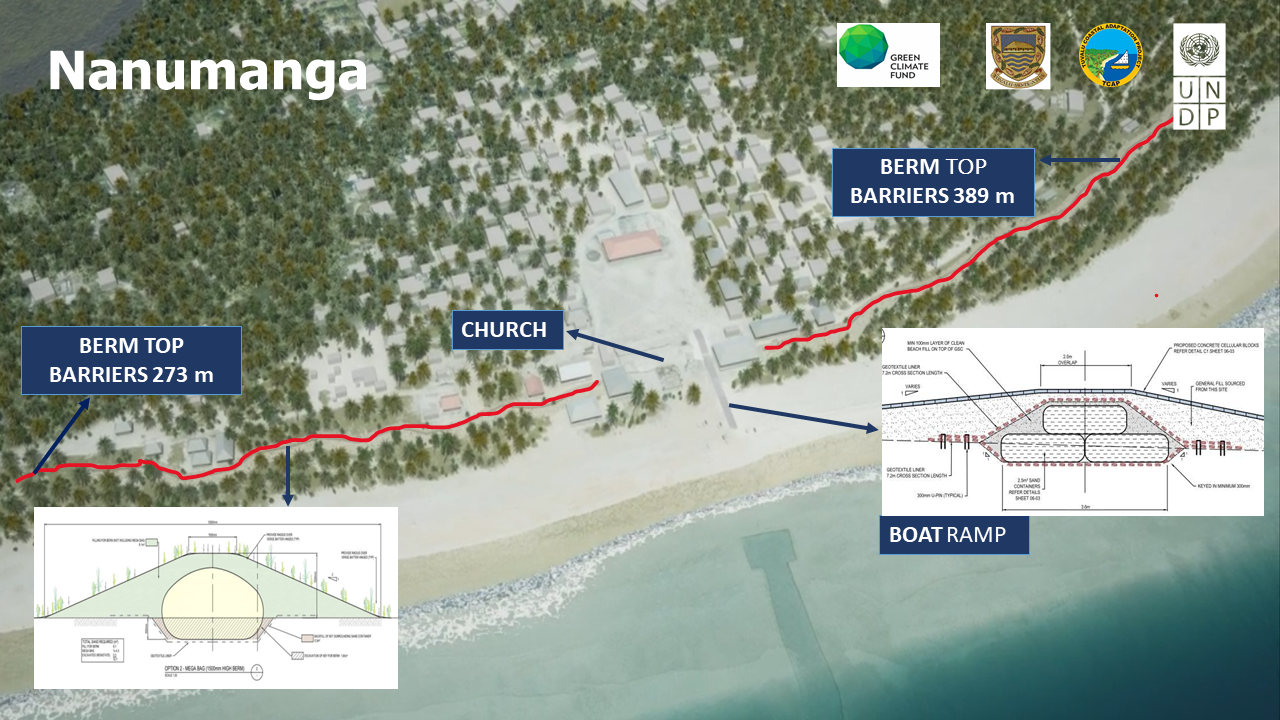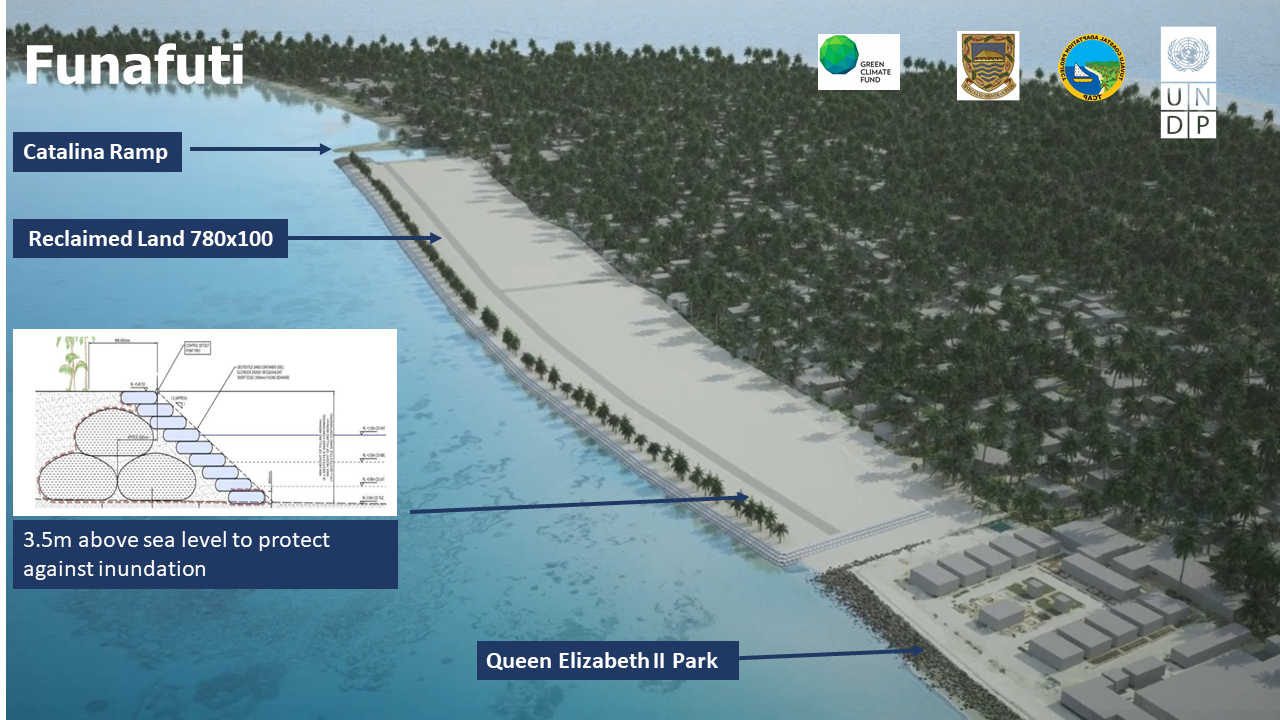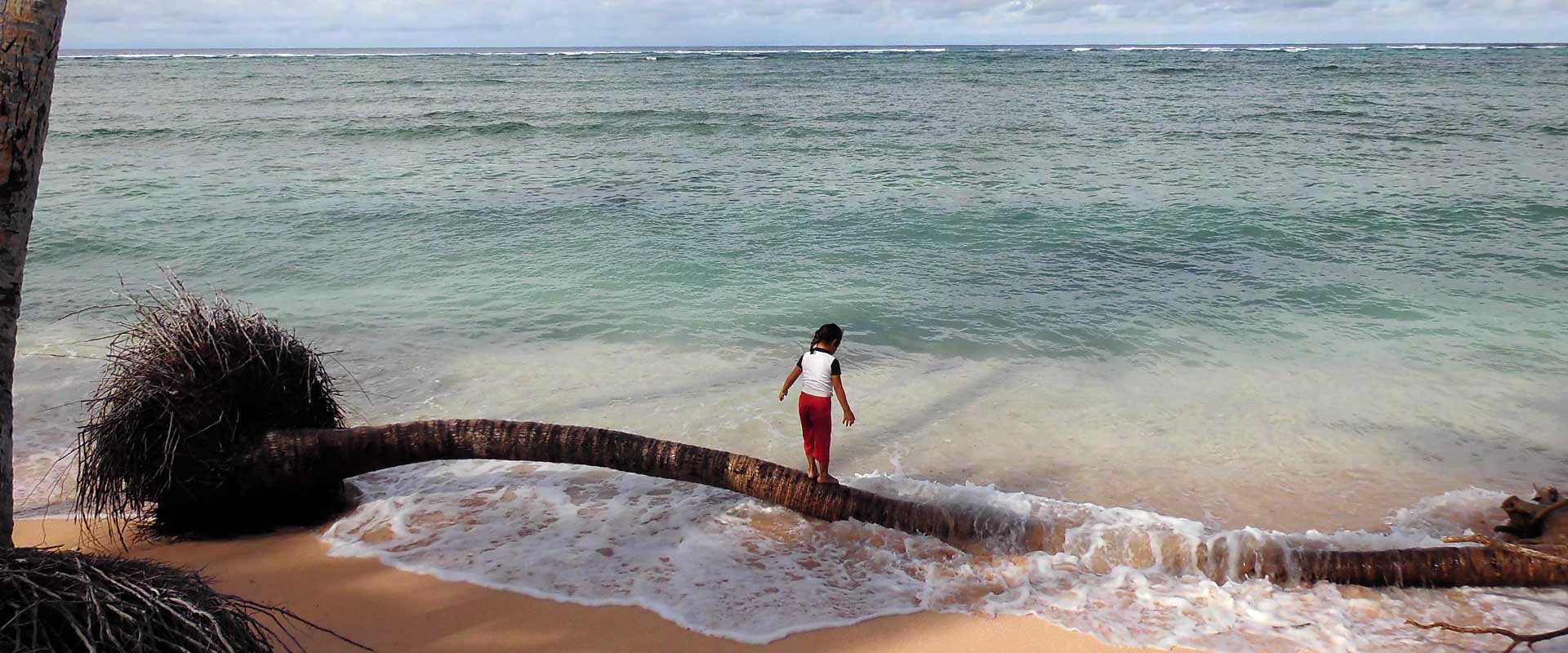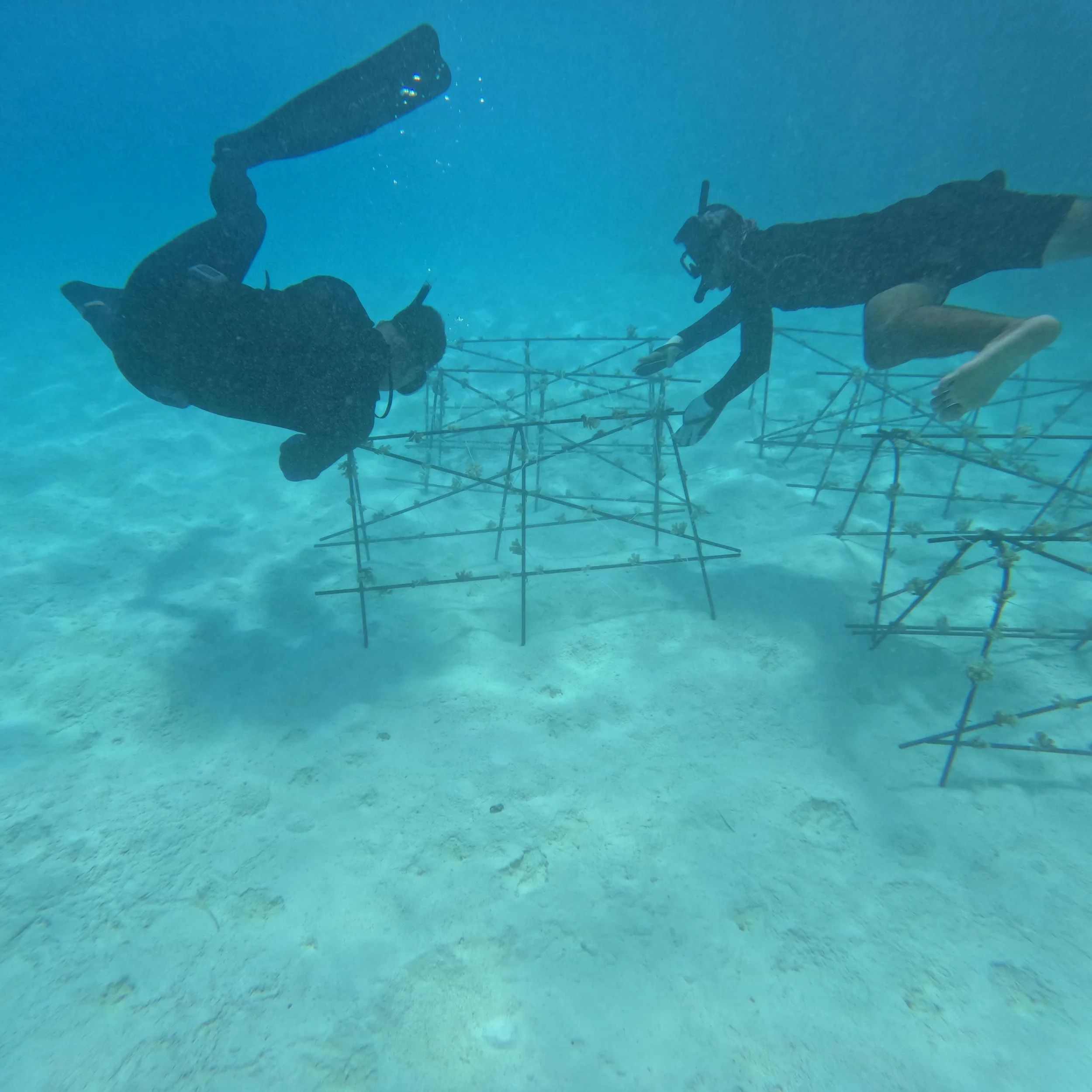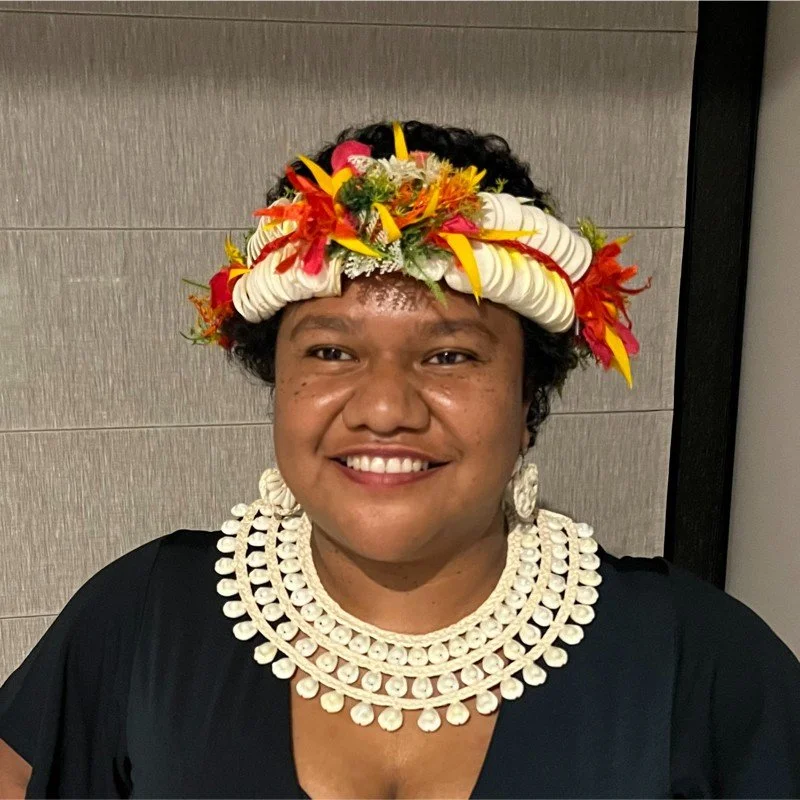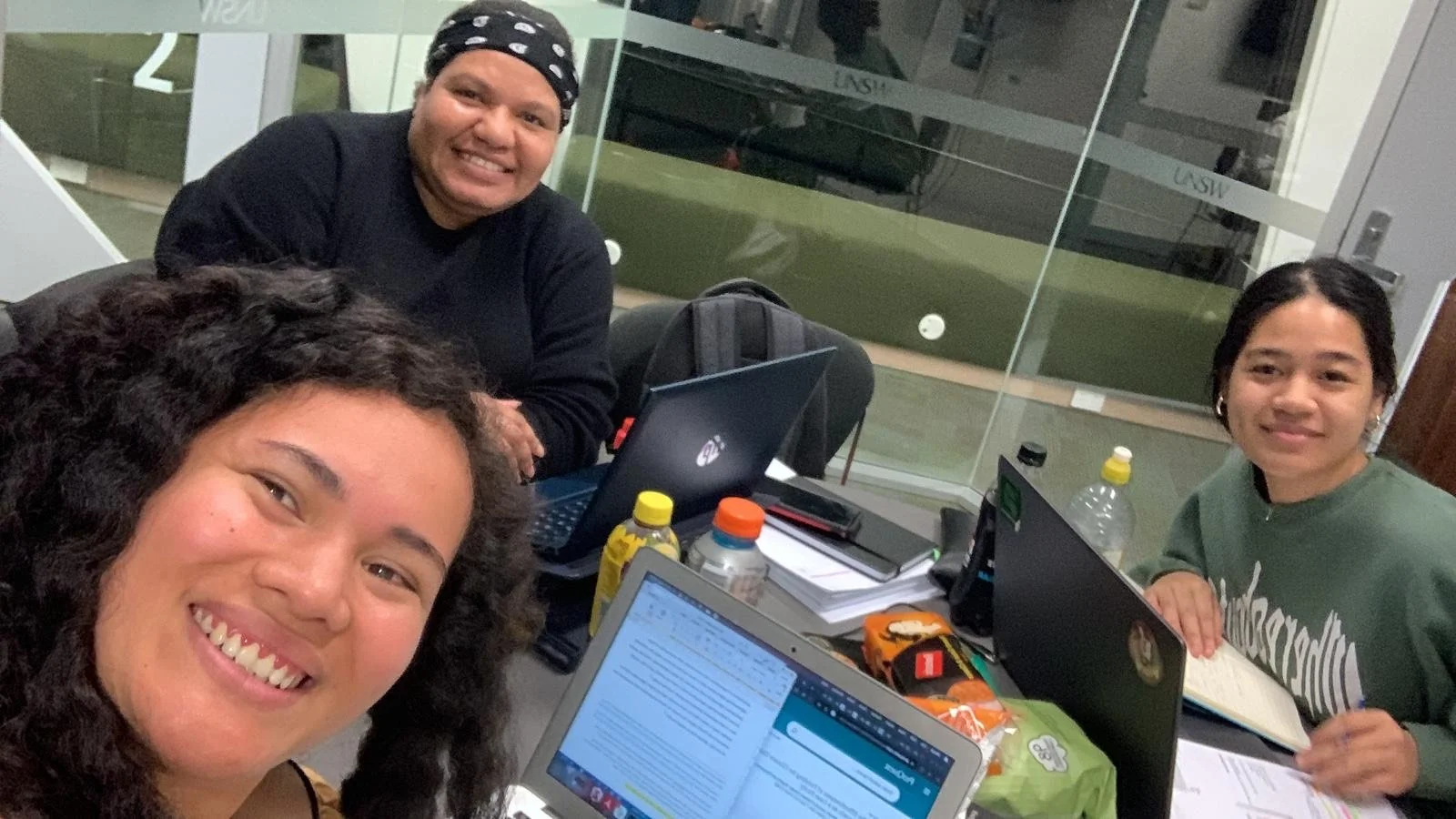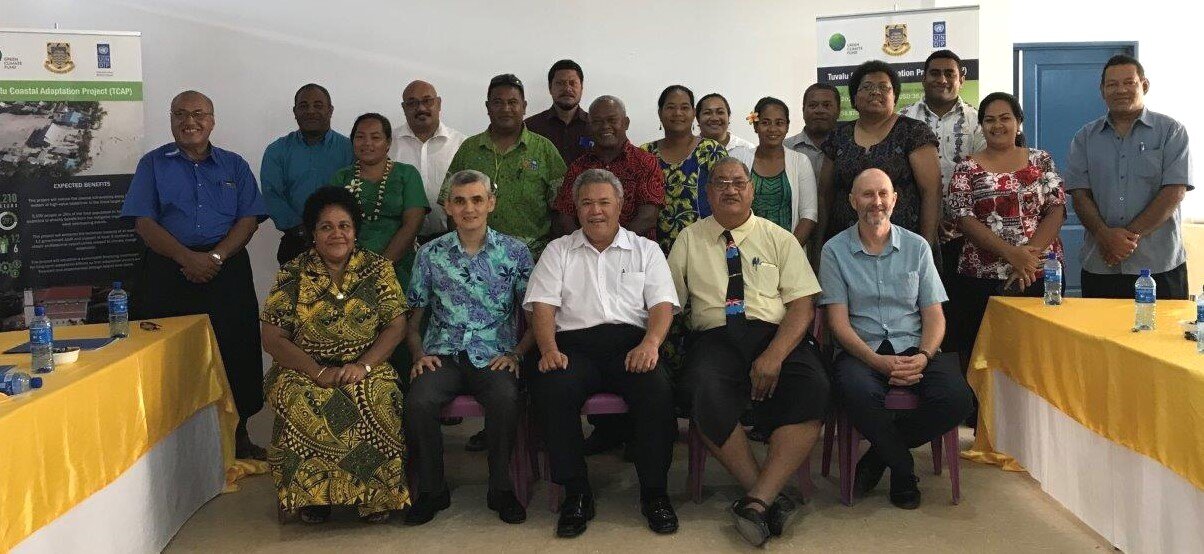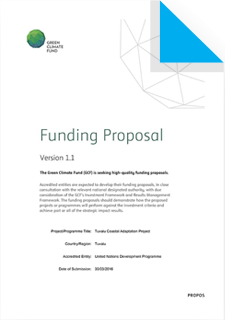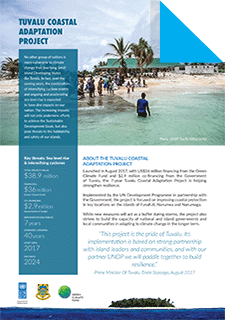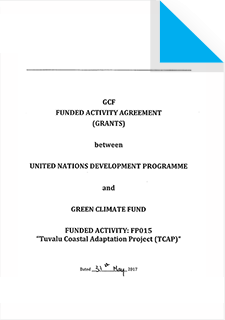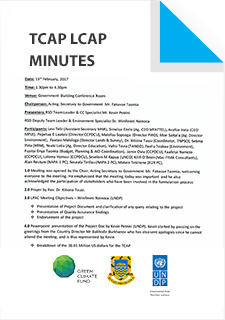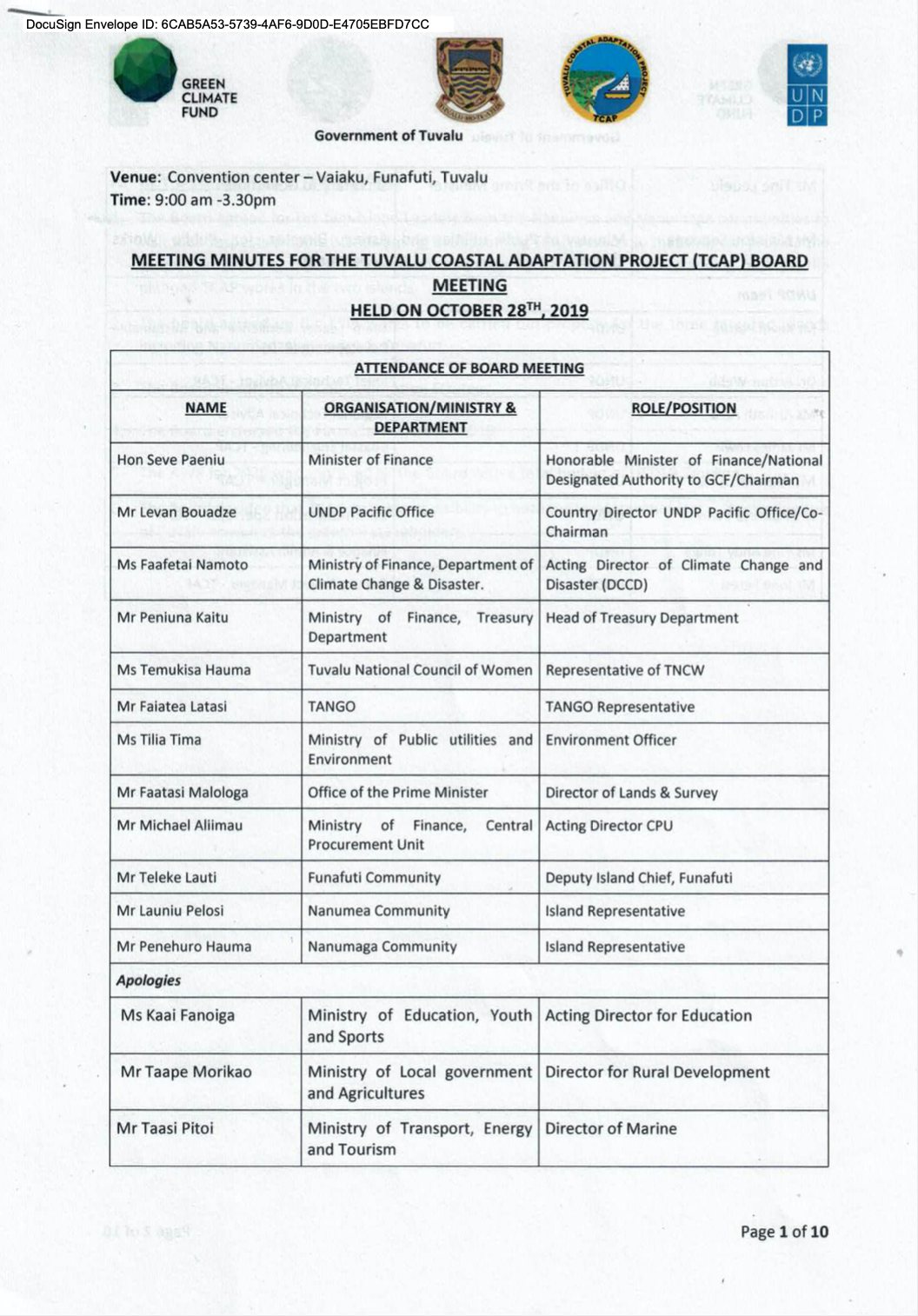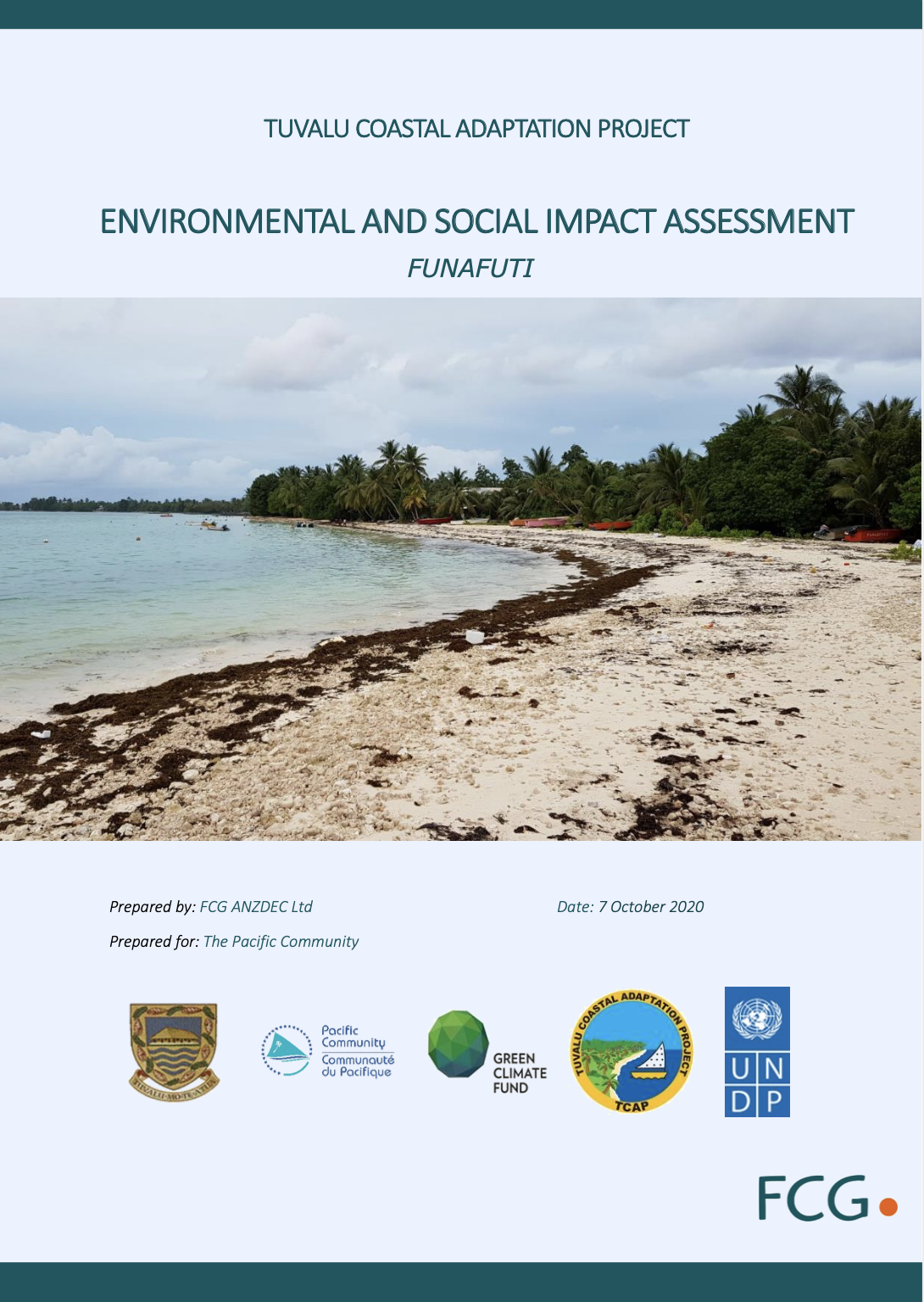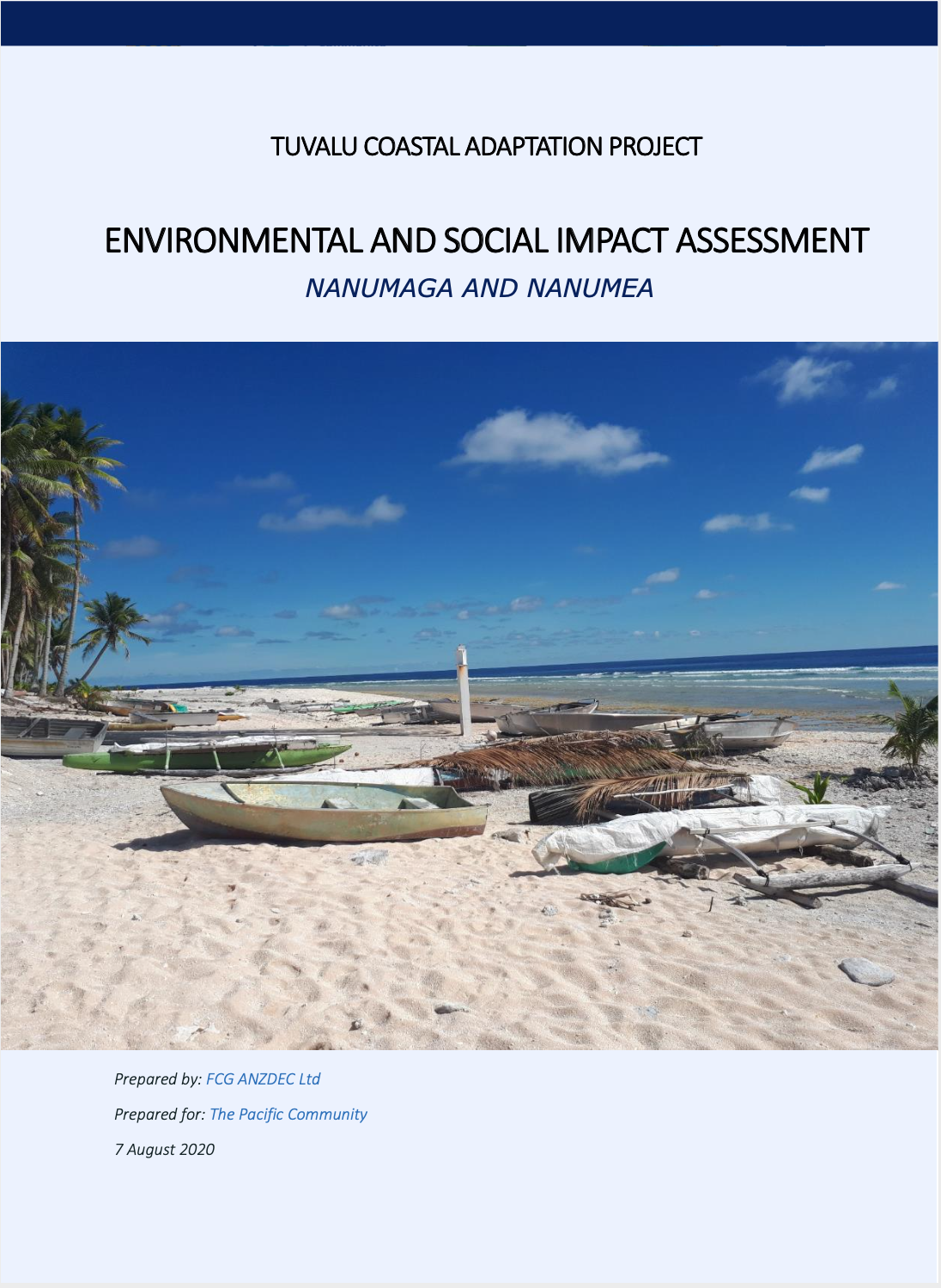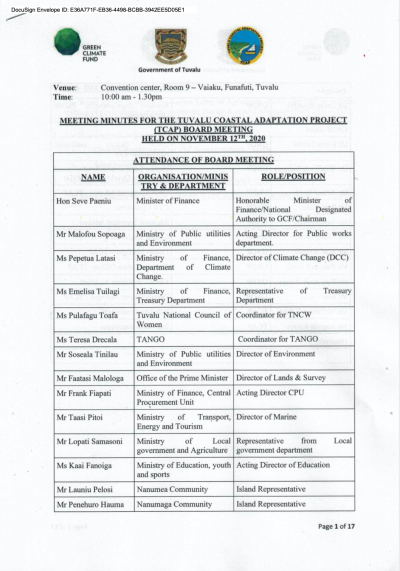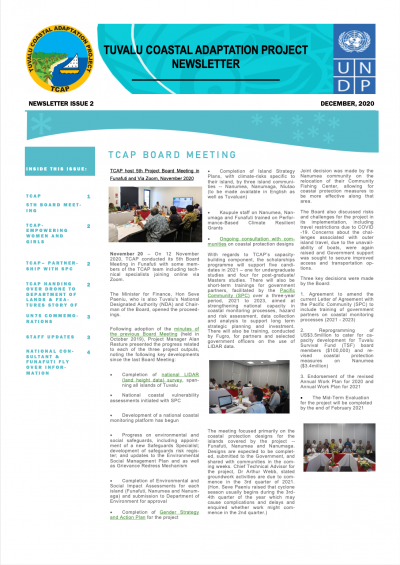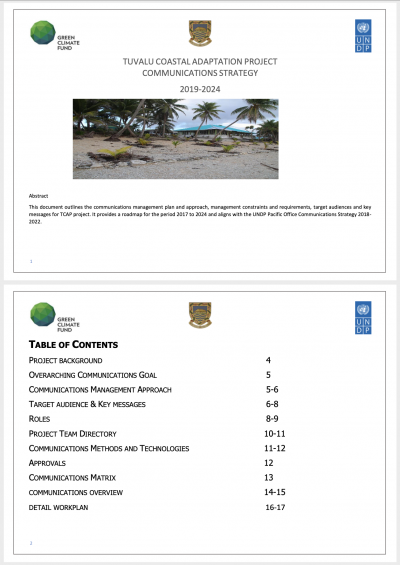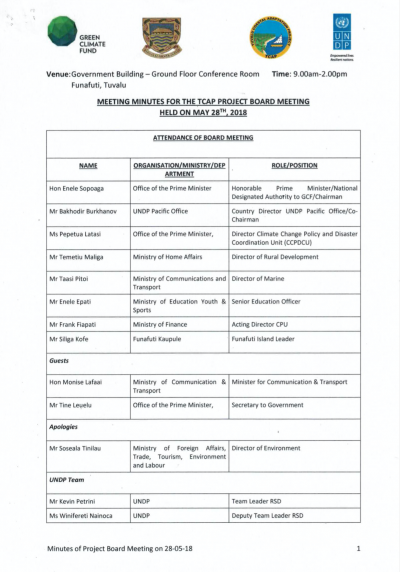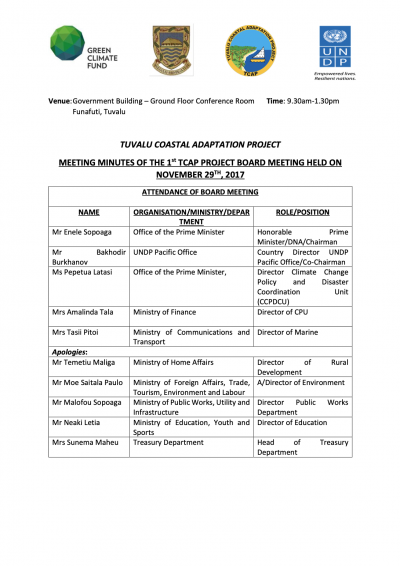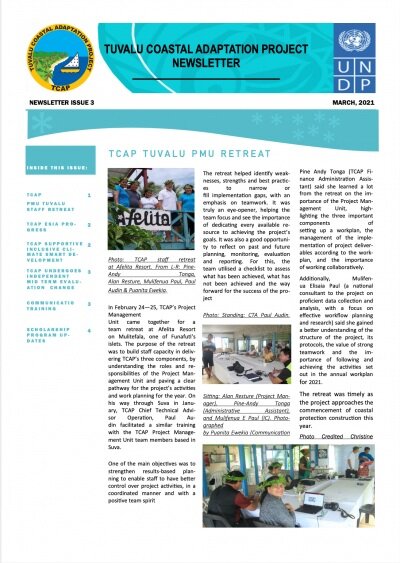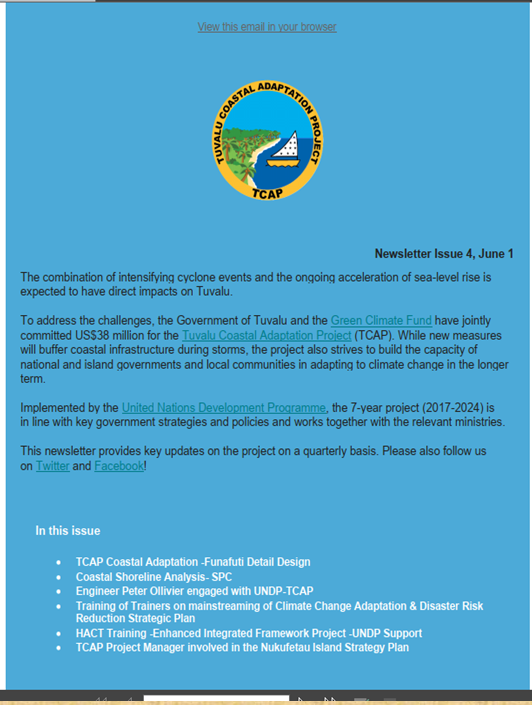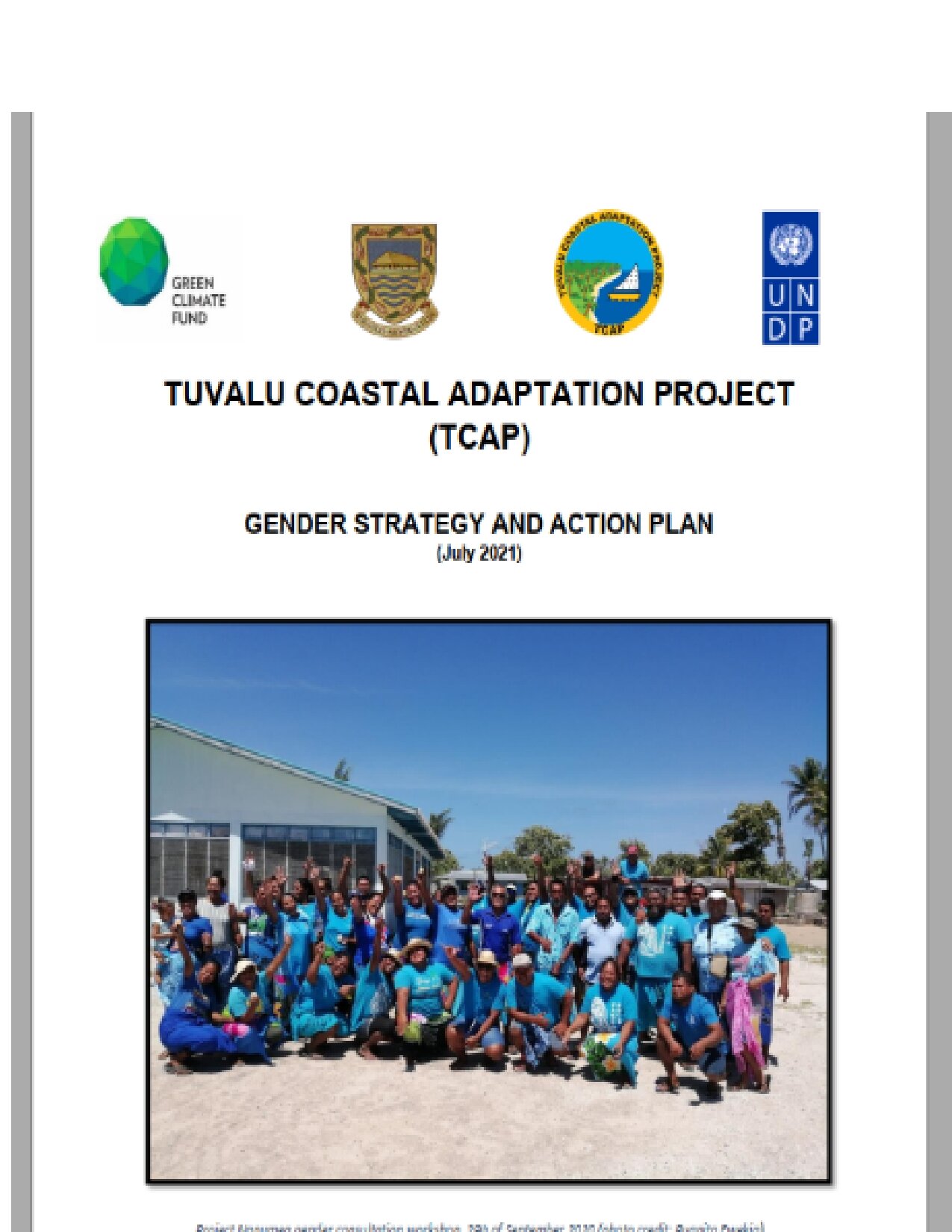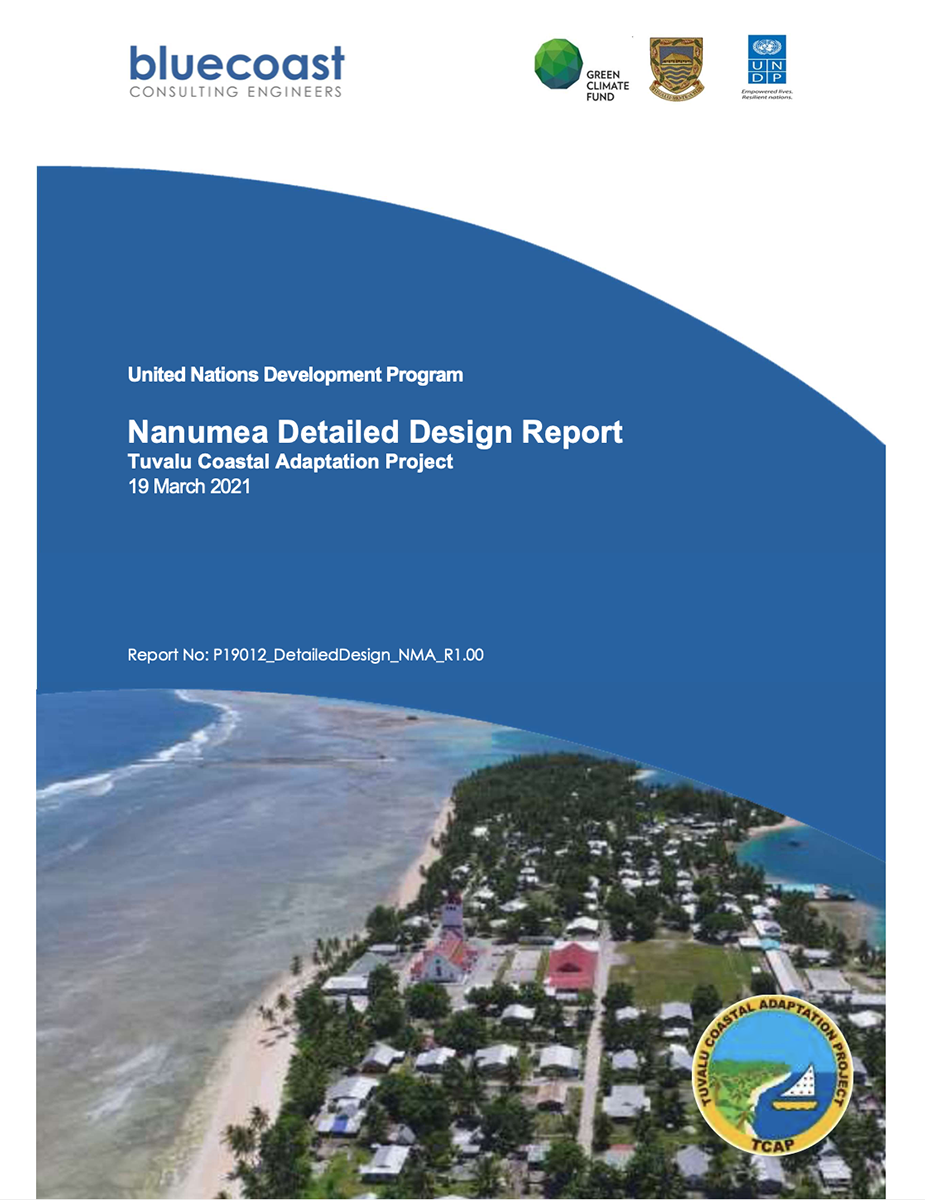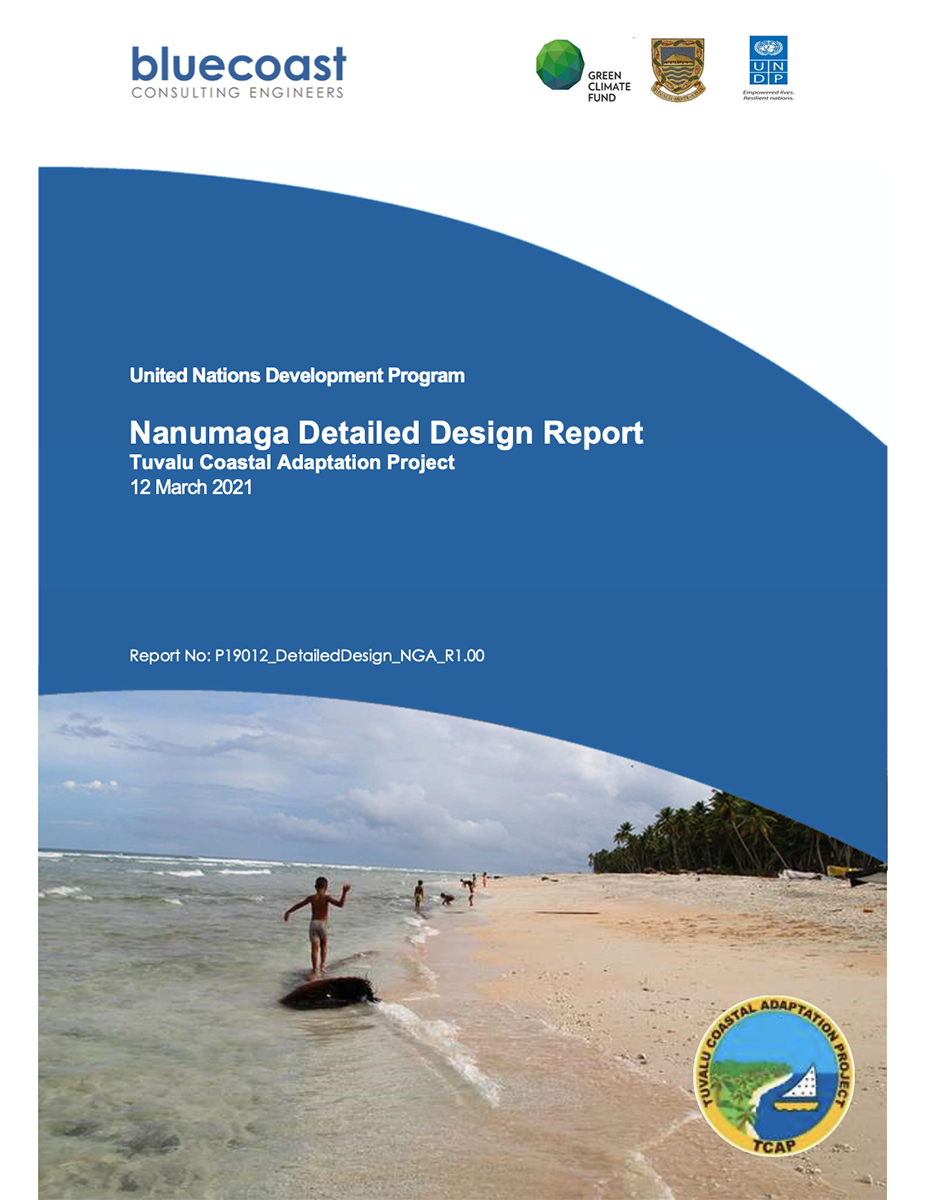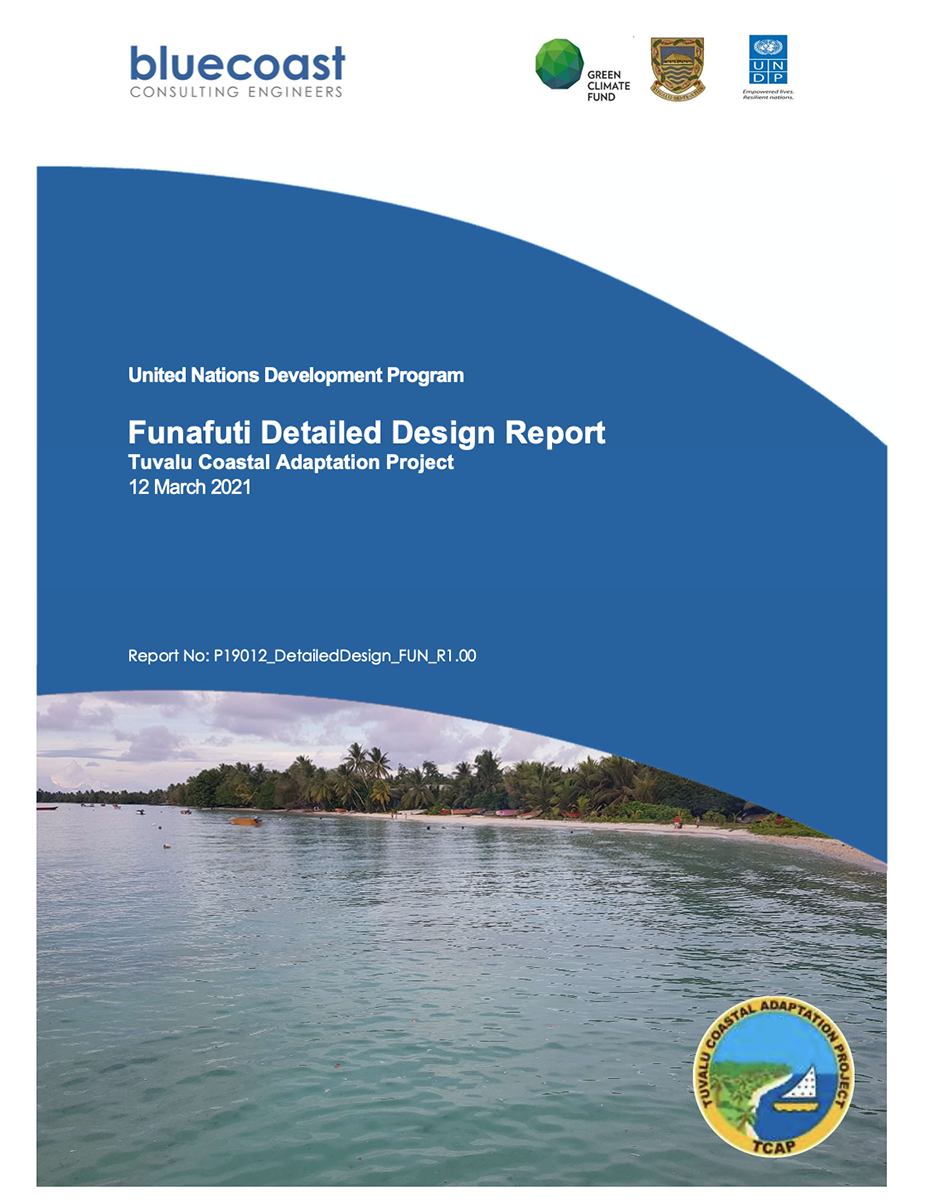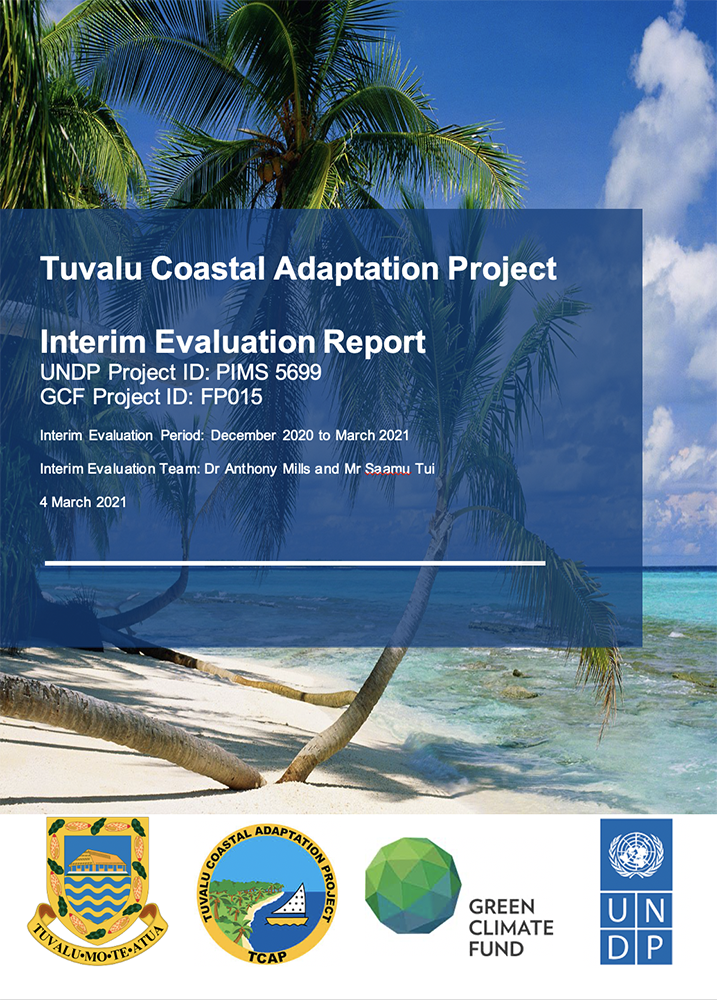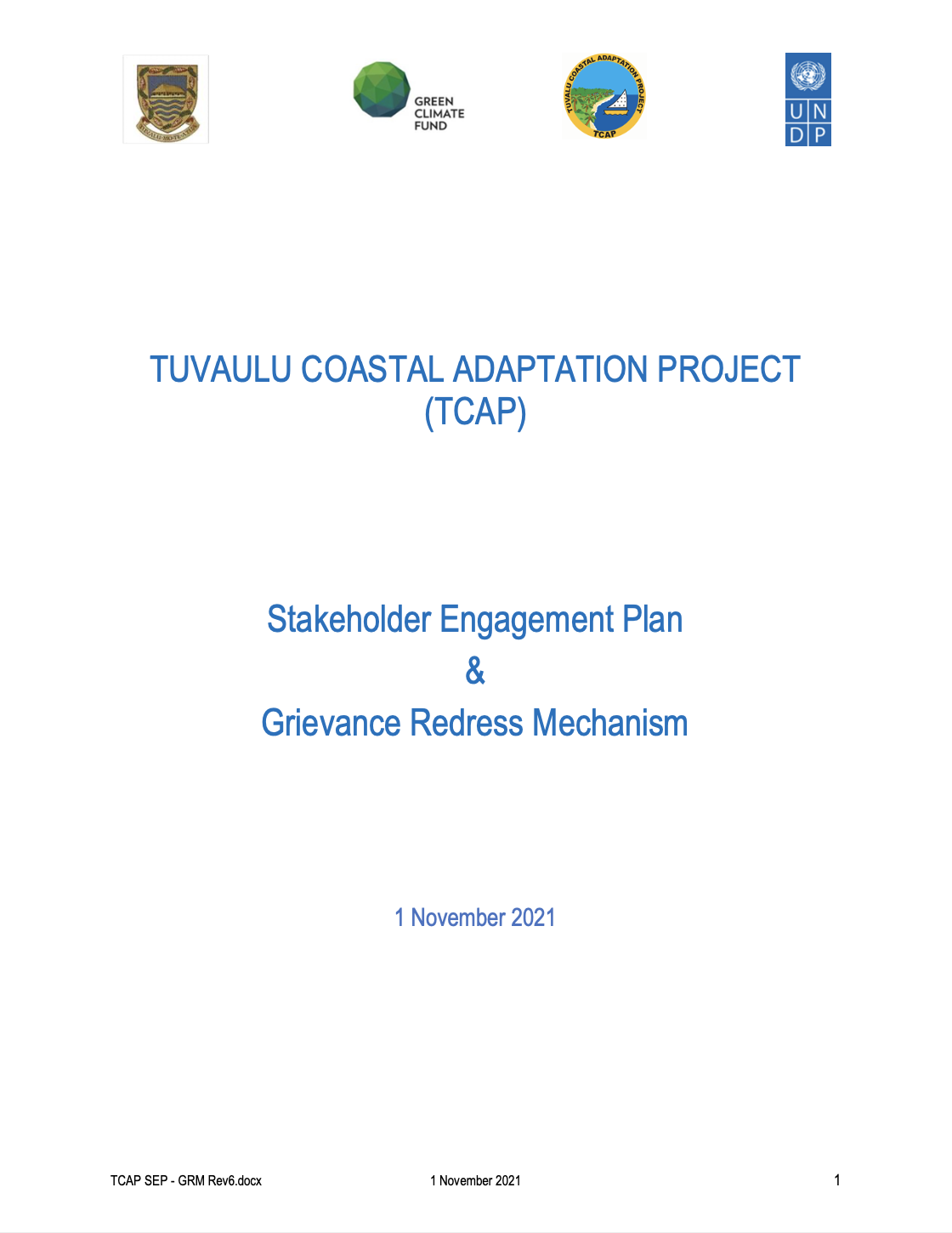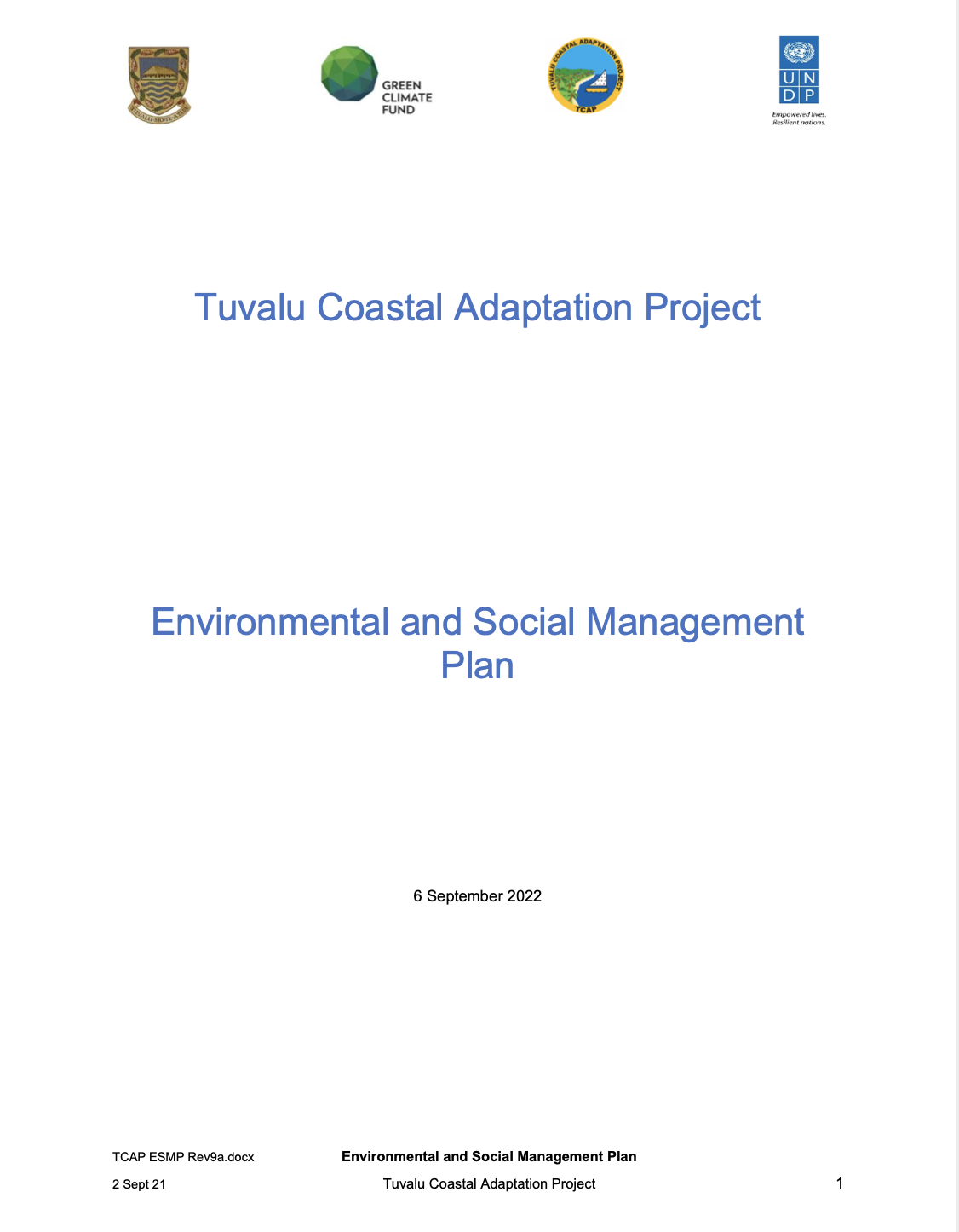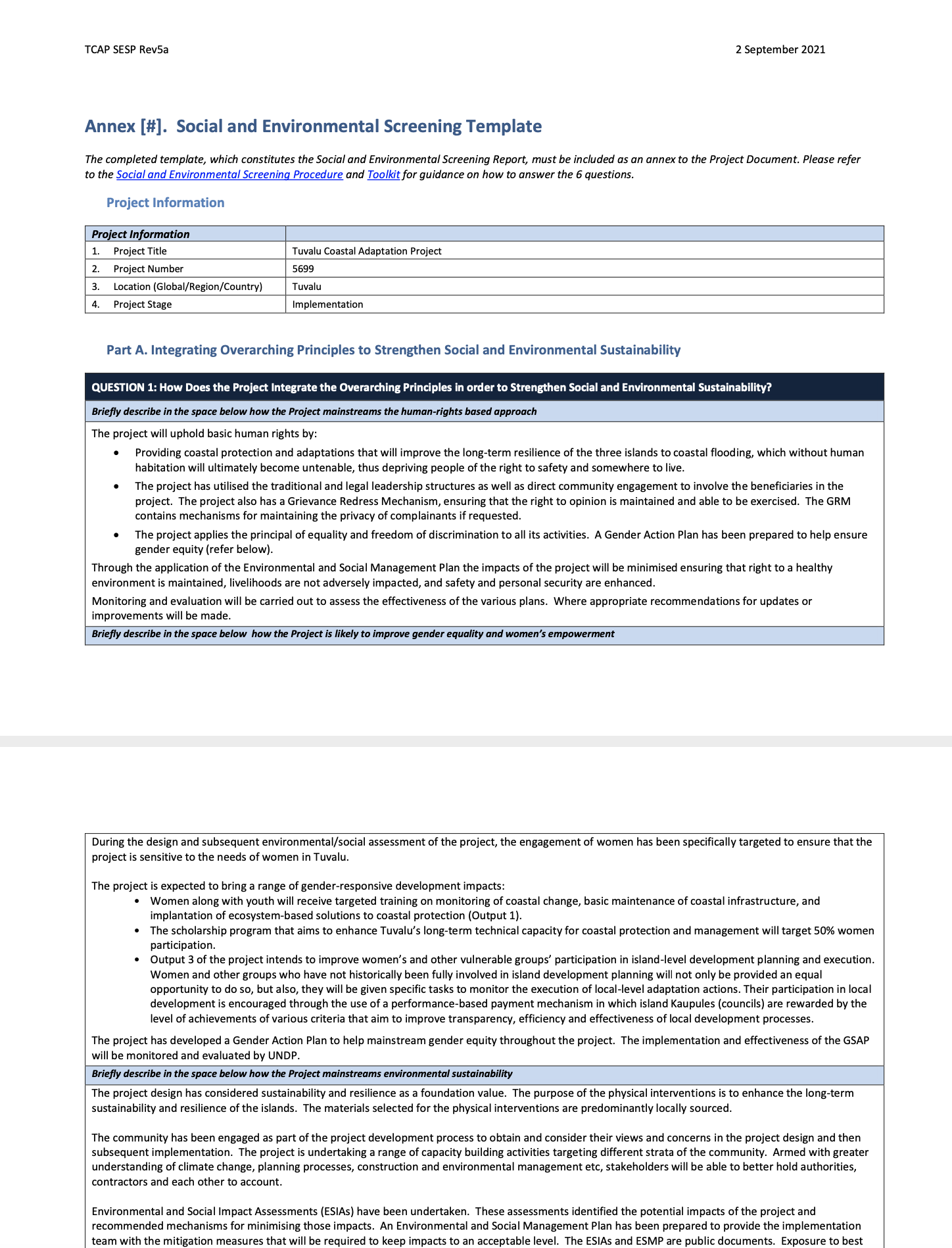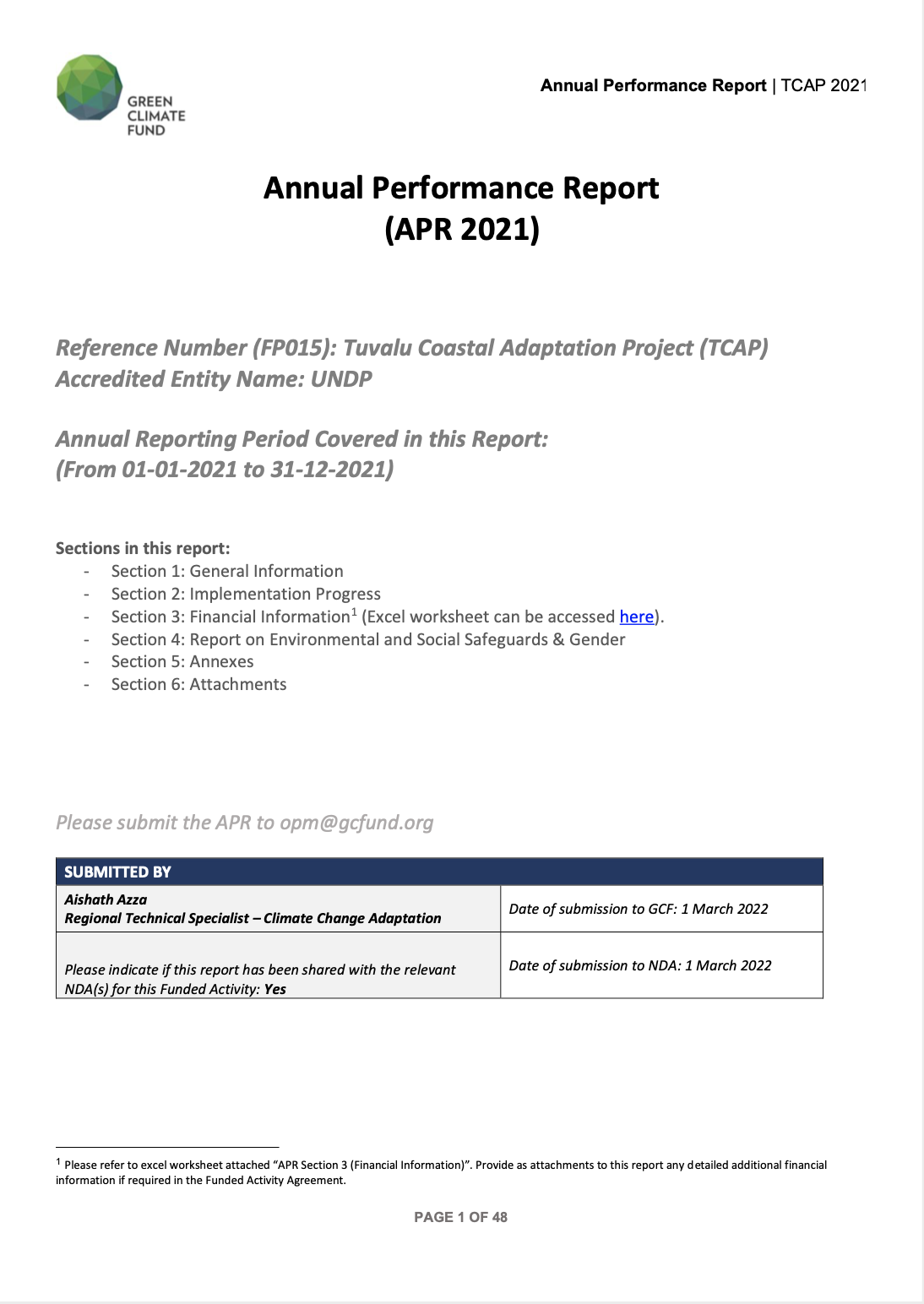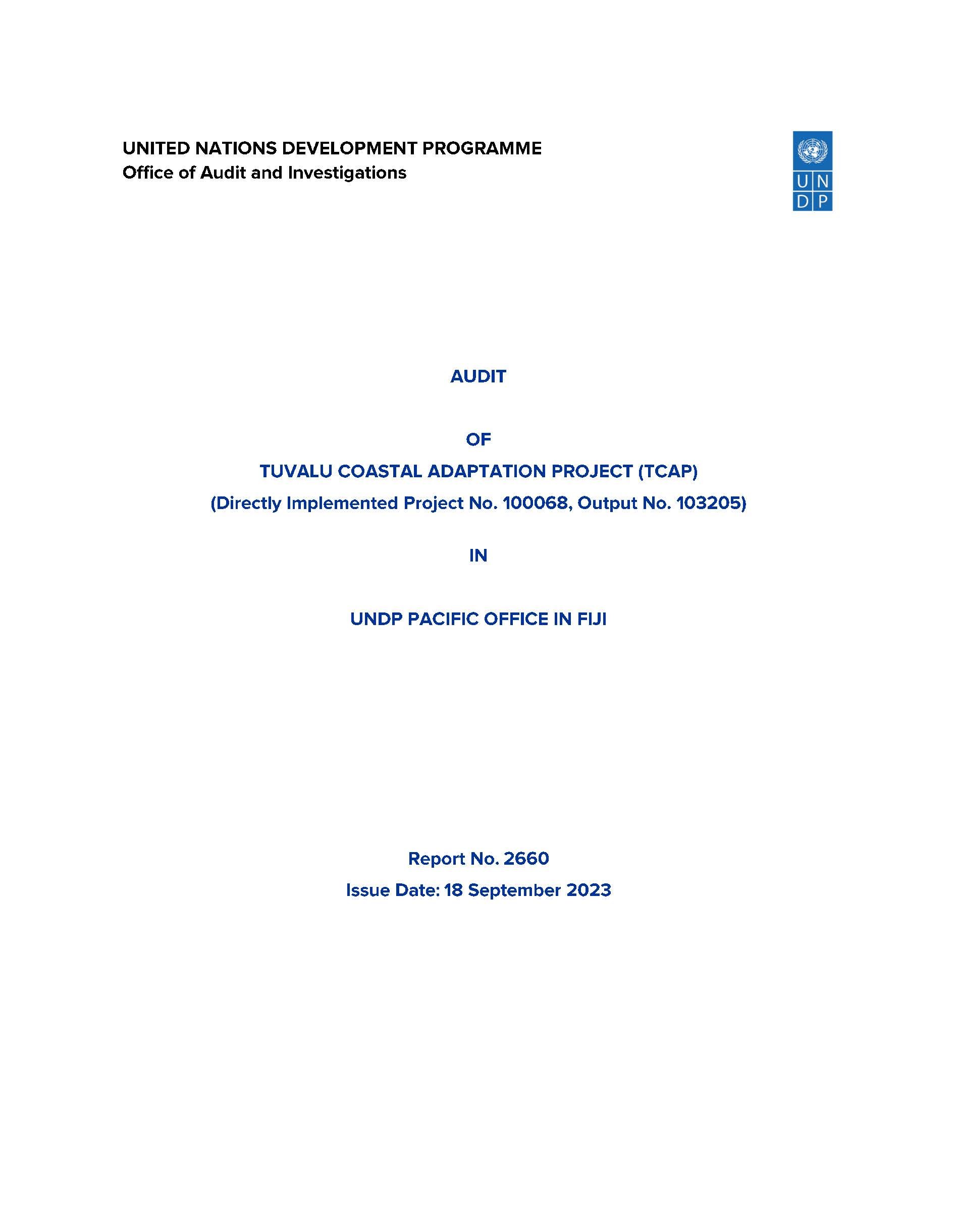Latest news
Since the launch of Tuvalu’s state-of-the-art online hazard and risk dashboard, the platform has attracted significant attention at the local, regional and international levels. Designed to support communities to mitigate risks from the growing impacts of climate change, it has now been made available across Tuvalu, with training rolled out nationwide.
The Tuvalu Coastal Adaptation Project (TCAP), funded by the Green Climate Fund and Australian Department of Foreign Affairs and Trade, has reached a major milestone with UNDP Pacific Office in Fiji officially handing over 7.3 hectares of reclaimed land to the Government of Tuvalu.
The Governments of Australia and New Zealand are funding a second phase of the successful Tuvalu Coastal Adaptation Project (TCAP-II) to scale up climate resilient coastal protection efforts to combat climate change. Construction works will commence this month (September 2024).
Nanumea, the fourth largest and most remote island of Tuvalu, is located 650 kilometers north of the nation’s capital. The outer island’s white shores are home to a population of 485 people and around 180 houses, only accessible to the public by ship. On average, one ship a month makes the 24-hour voyage to the island, carrying vital supplies to stock around 12 small stores with basic home and food necessities.
Lamese Saamu's lifelong passion for science and community empowerment led him to the Tuvalu Coastal Adaptation Project (TCAP), where he found a perfect match for his interests. TCAP's strong community-centric approach resonated with him deeply, as it actively involves local communities in planning and implementing climate adaptation measures. “The project actively involves local communities in the planning and implementation processes, ensuring that the adaptation measures are culturally appropriate and locally supported,” Saanu explained. As part of the project’s commitment to equipping Tuvaluans with the technical expertise and advancing adaptation into the future, a key initiative has been to fund a series of scholarships.
Beneath the still blue Pacific Ocean, a threat is silently unraveling. Once-vibrant coral reefs teeming with fish life, are suffering the impacts of bleaching and sea temperature increases. Tuvalu’s three reef islands and six atolls are made of reef platforms, and they are increasingly threatened by the impacts of climate change including sea-level rise. “I am from the beautiful island of Nui,” explains Talua Nivaga, youth activist and co-founder of the only environmental youth-led organization – Fuligafou, focusing on coral restoration initiatives. The NGO unites young people of all backgrounds through initiatives including coral restoration, women empowerment, and tree planting. Working together with the Tuvalu Coastal Adaptation Project (TCAP), Nivaga and his colleagues will inform locally led coral restoration efforts as part of the project’s community engagement activities.
This International Women’s Day, themed: “Invest in women: accelerate progress,” Lilian Falealuga Tine, an outspoken advocate for the rights of women in Tuvalu, spoke about the role of the Tuvalu Coastal Adaptation Project (TCAP) in empowering women in the long-term. While the core element of the infrastructure-building project is to reclaim and raise land from the sea, protecting the community from sea level-rise – a critical component of the project has been about supporting women to speak up at the governing board and community levels.
Engaging in community-based adaptation projects, Teresa Lifuka-Drecala collaborates with other residents and organizations to implement sustainable practices aimed at fortifying coastal defenses, preserving natural habitats, and promoting renewable energy initiatives. This is her story.
Motivated by a deep interest in the need for local law reforms to better reflect traditional environmental knowledge, 32-year-old Lisepa Paeniu has a passion for climate justice. “I think the best way to improve women’s participation in politics, whether local or national, is through empowering other women,” she said. In September 2022, Lisepa pursued a master's degree in environmental law at Sydney’s University of New South Wales. Today, she is choosing from among three doctoral scholarships between Australia and New Zealand. This is her story.
At the forefront of the action, Tap Apisai is a Tuvaluan civil engineer, and the project country manager of the coastal reconstruction work at Hall Contracting. The process of construction is not always straightforward. Progress depends a lot on the weather and the tide movements during the construction phase and this is a challenge that has to be well managed.
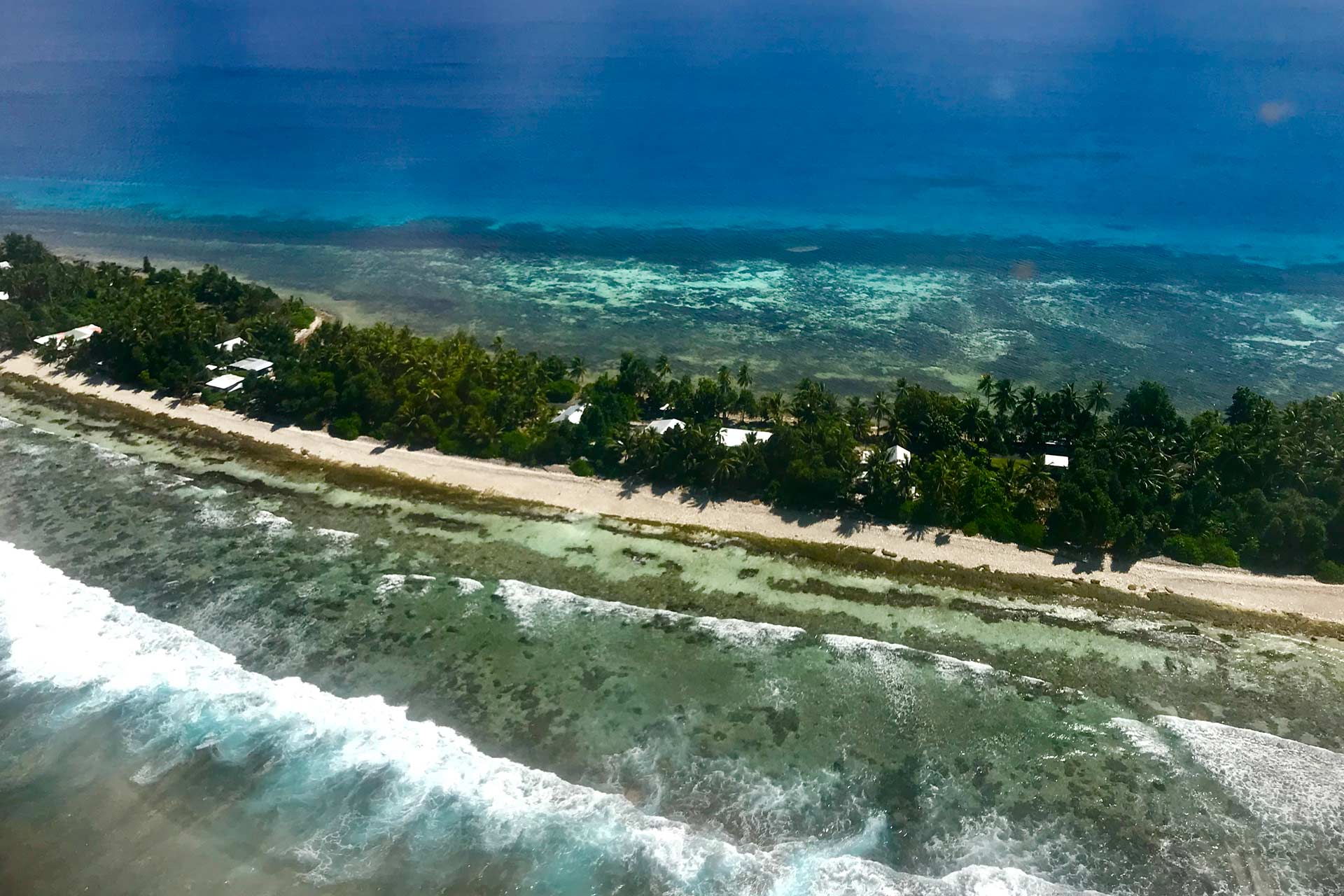
Aerial view of Tuvalu. Photo by Bakhodir Burkhanov/UNDP
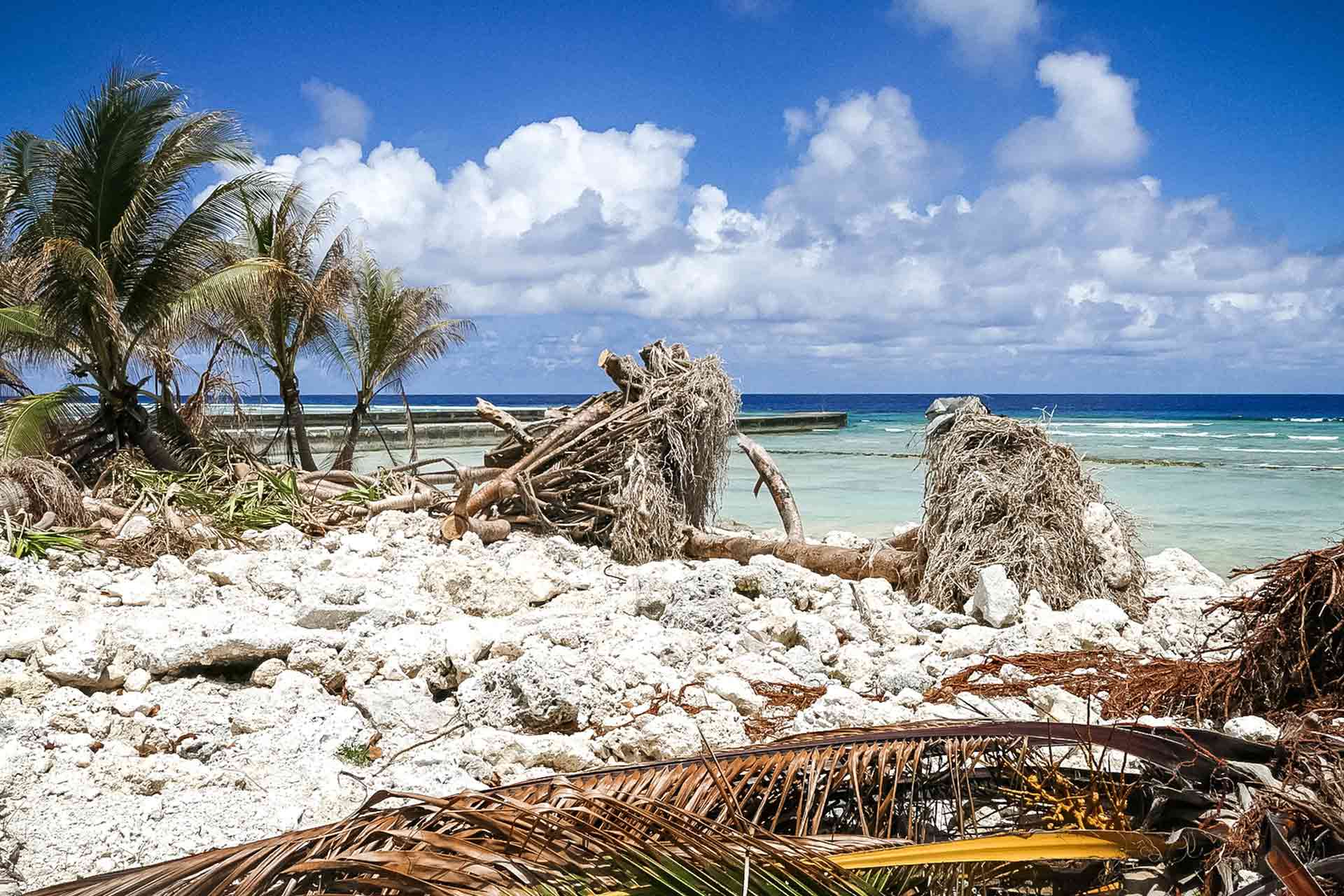
The wave surge caused by Cyclone Pam destroyed large parts of Tuvalu's ocean facing coastline. Photo: Silke von Brockhausen/UNDP
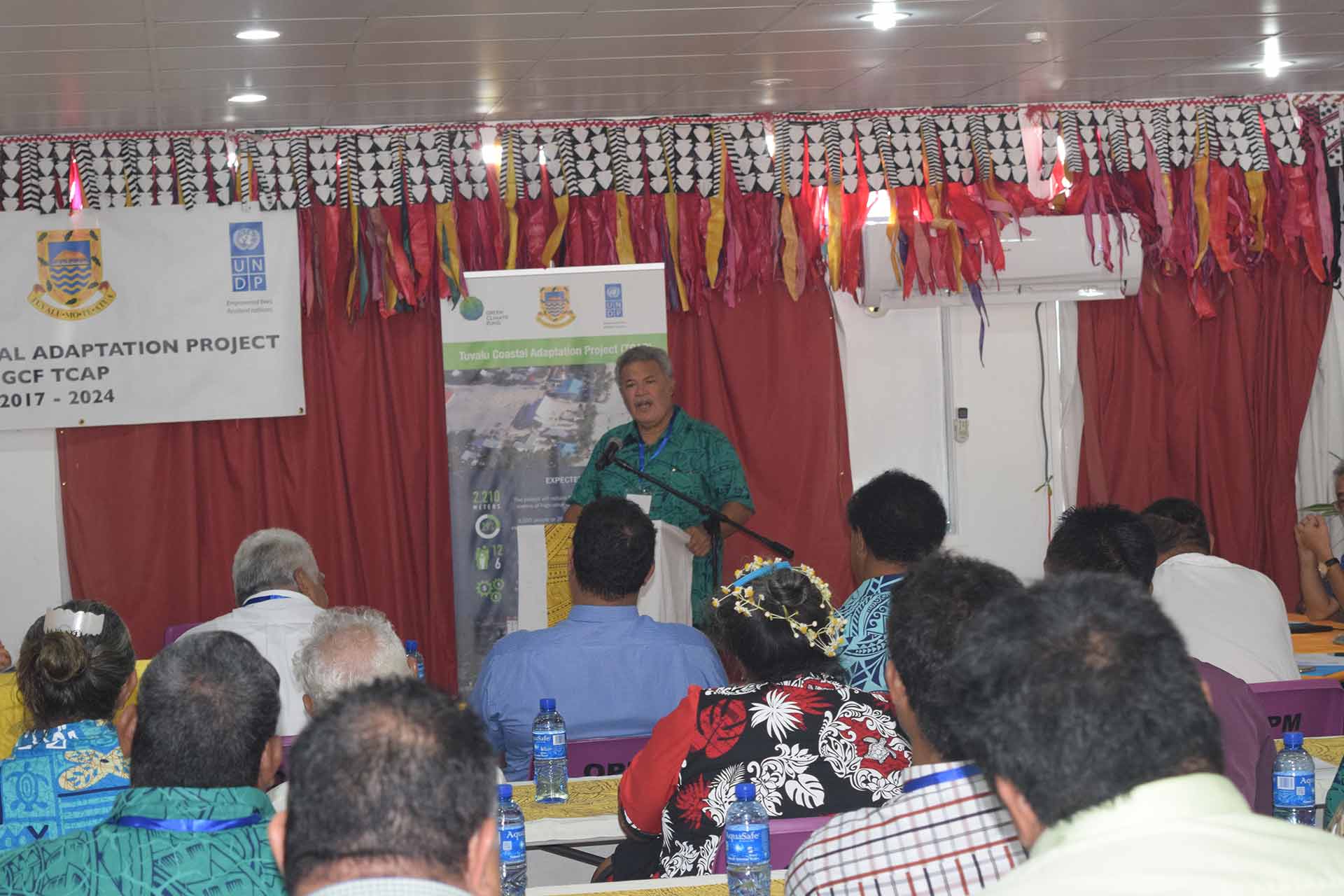
Tuvalu's Prime Minister Enele Sopoaga speaking at the official launch of the TCAP project, 29 August 2017. Photo by UNDP
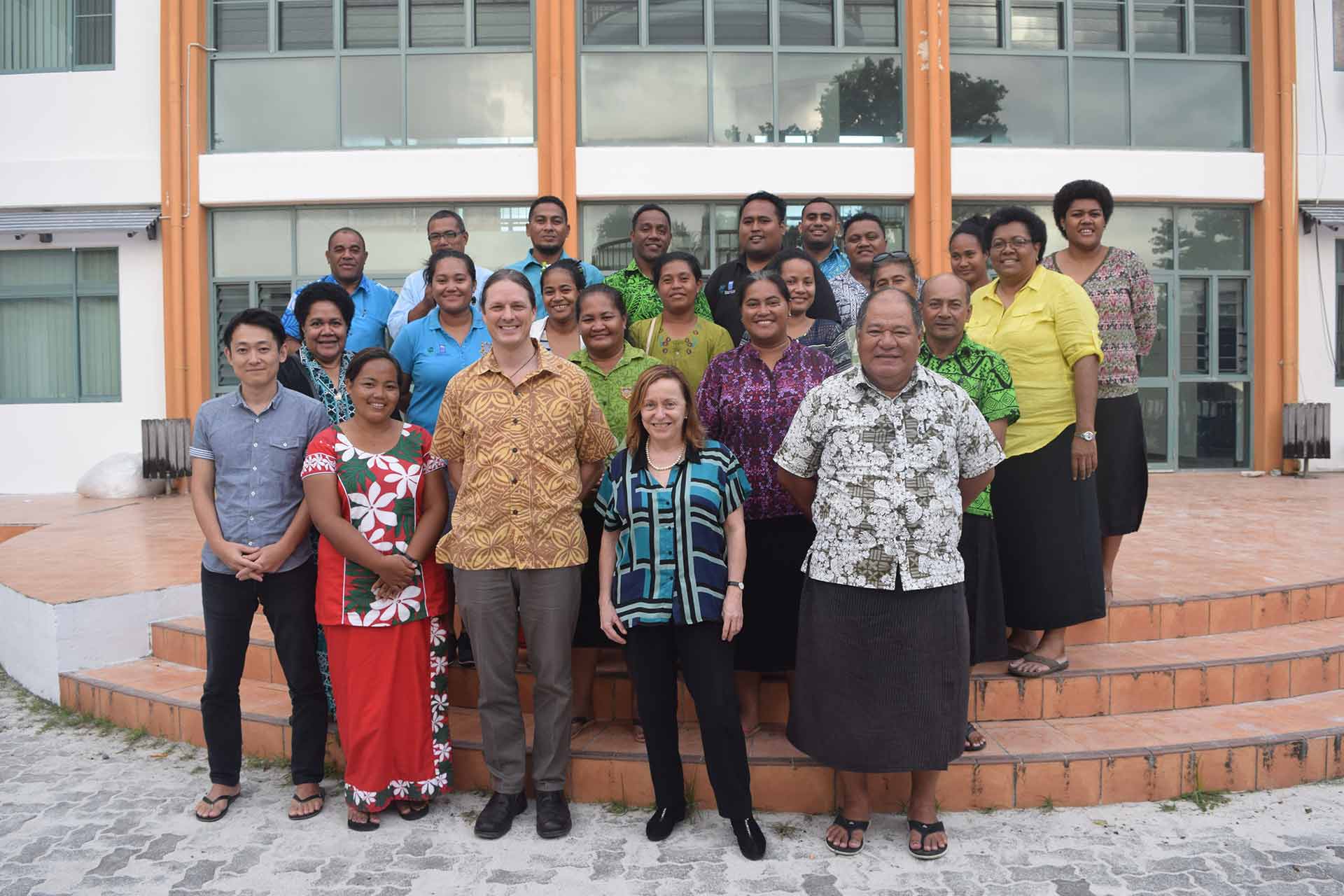
Group photo at the launch of the TCAP project, 29 August 2017. Photo by UNDP
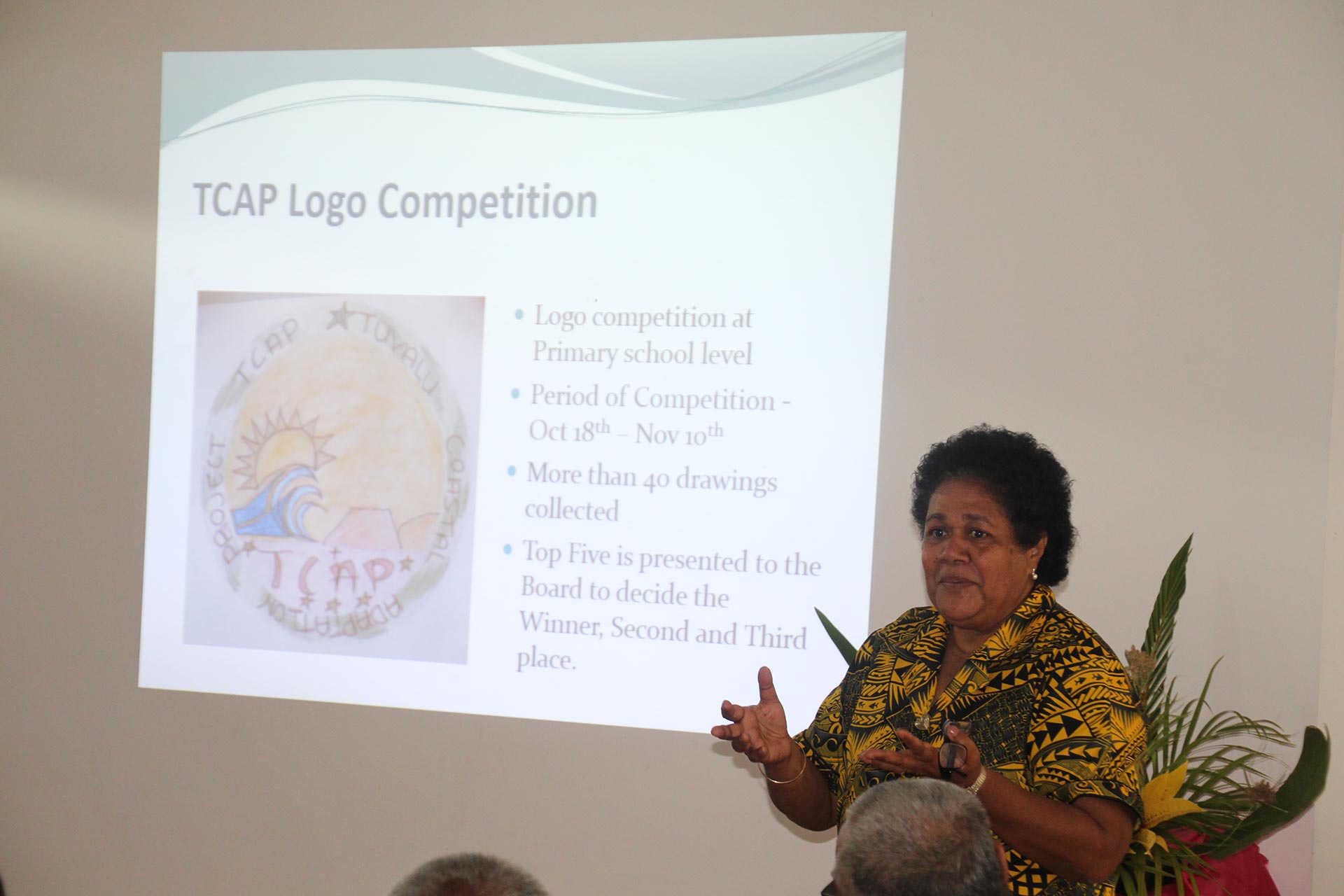
Launch of logo competition. Photo by UNDP
The Tuvalu Coastal Adaptation Project invited primary school students to design a project logo. 12-year old Ms Fogaese Lisale of Funafuti won the contest" -- see https://twitter.com/TCAPforTu8/status/958560191708004353
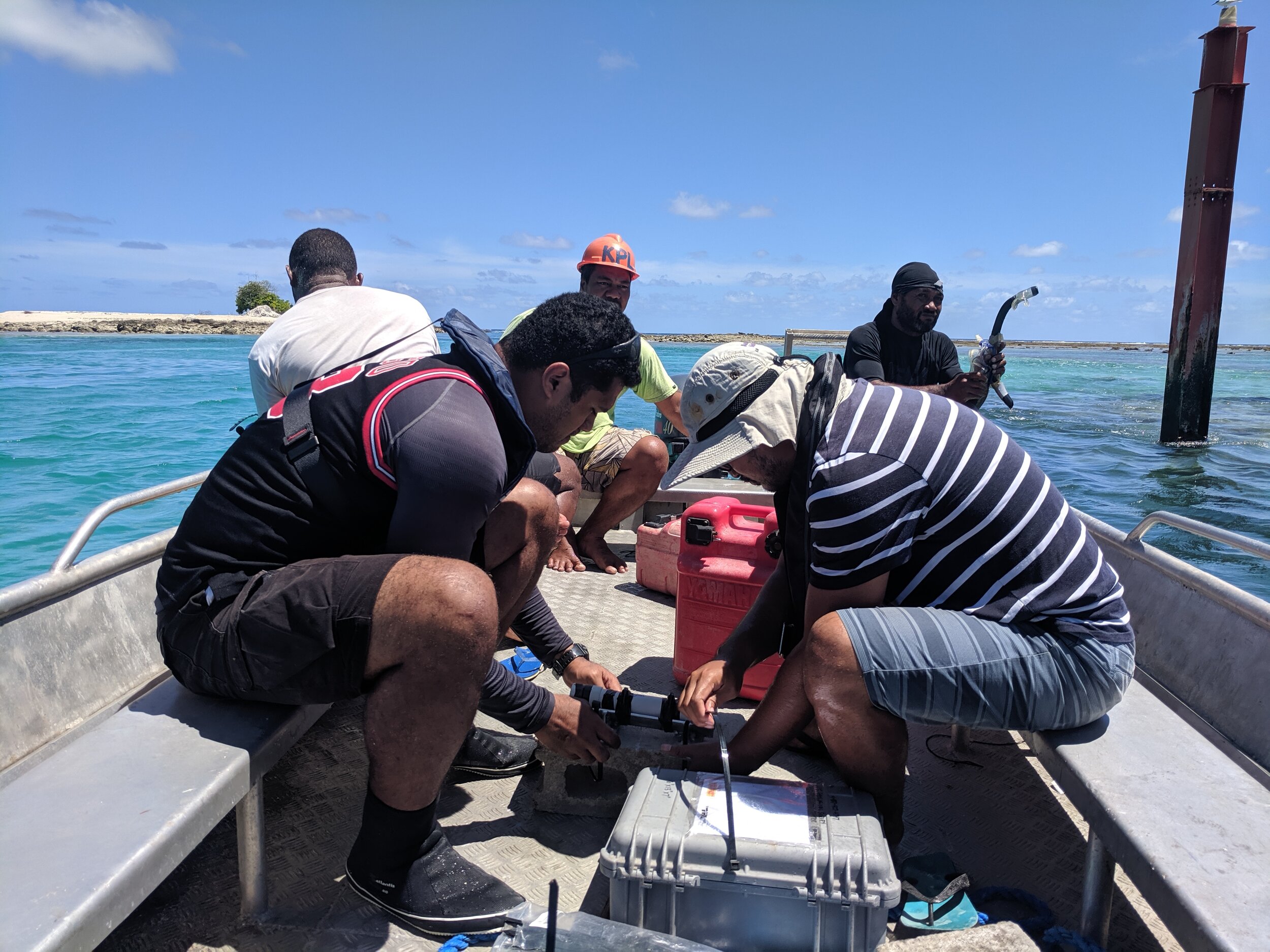
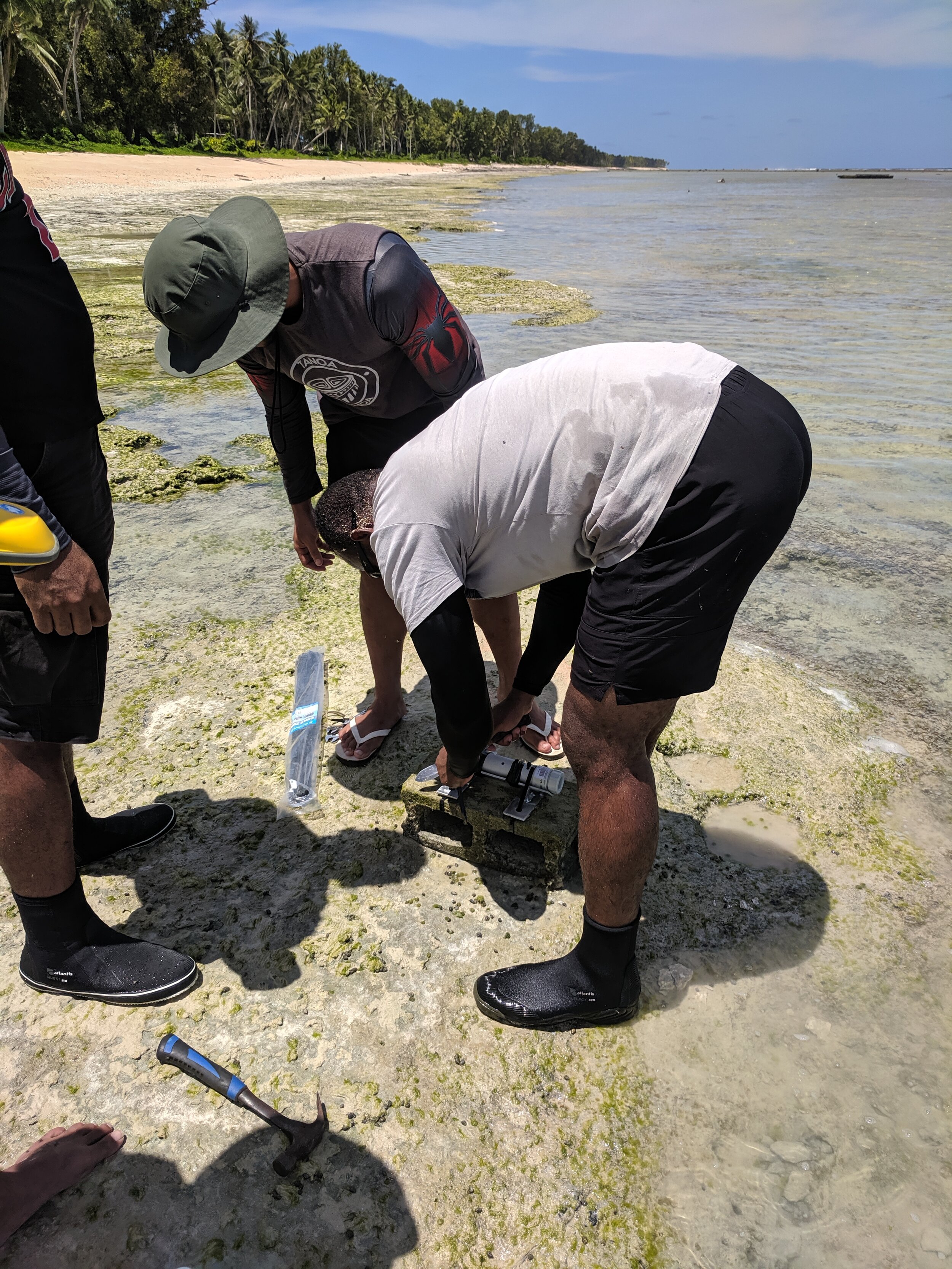
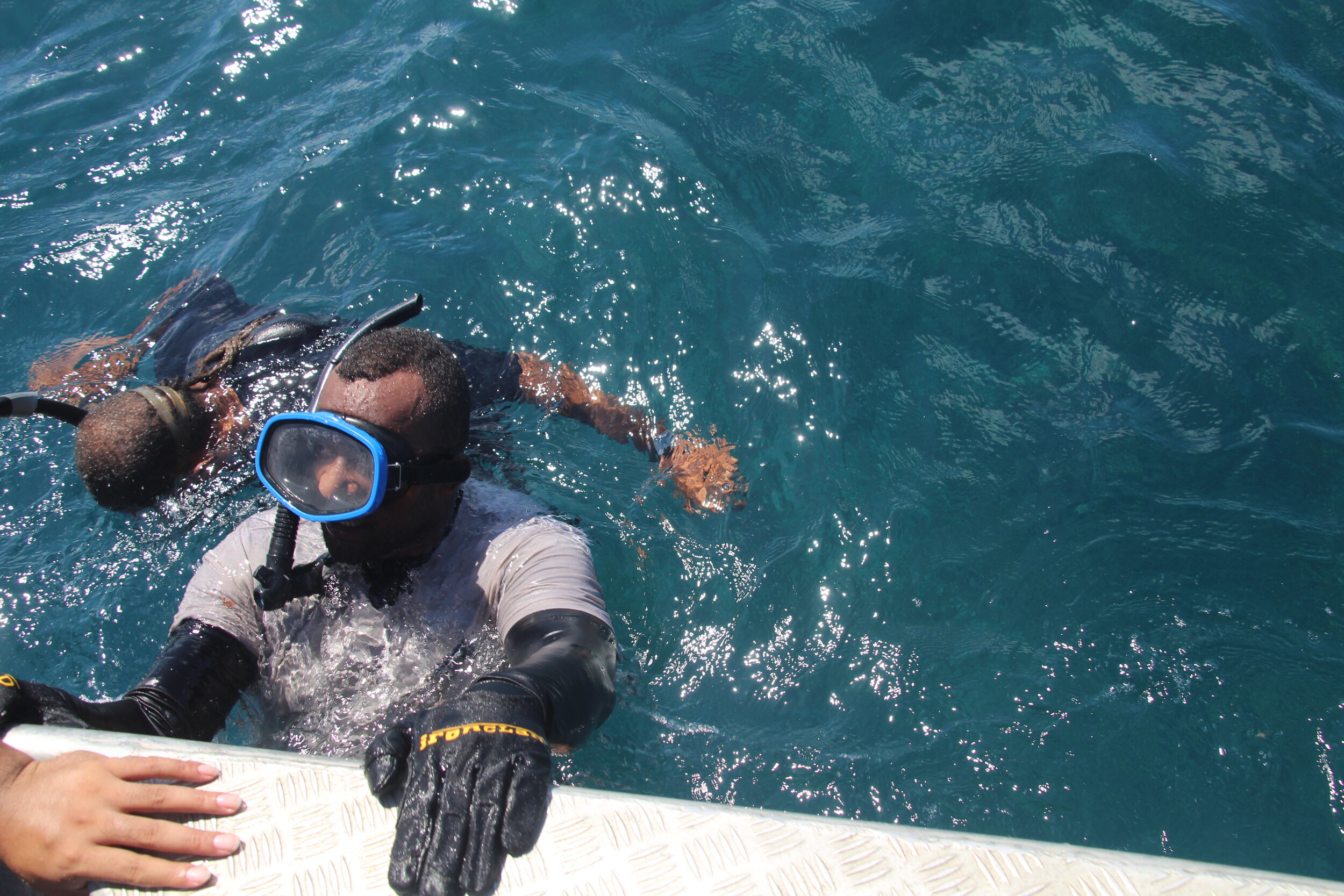
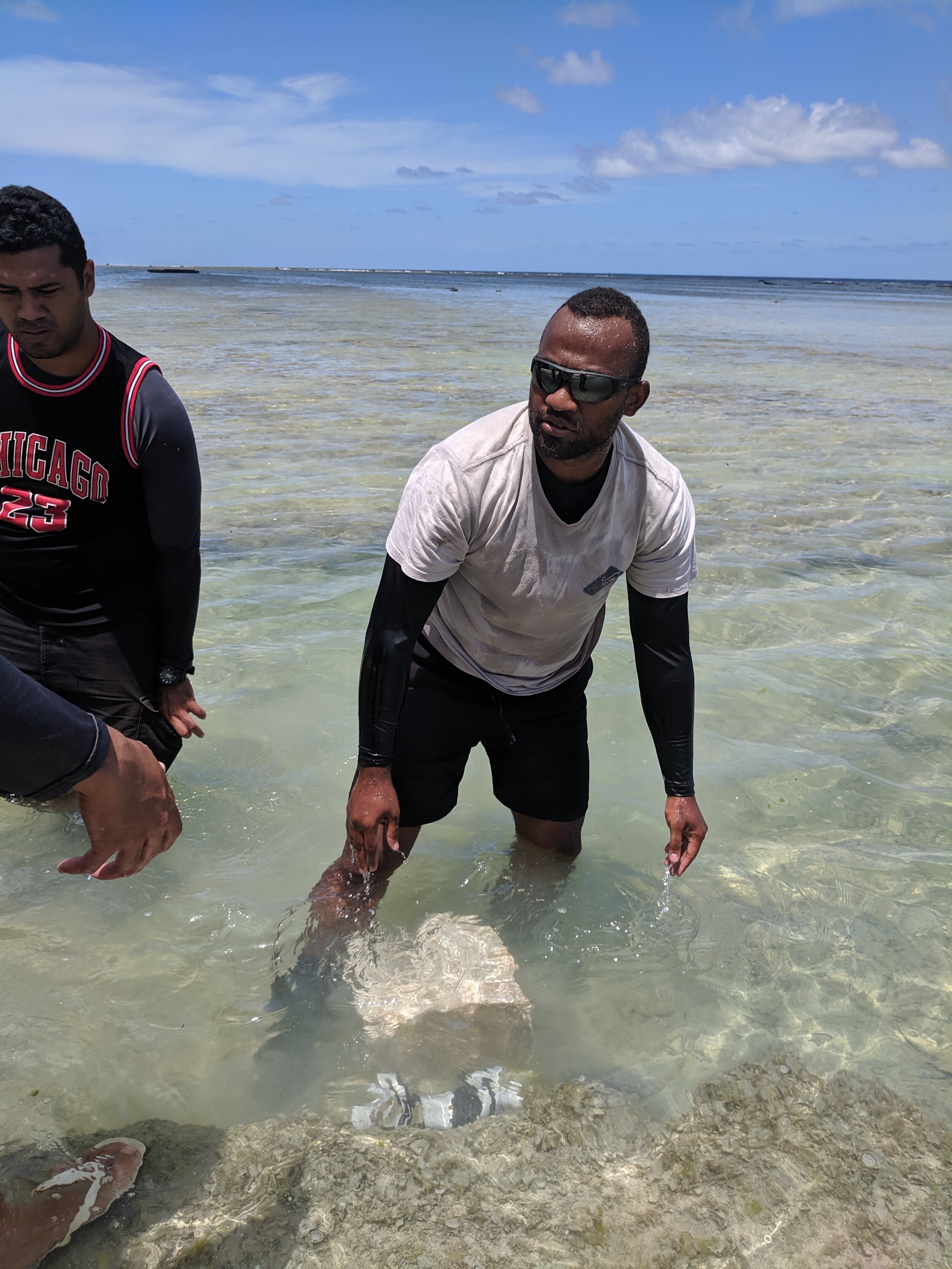
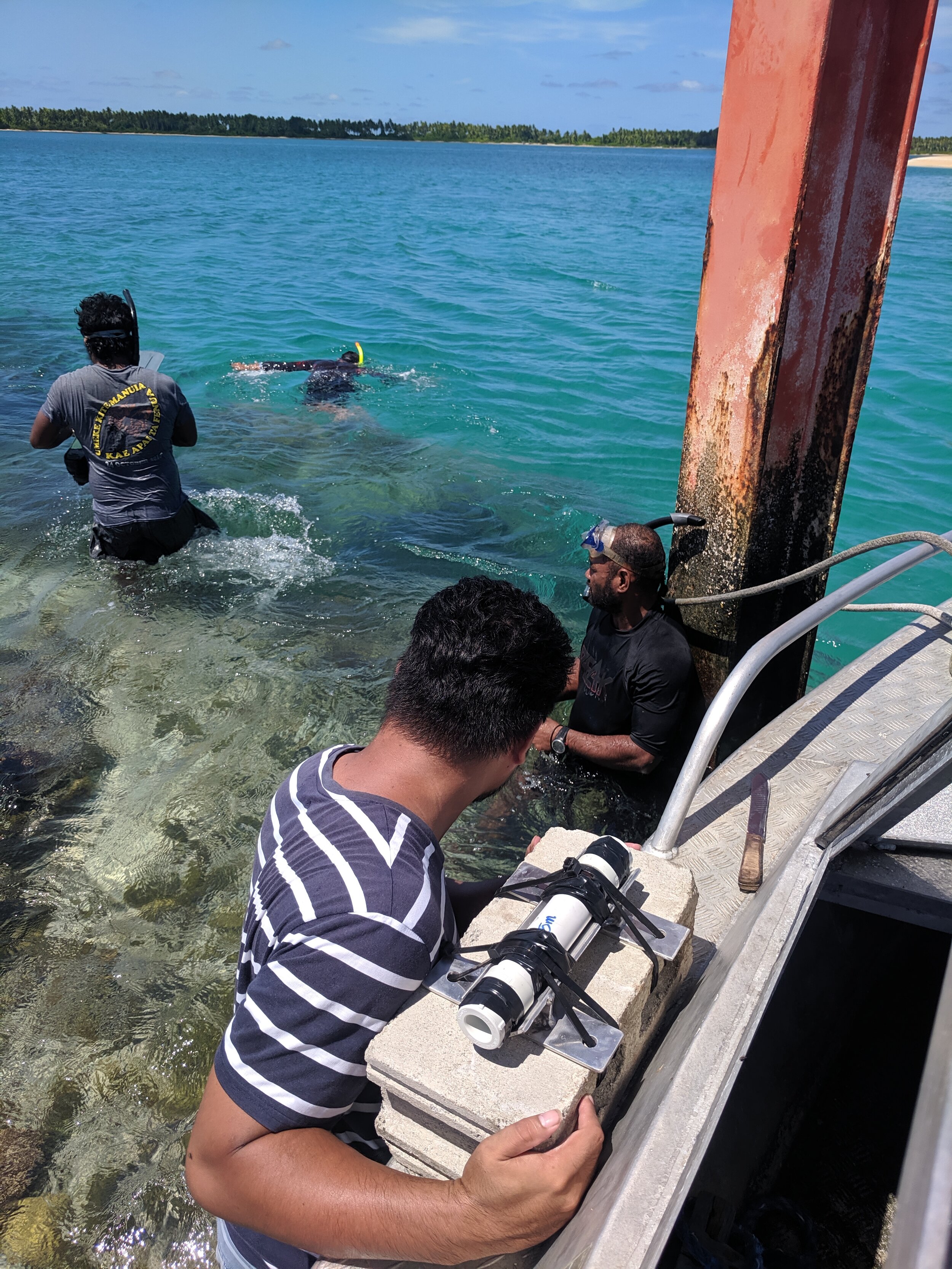
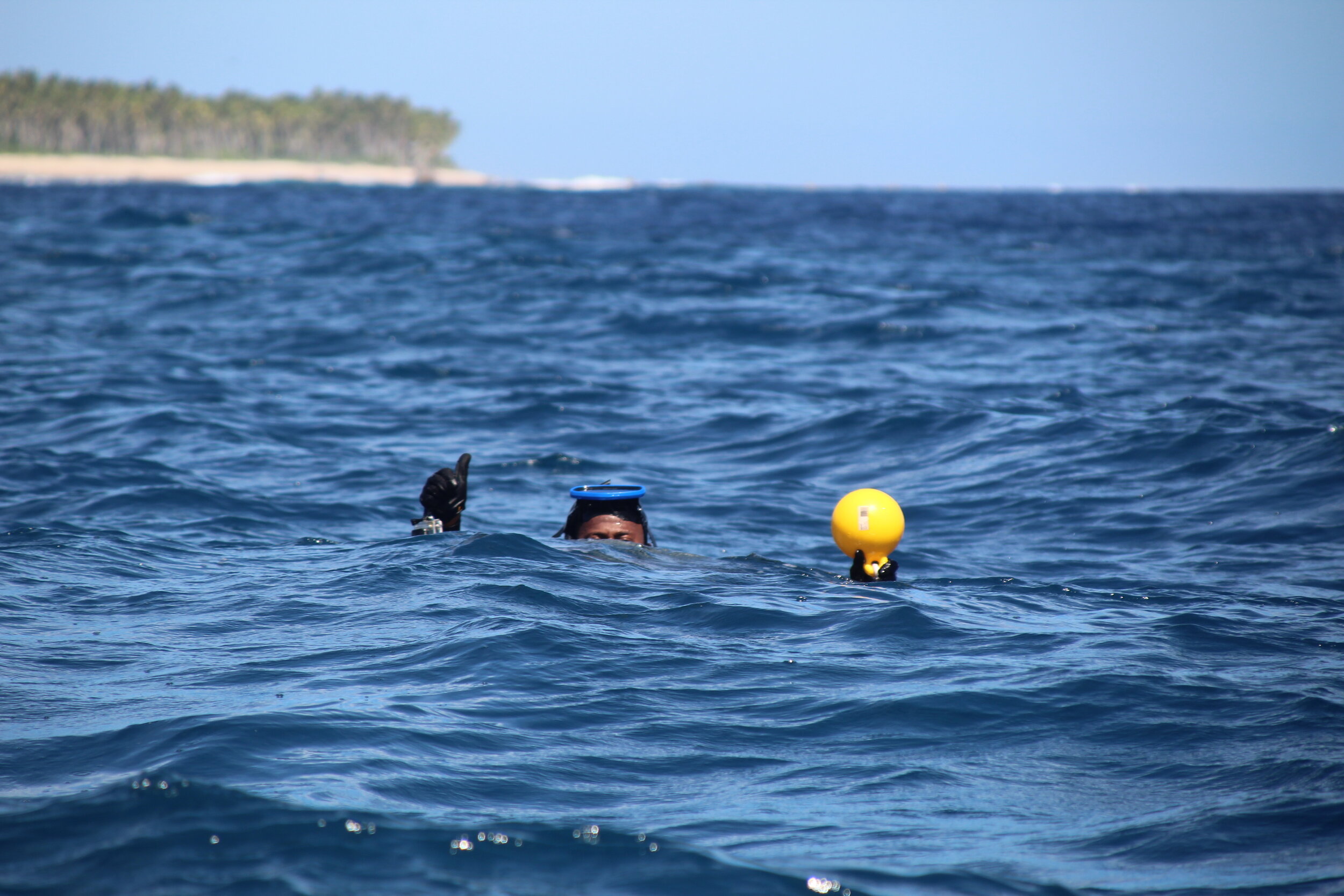
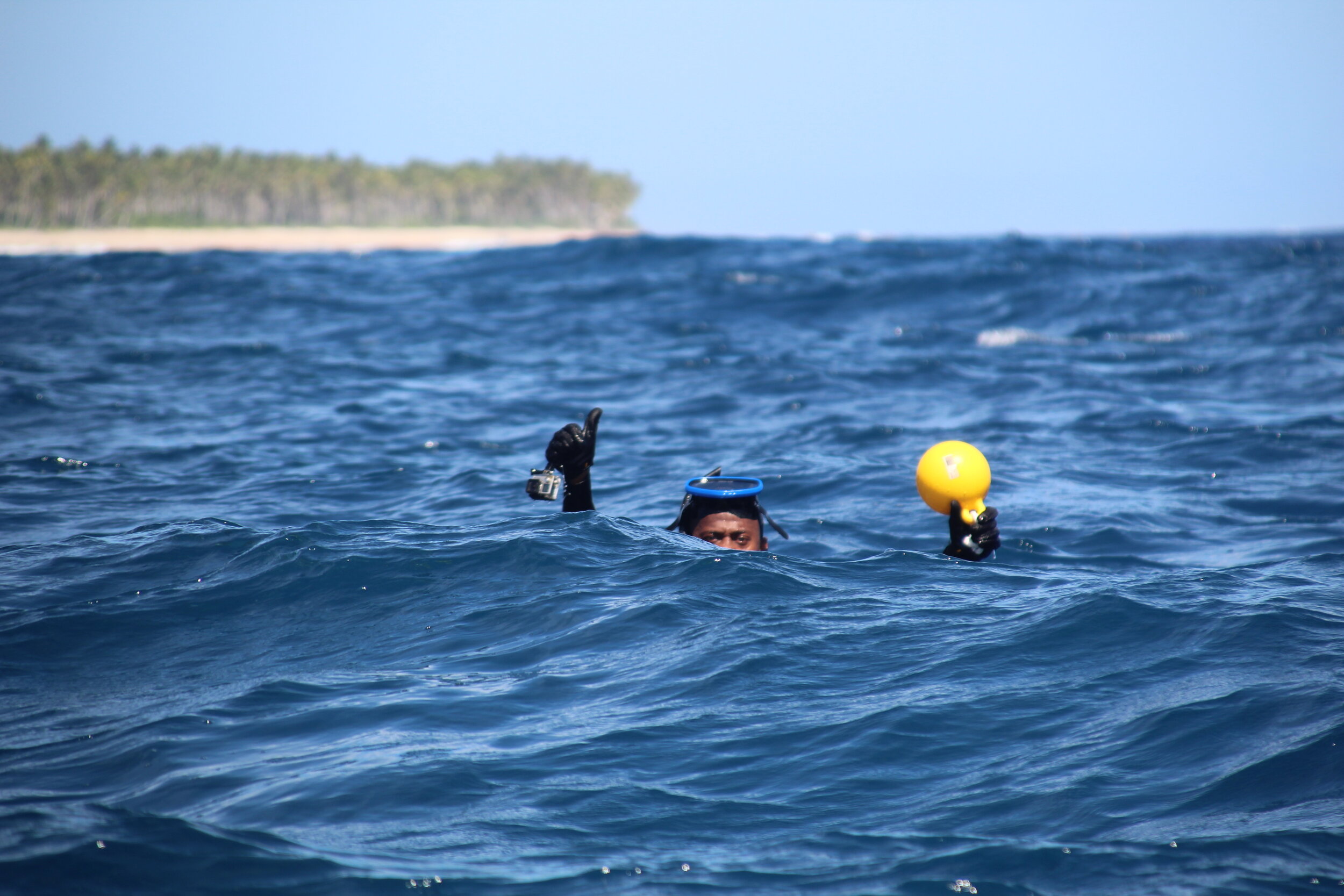

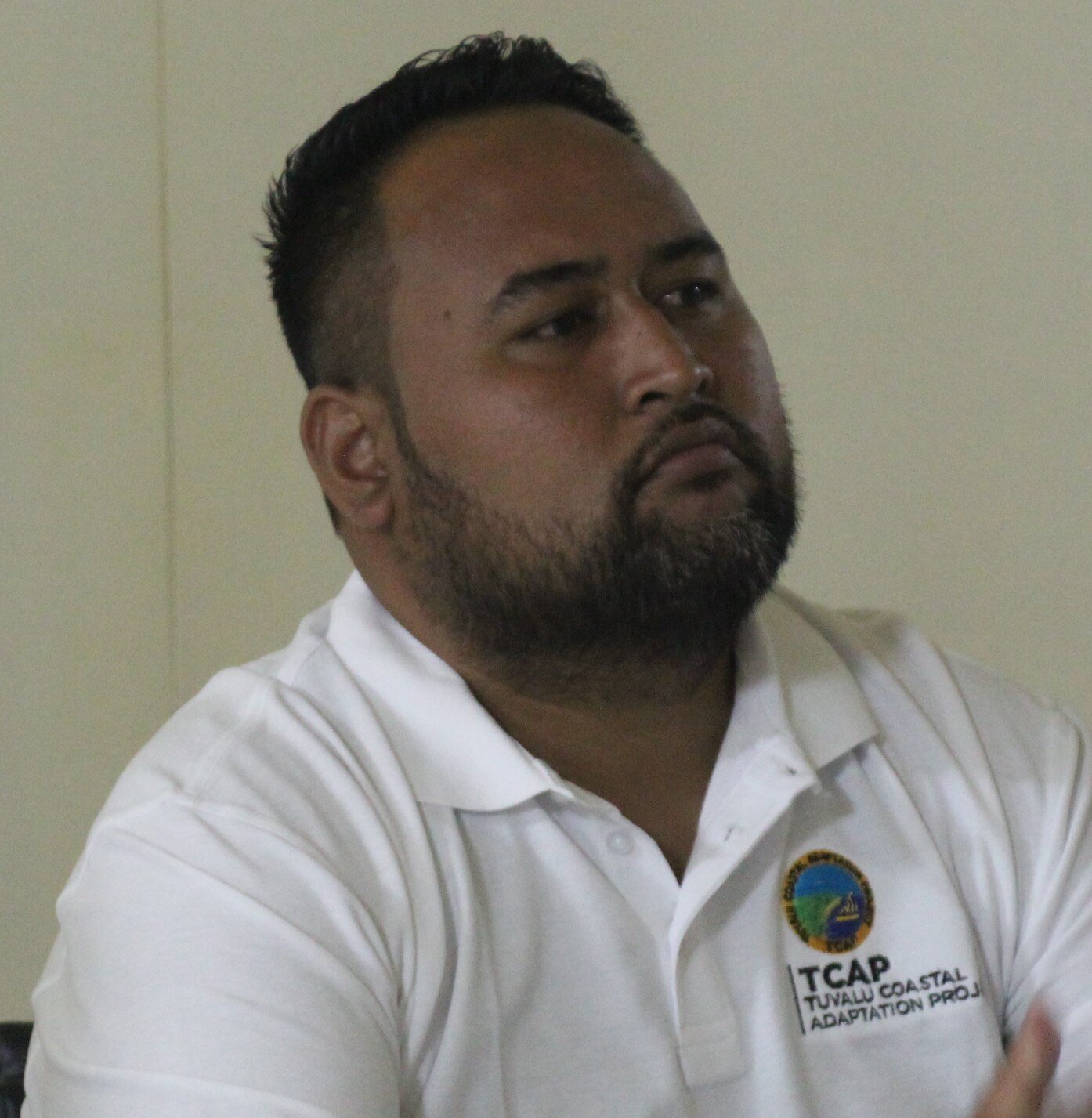
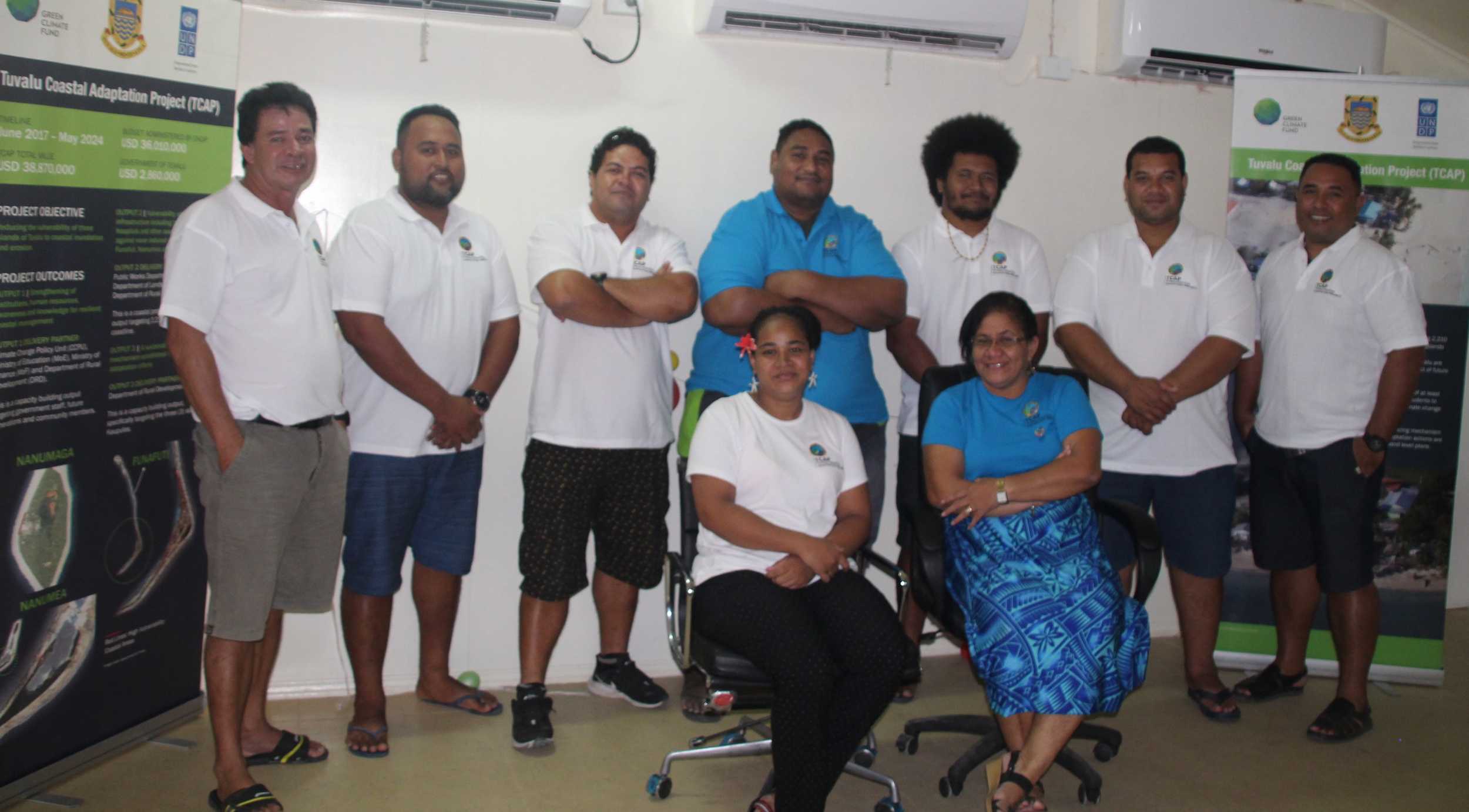

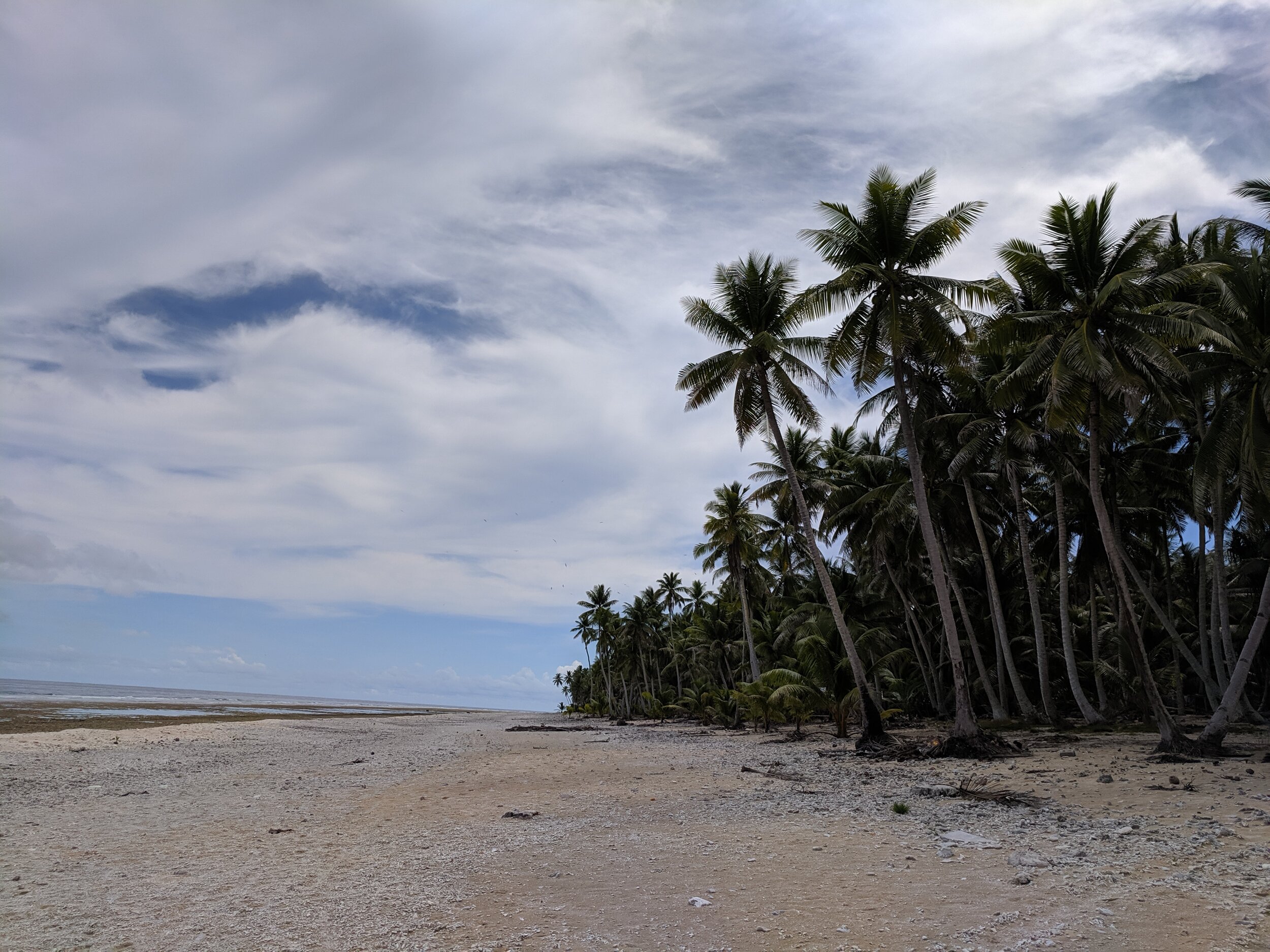
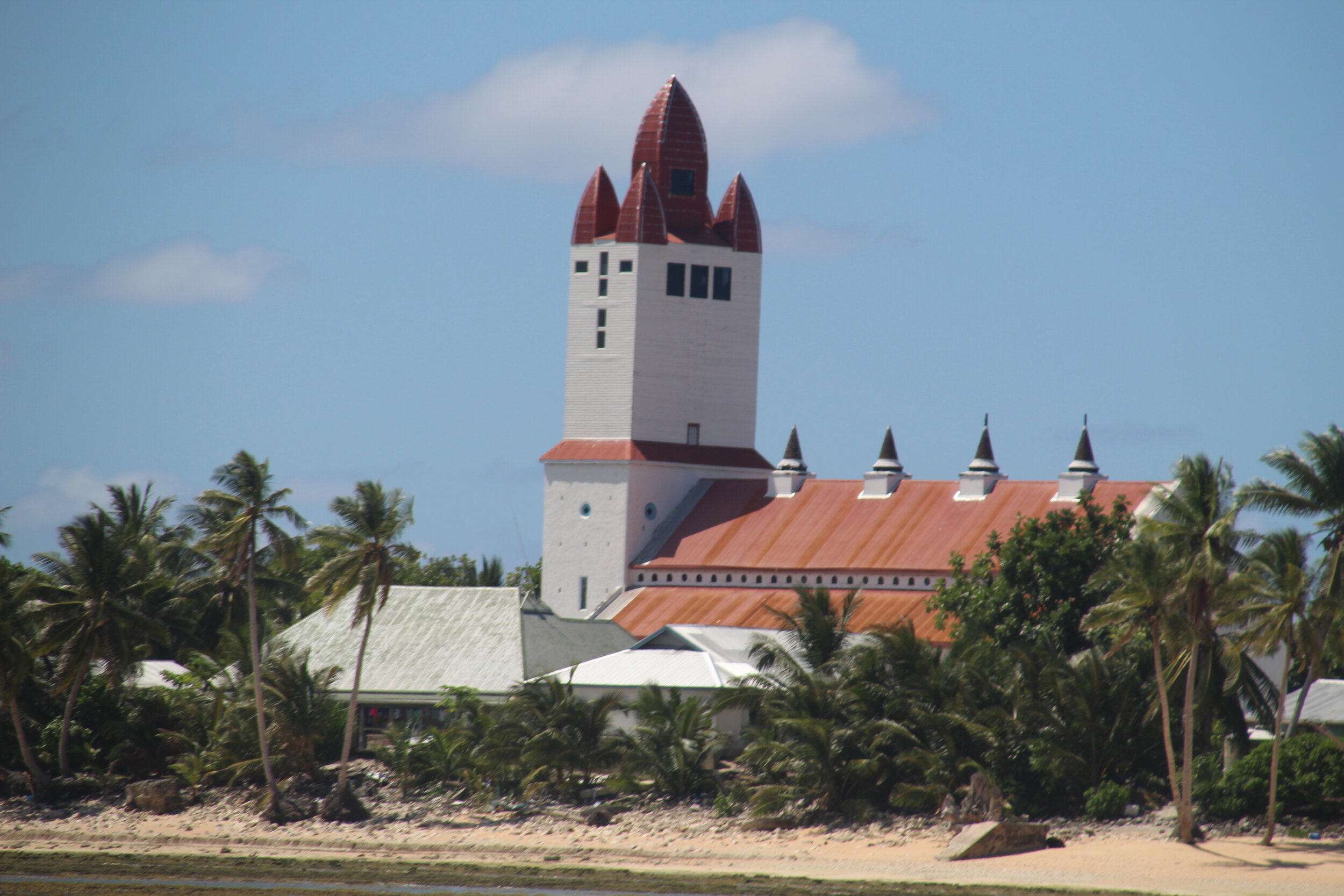
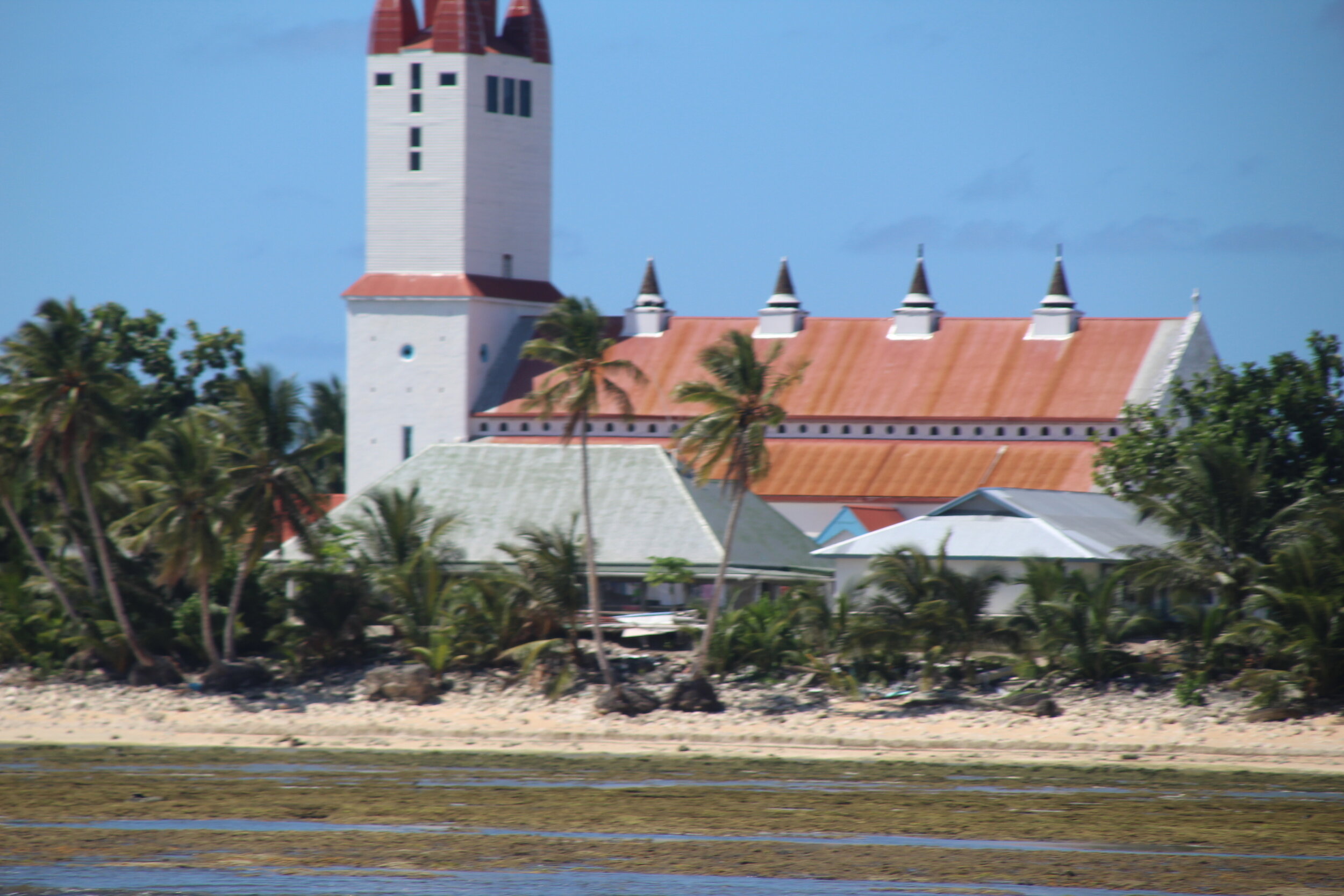
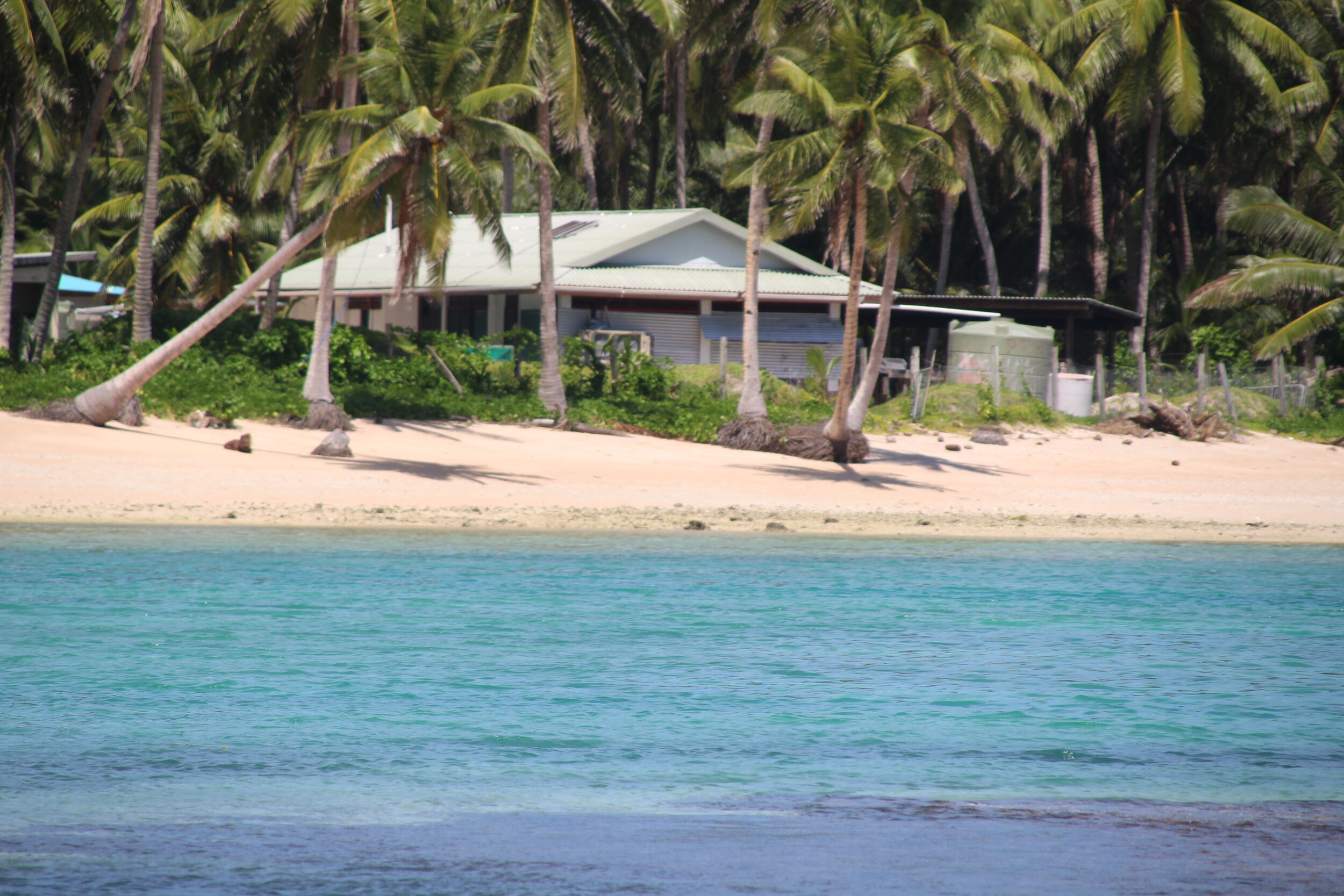
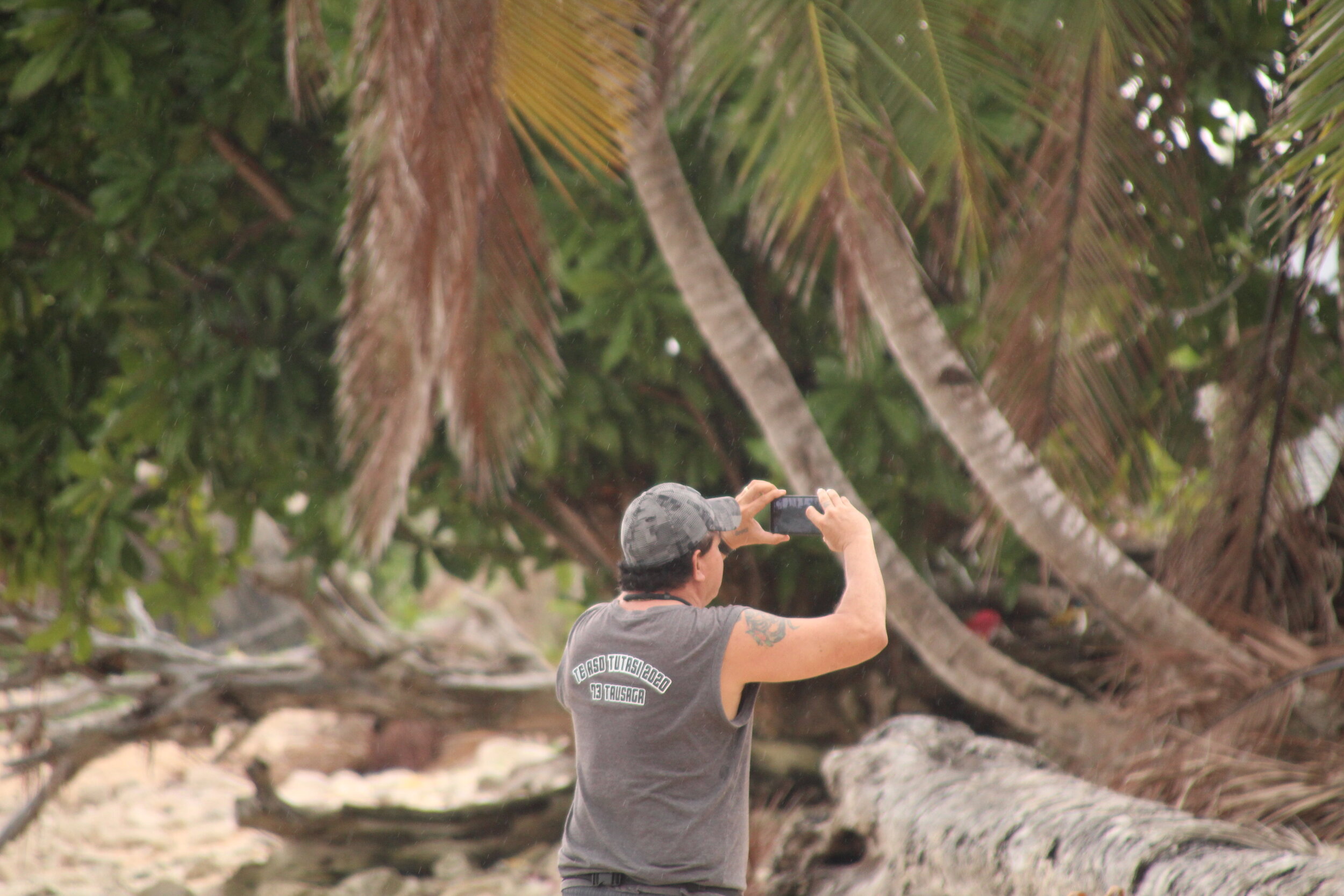
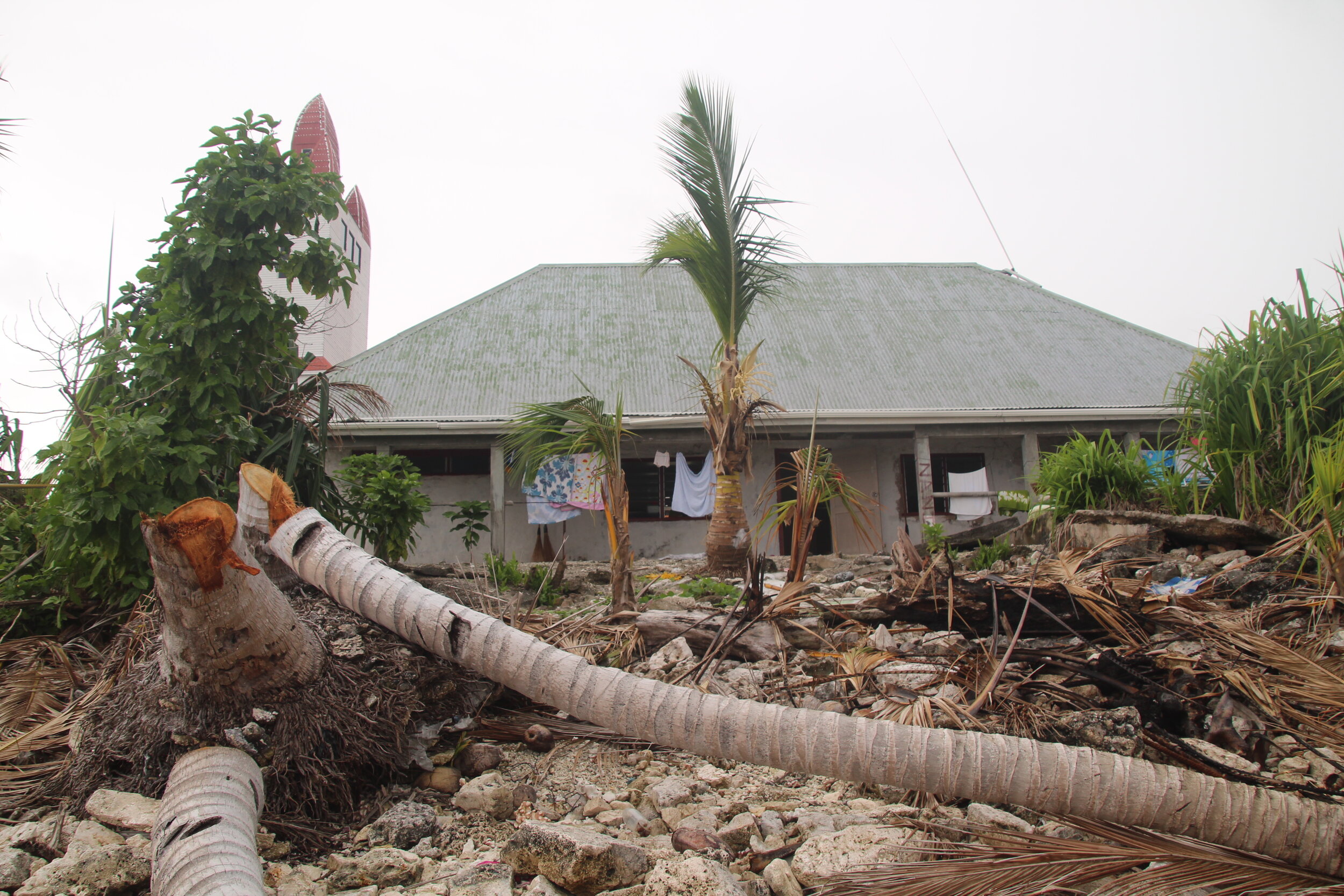
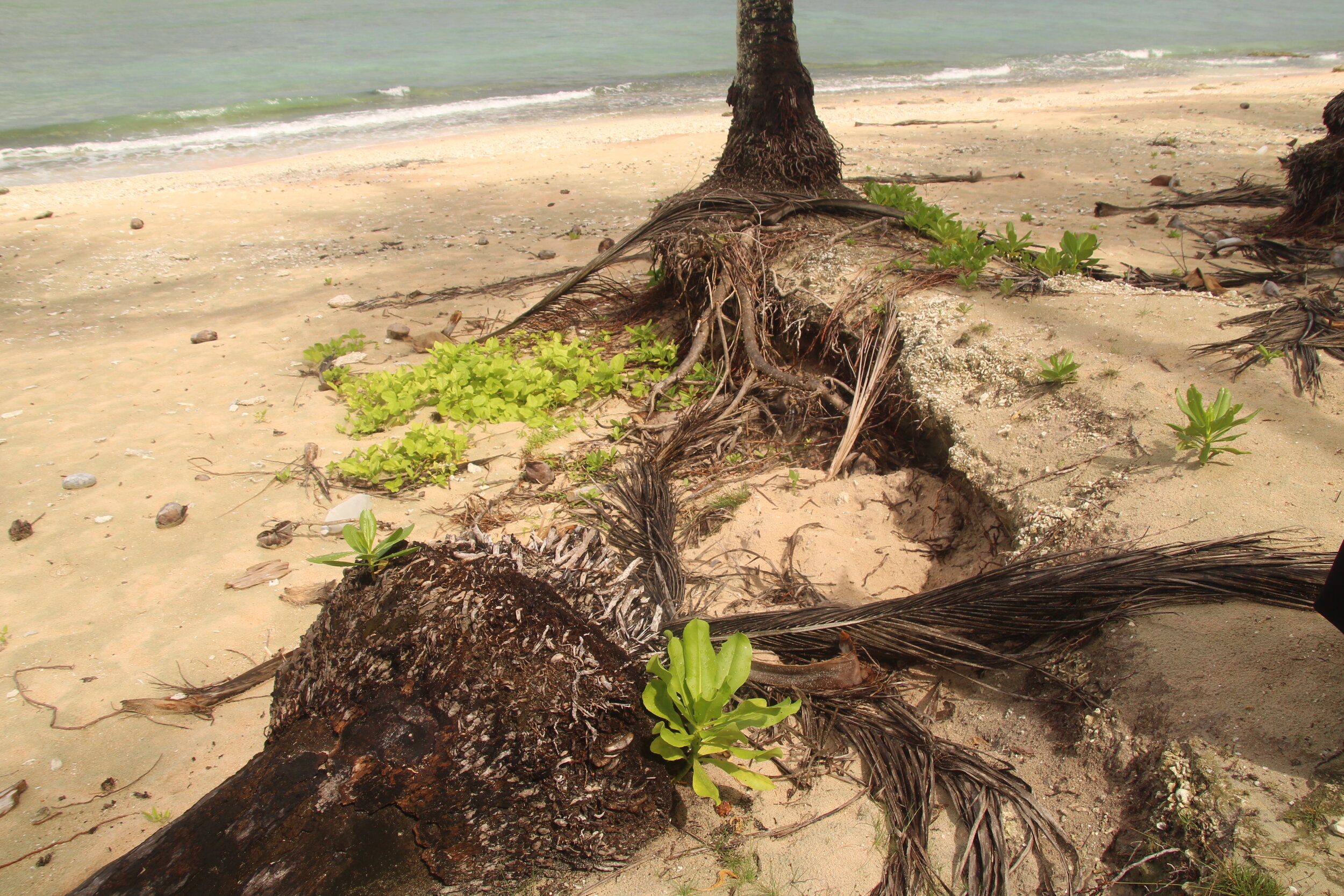
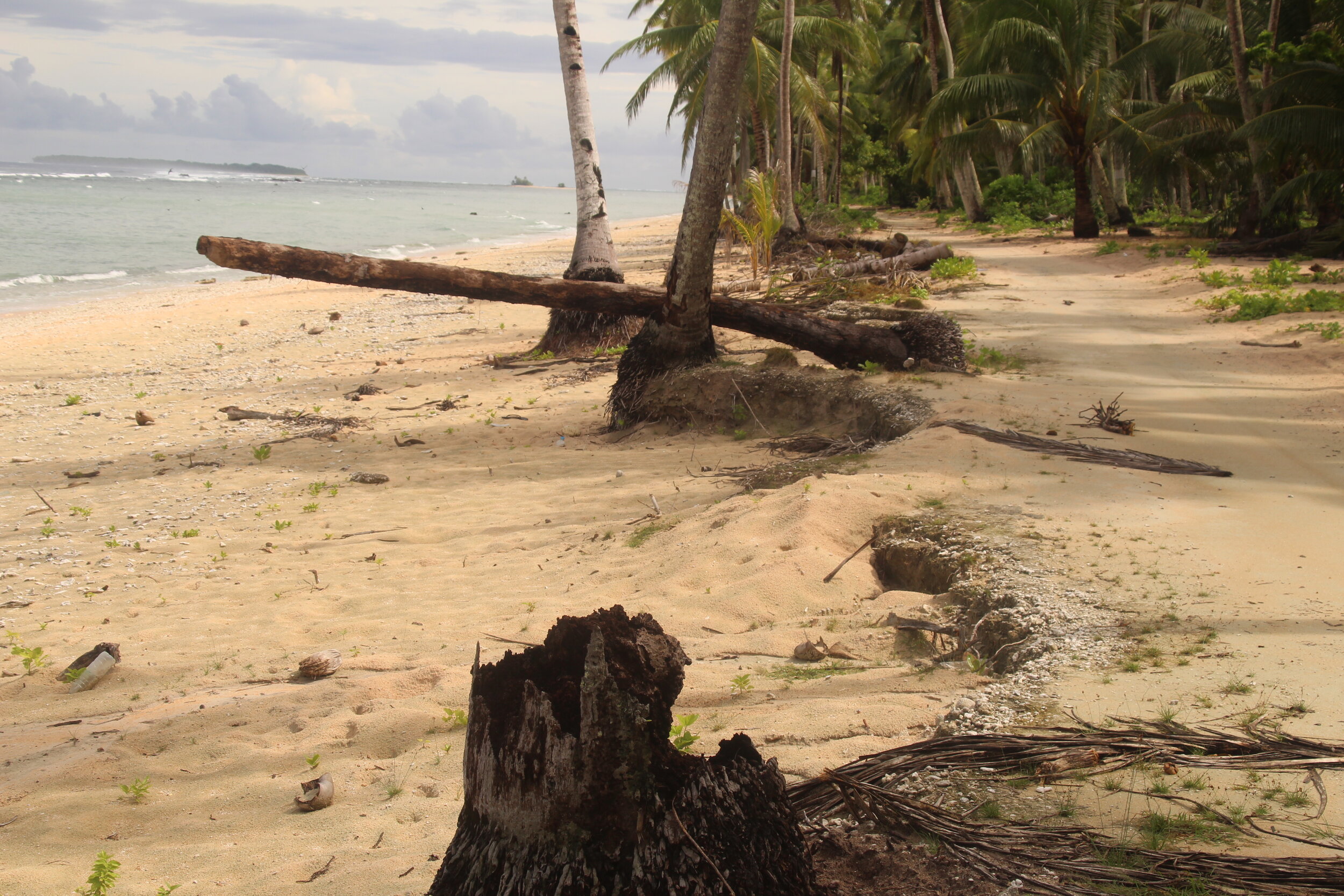
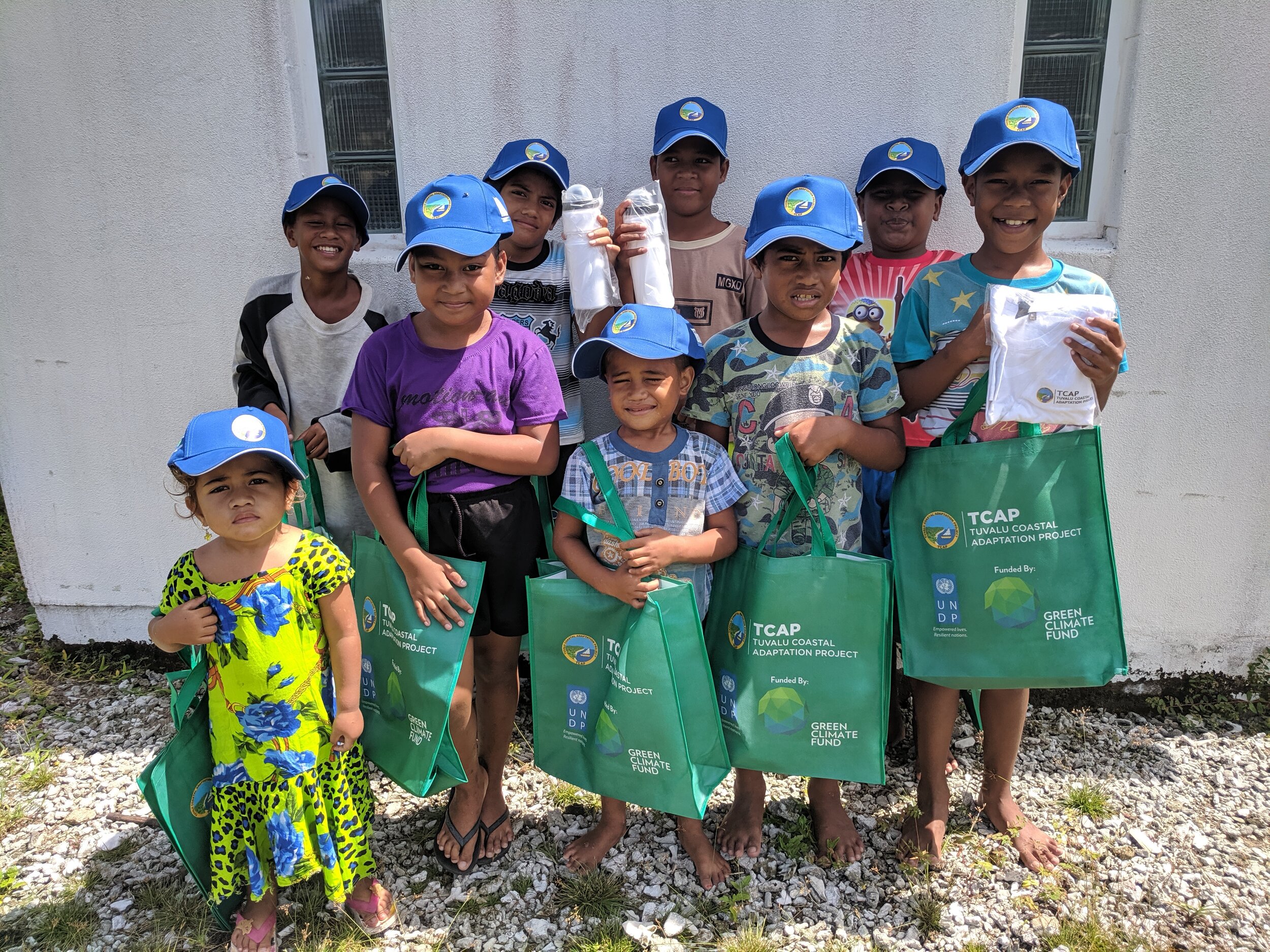
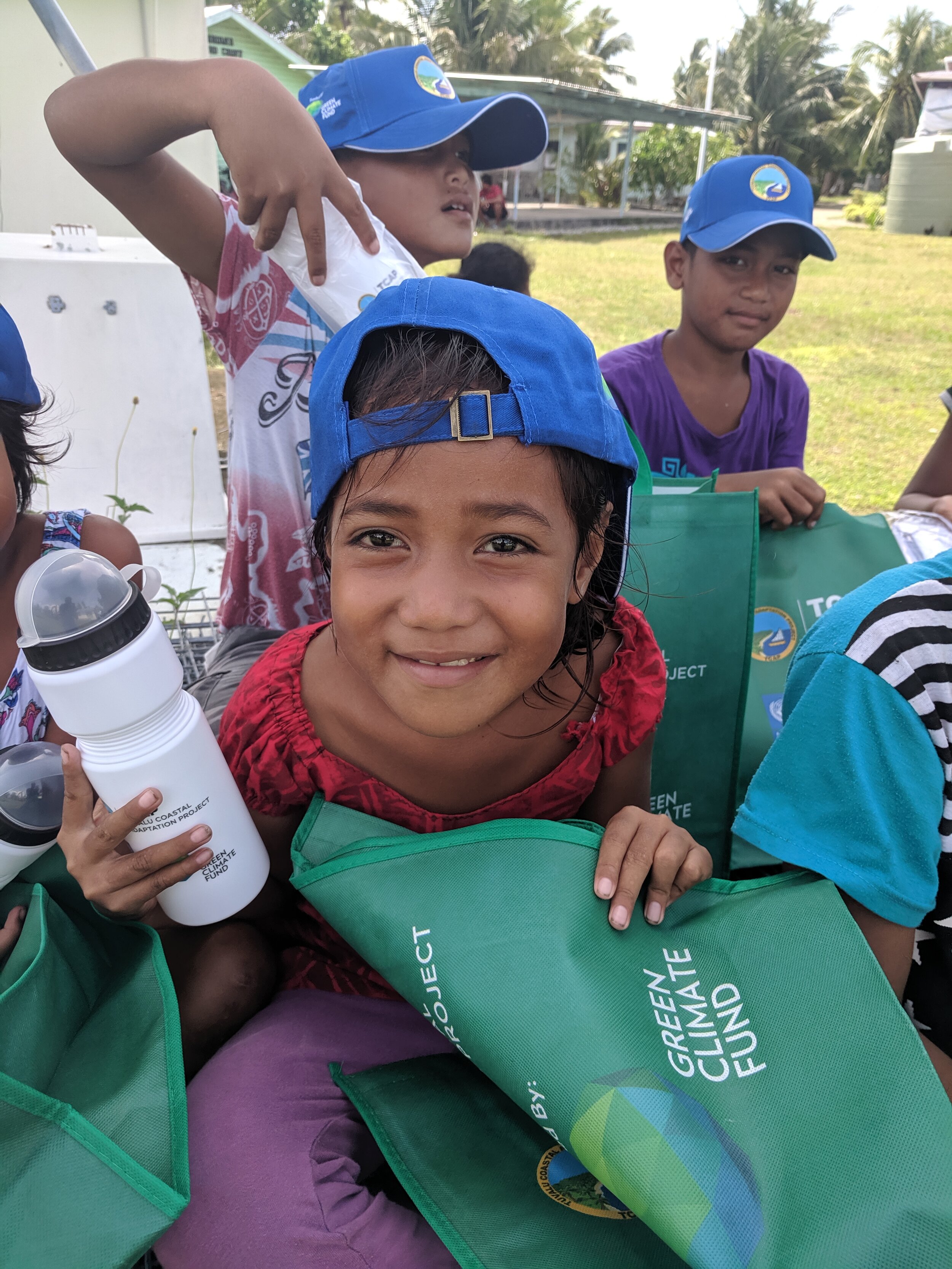
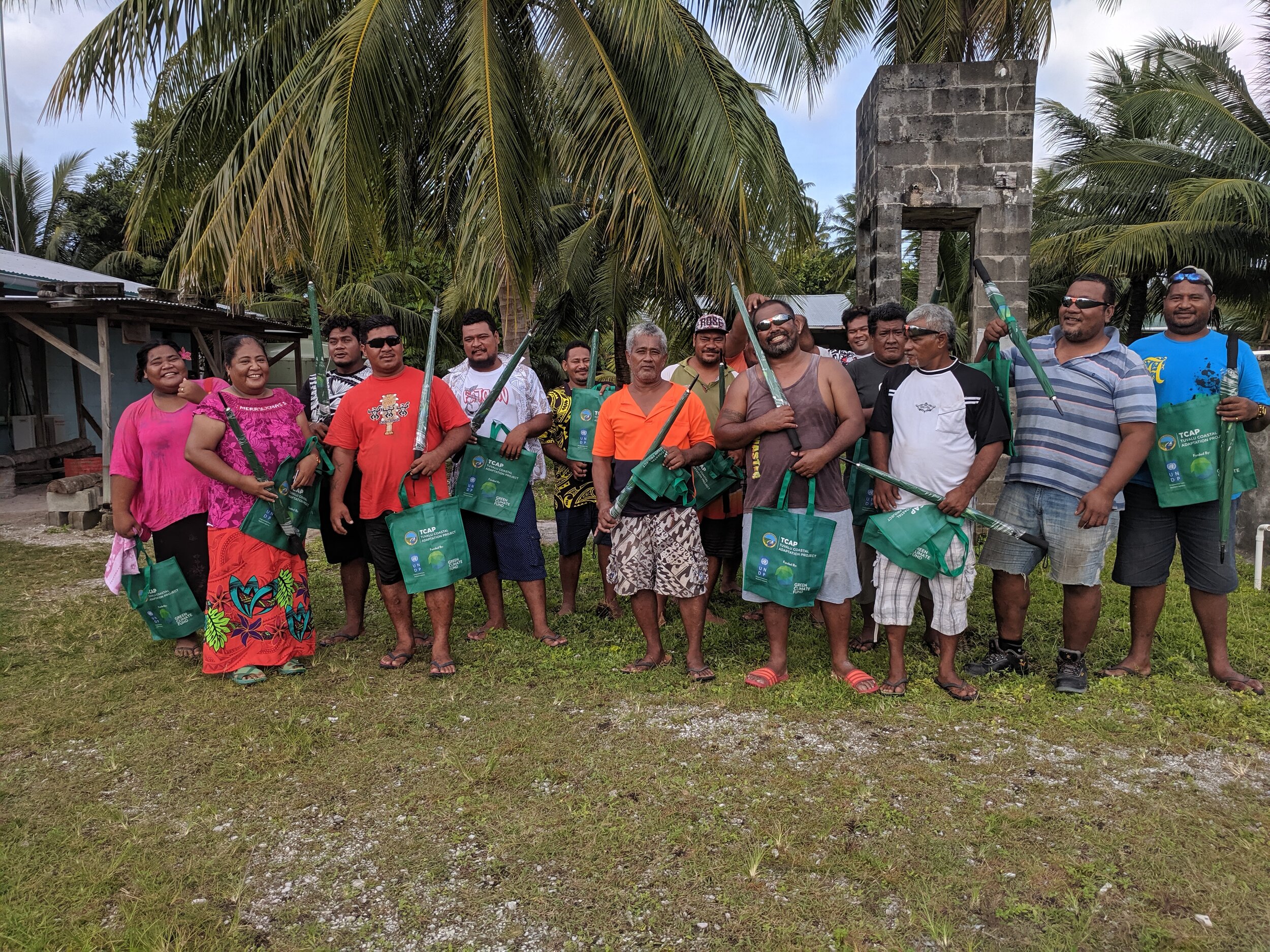
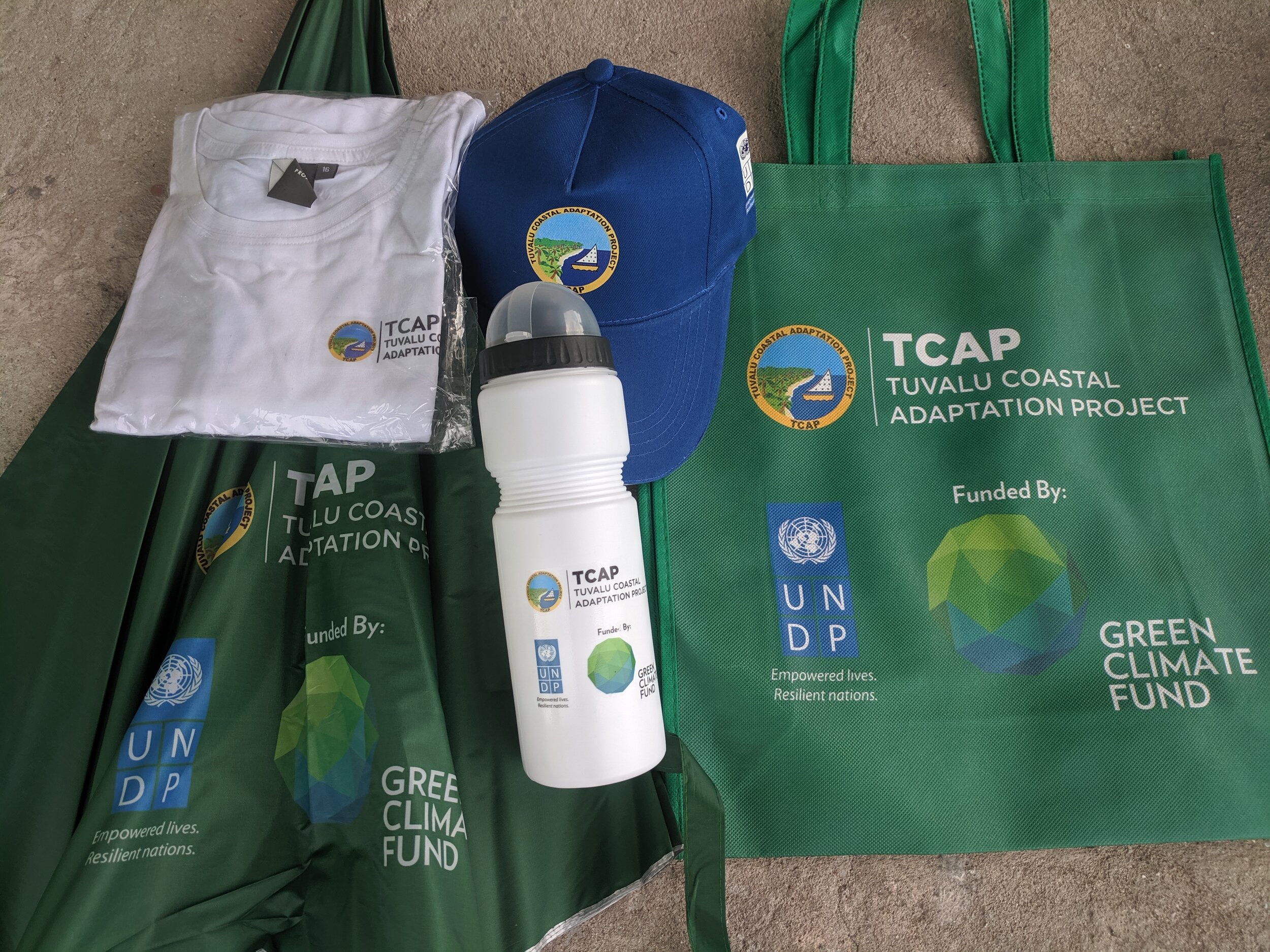
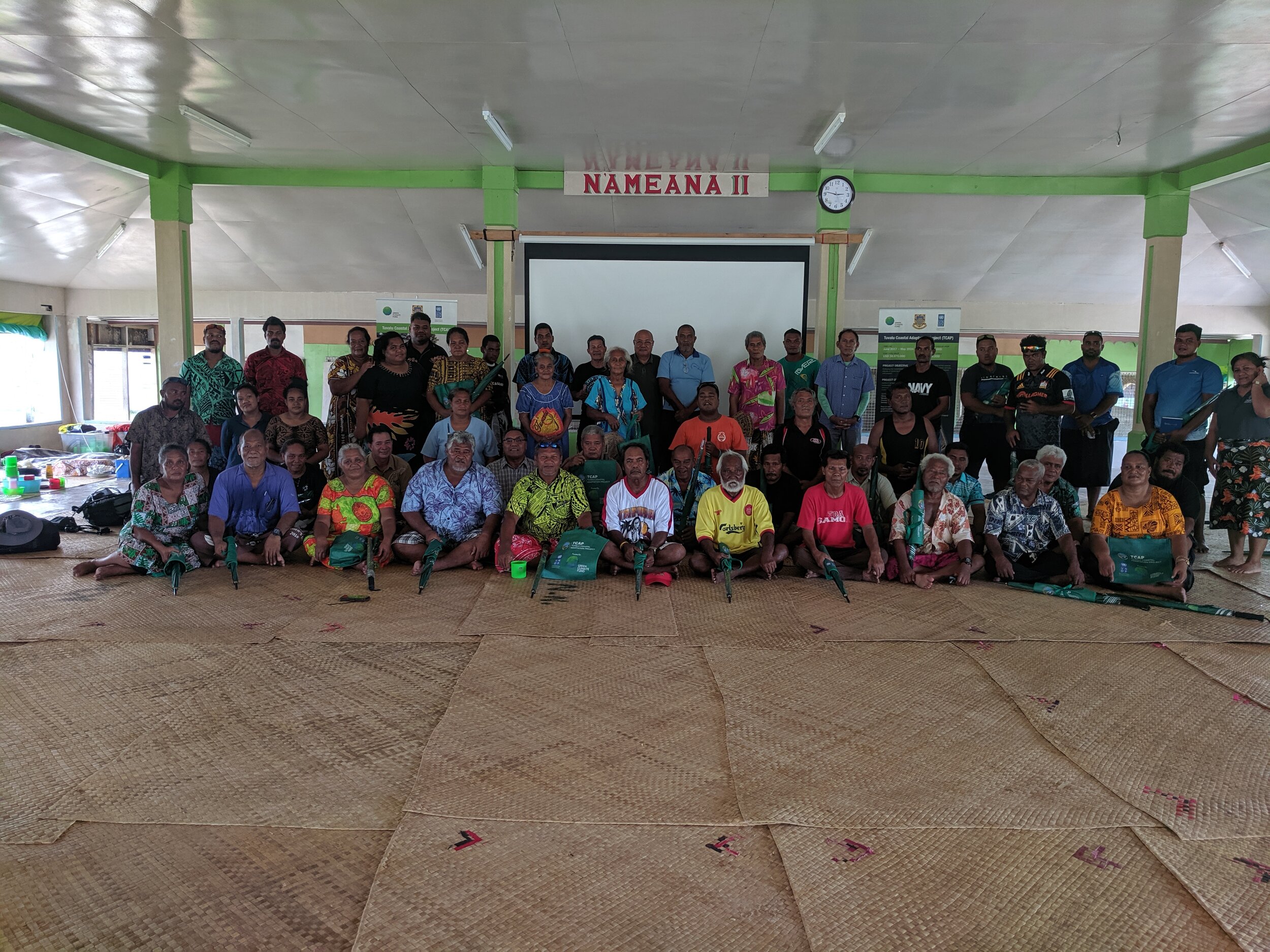
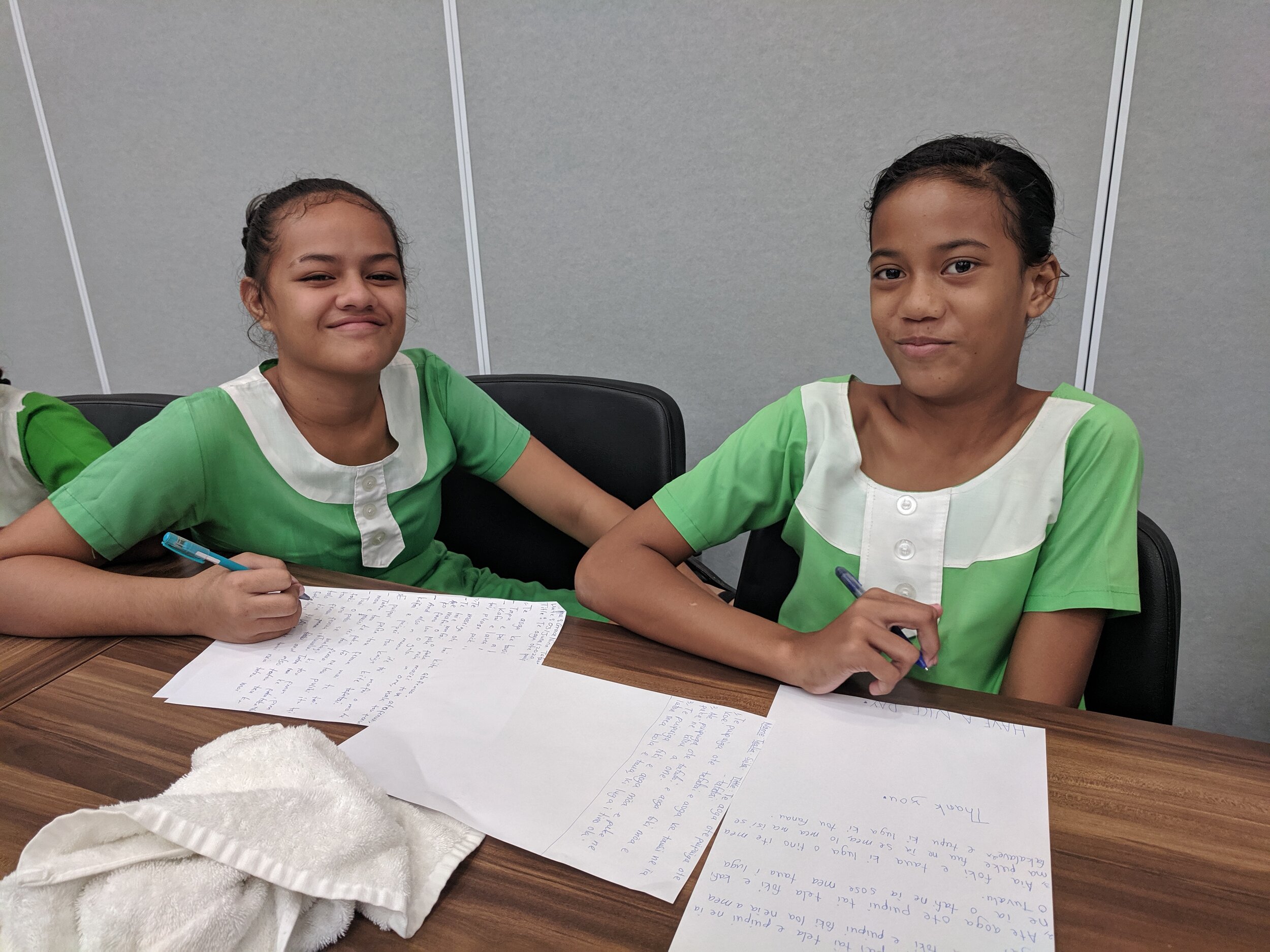
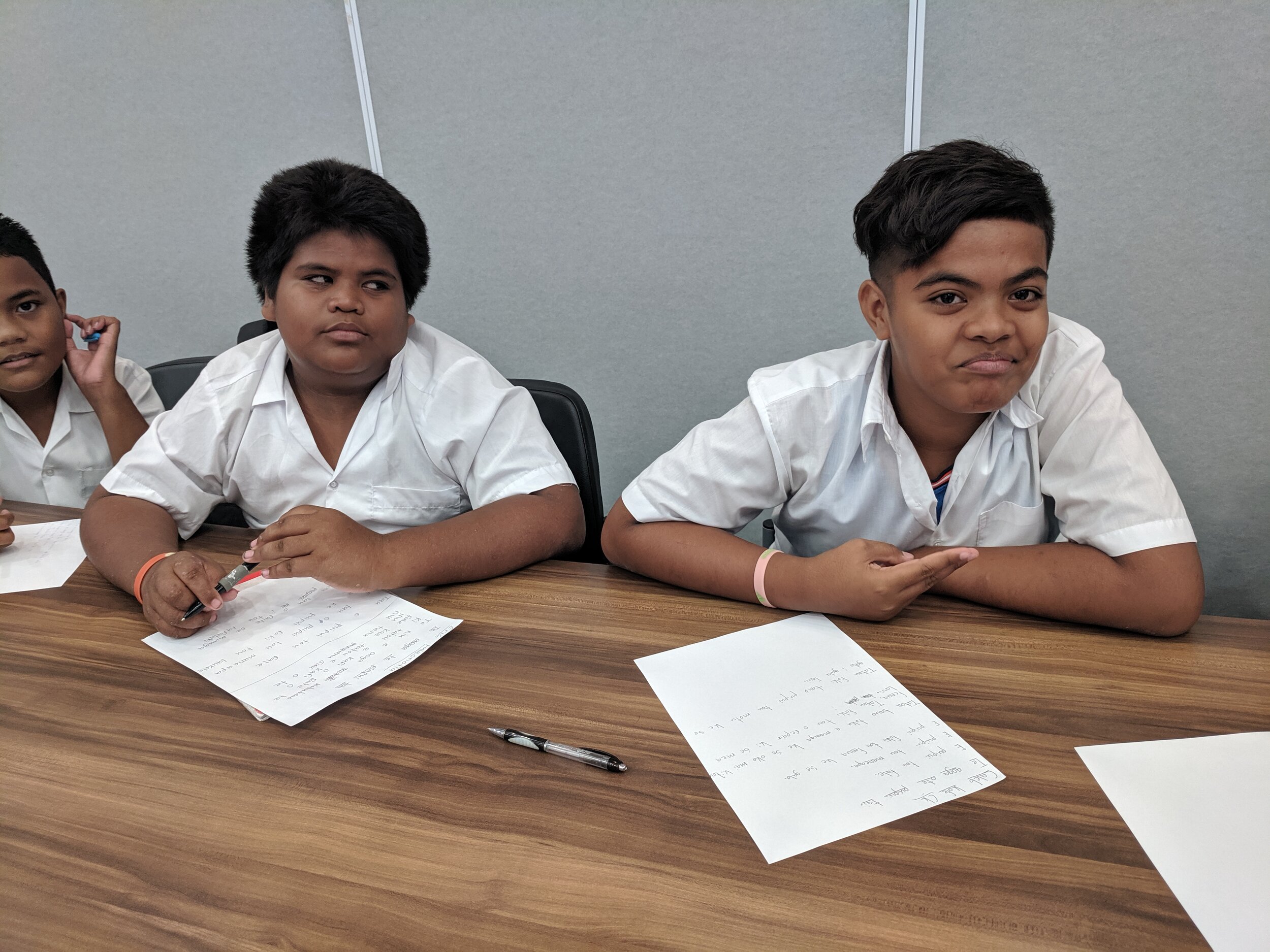
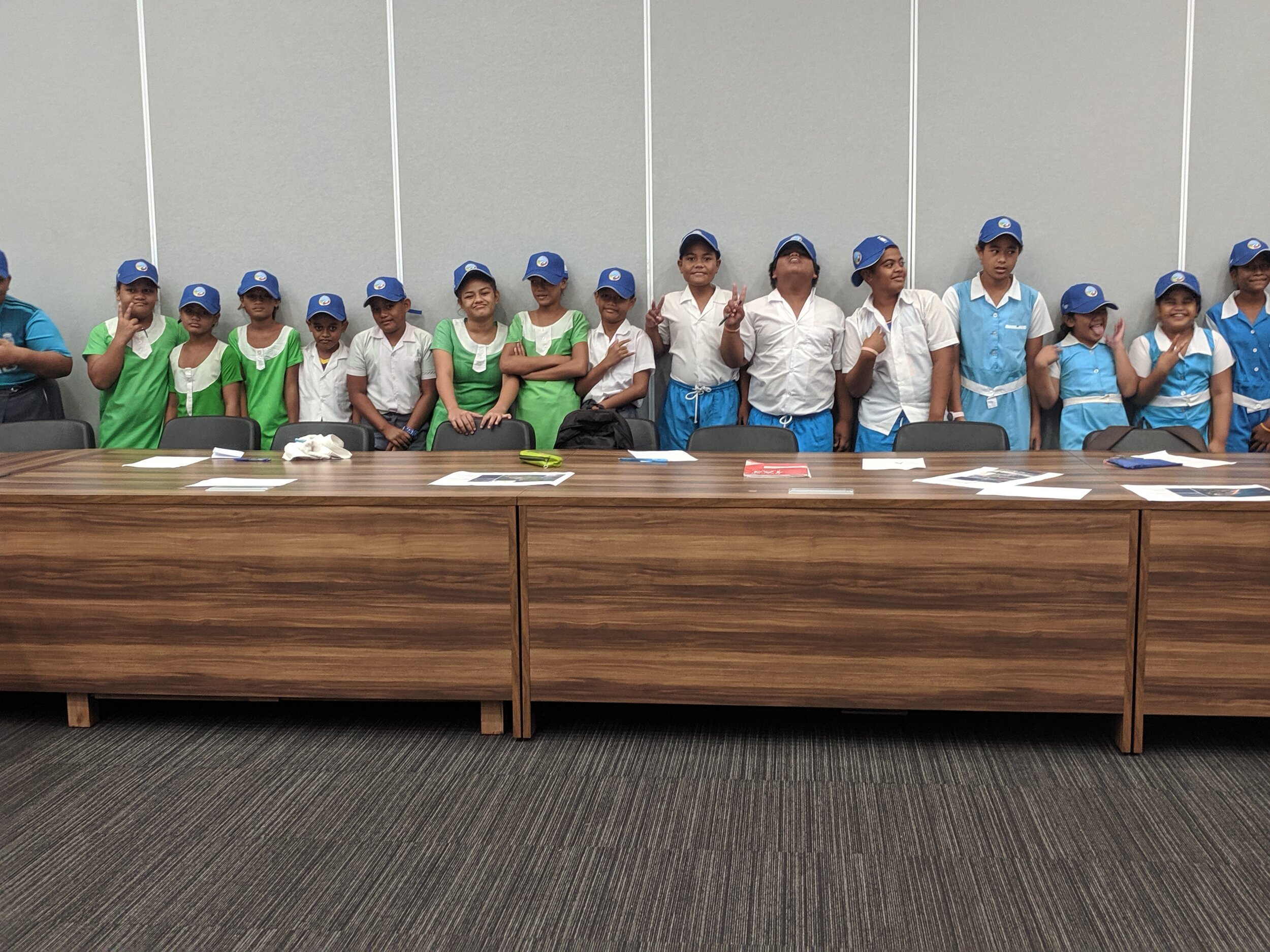
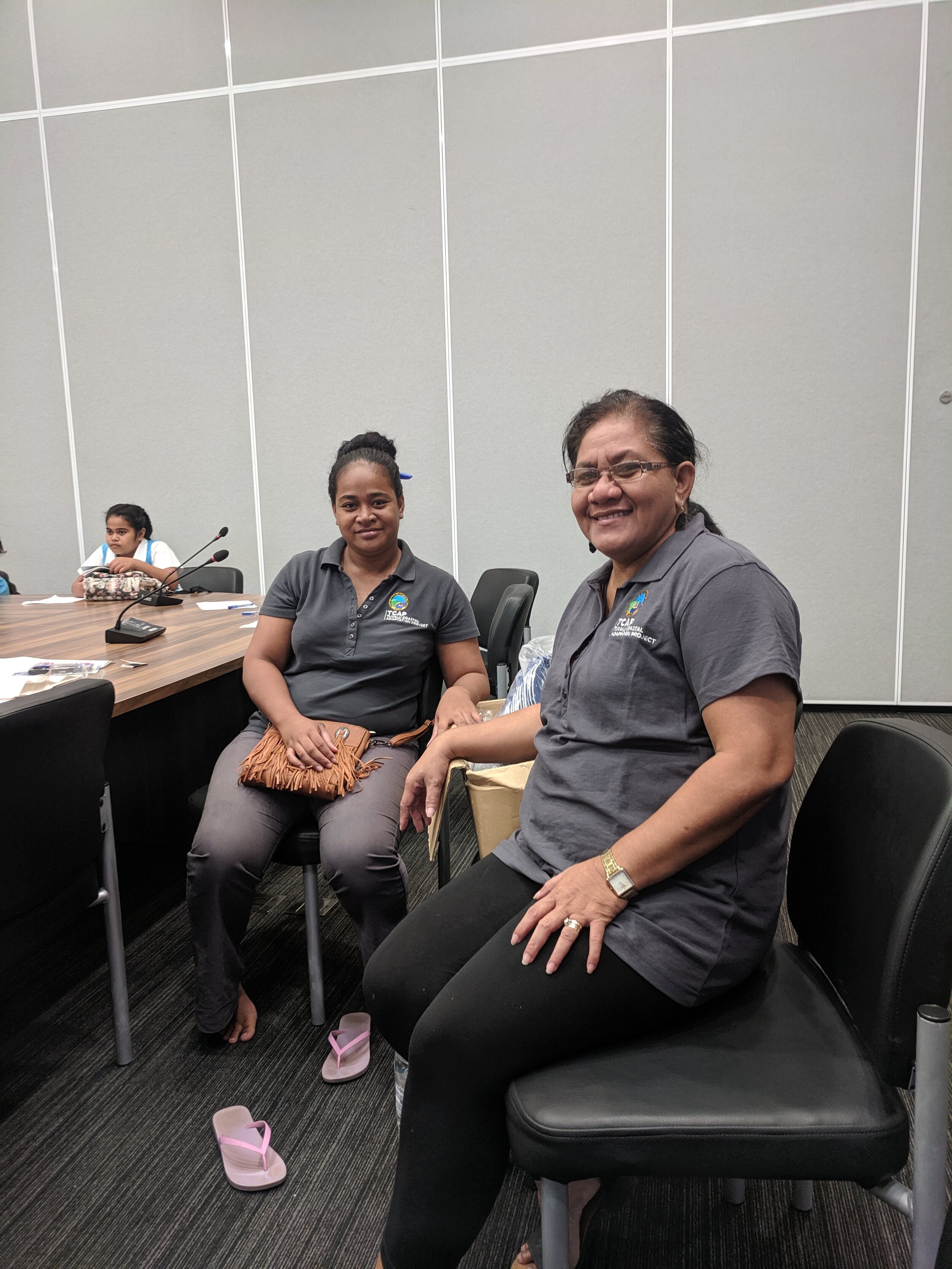
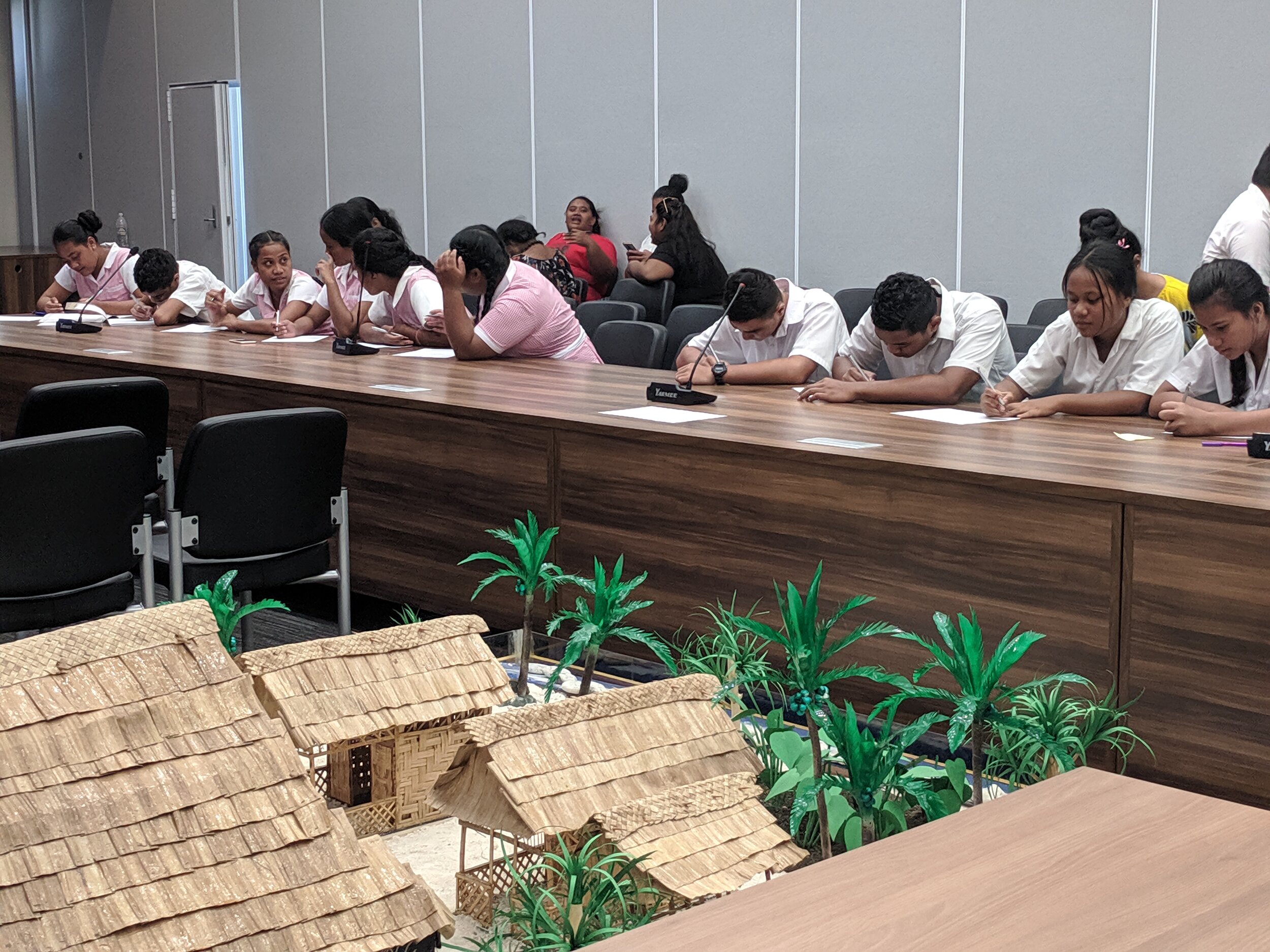
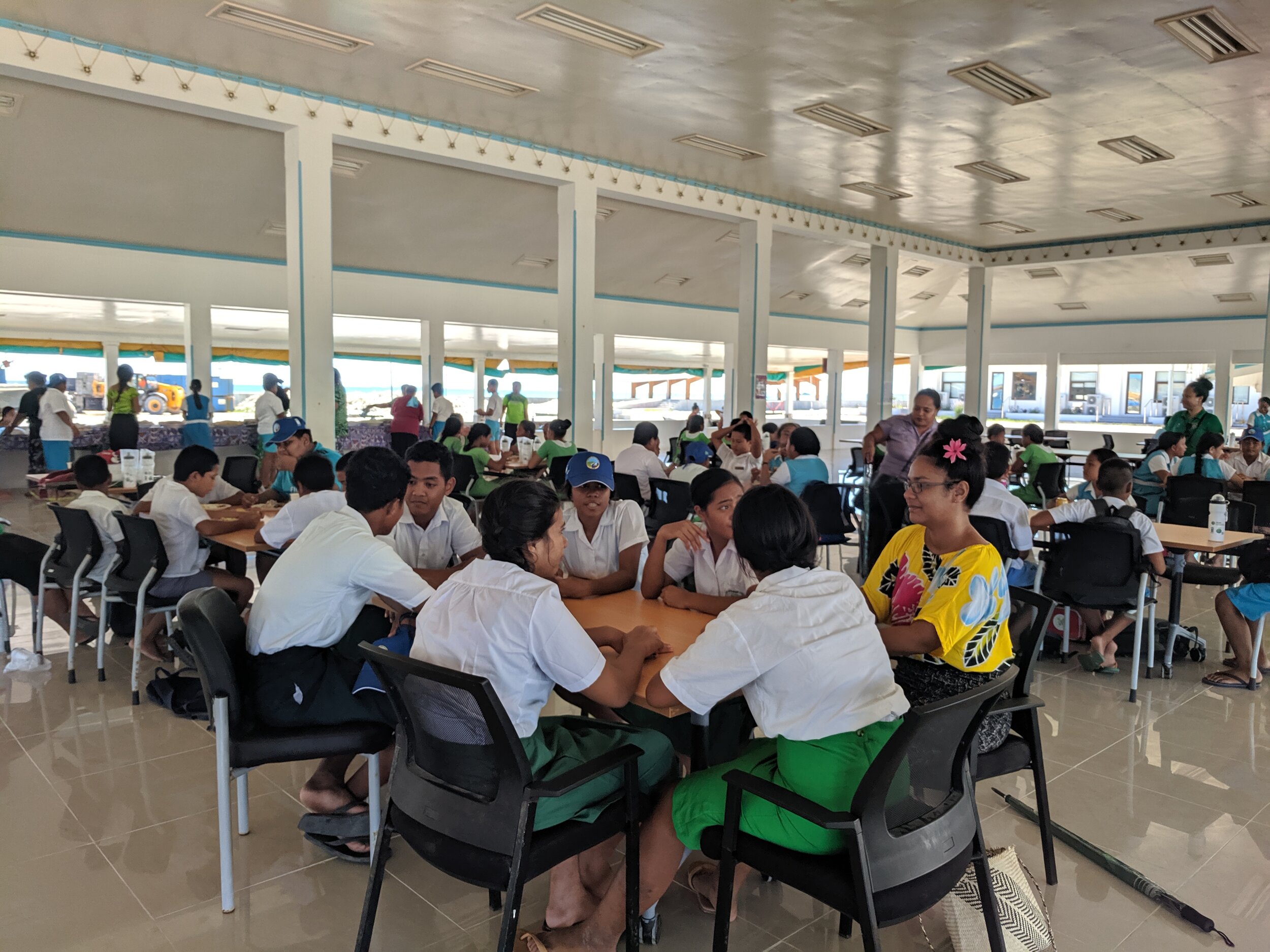

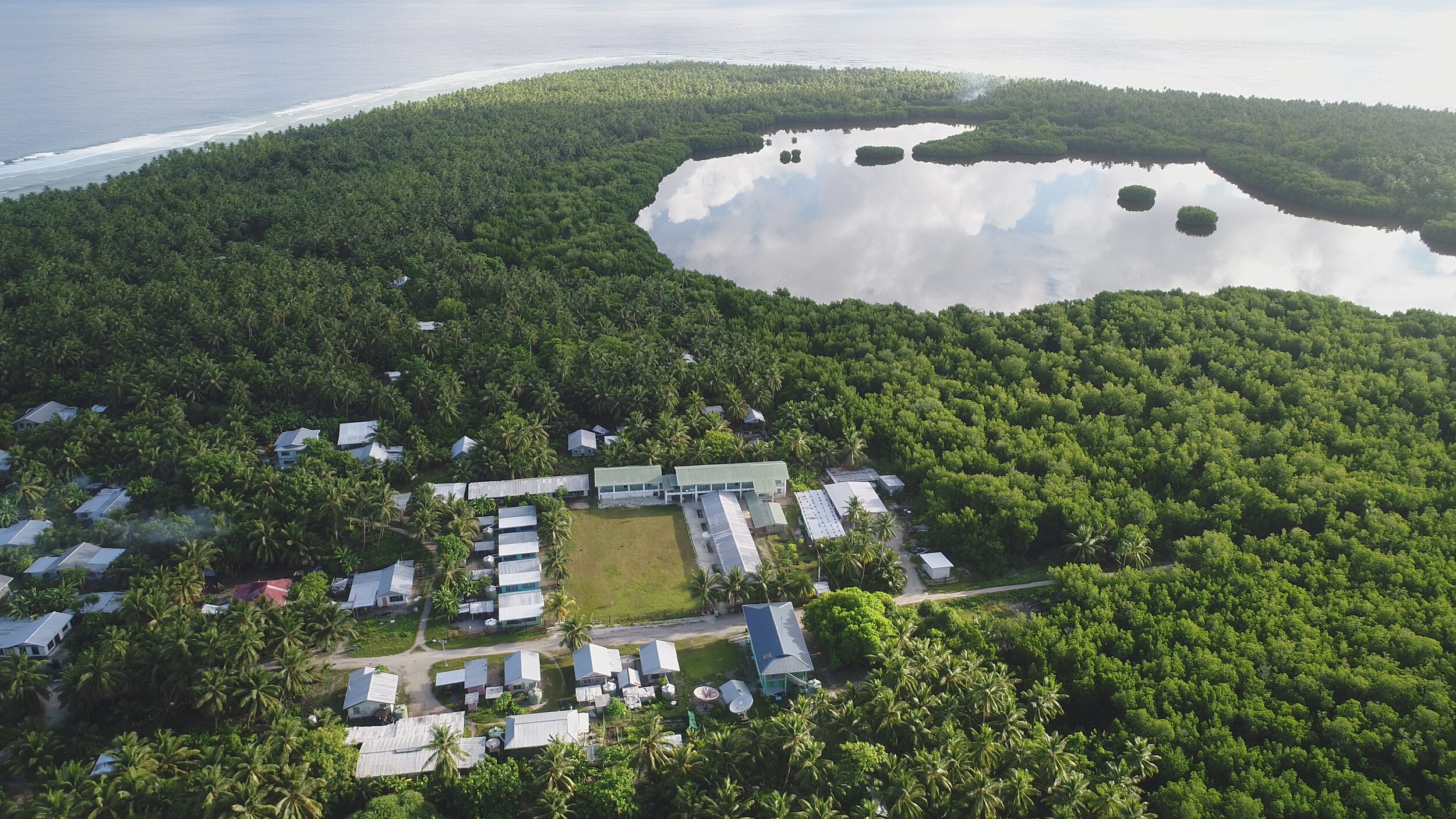
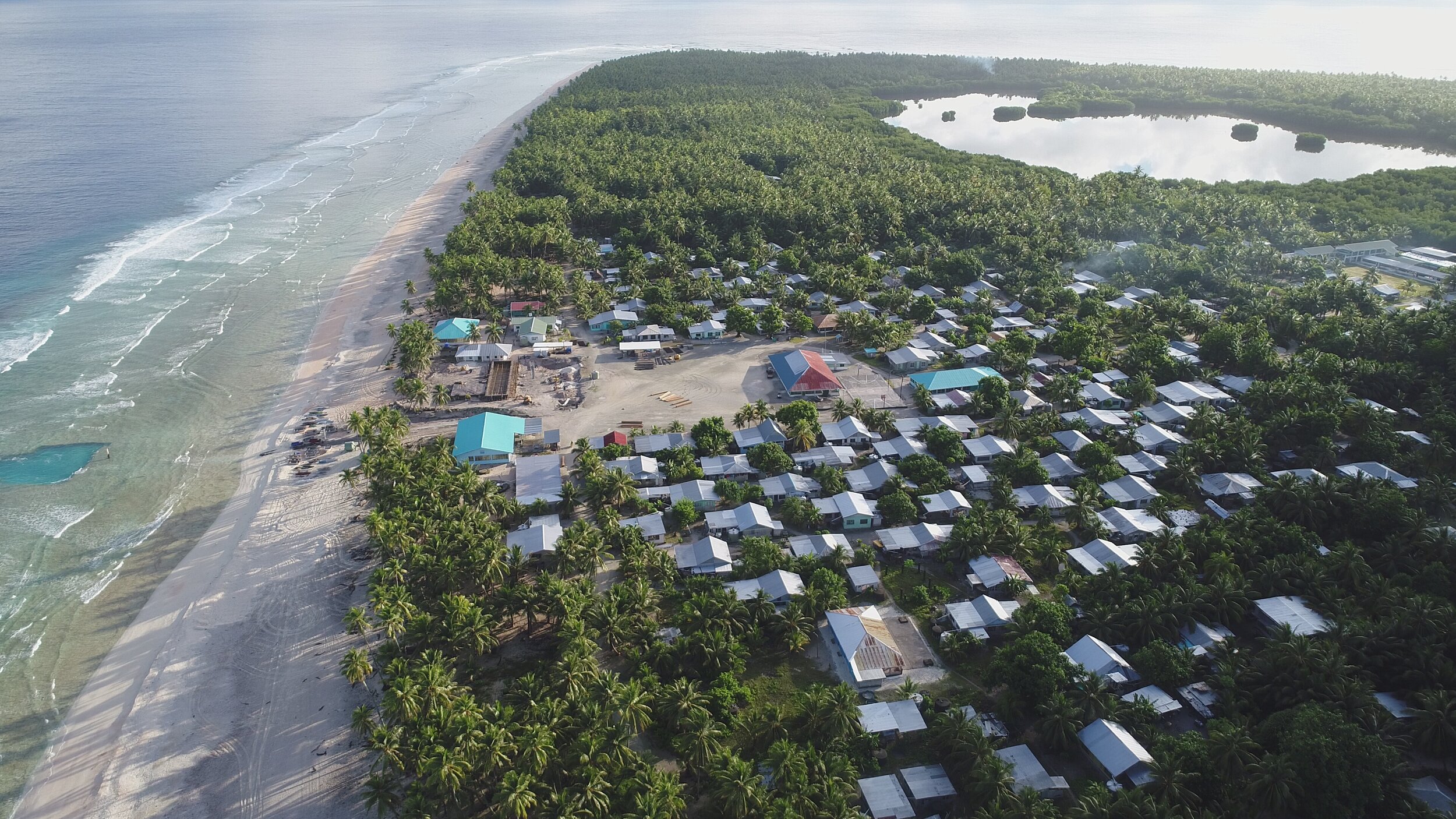
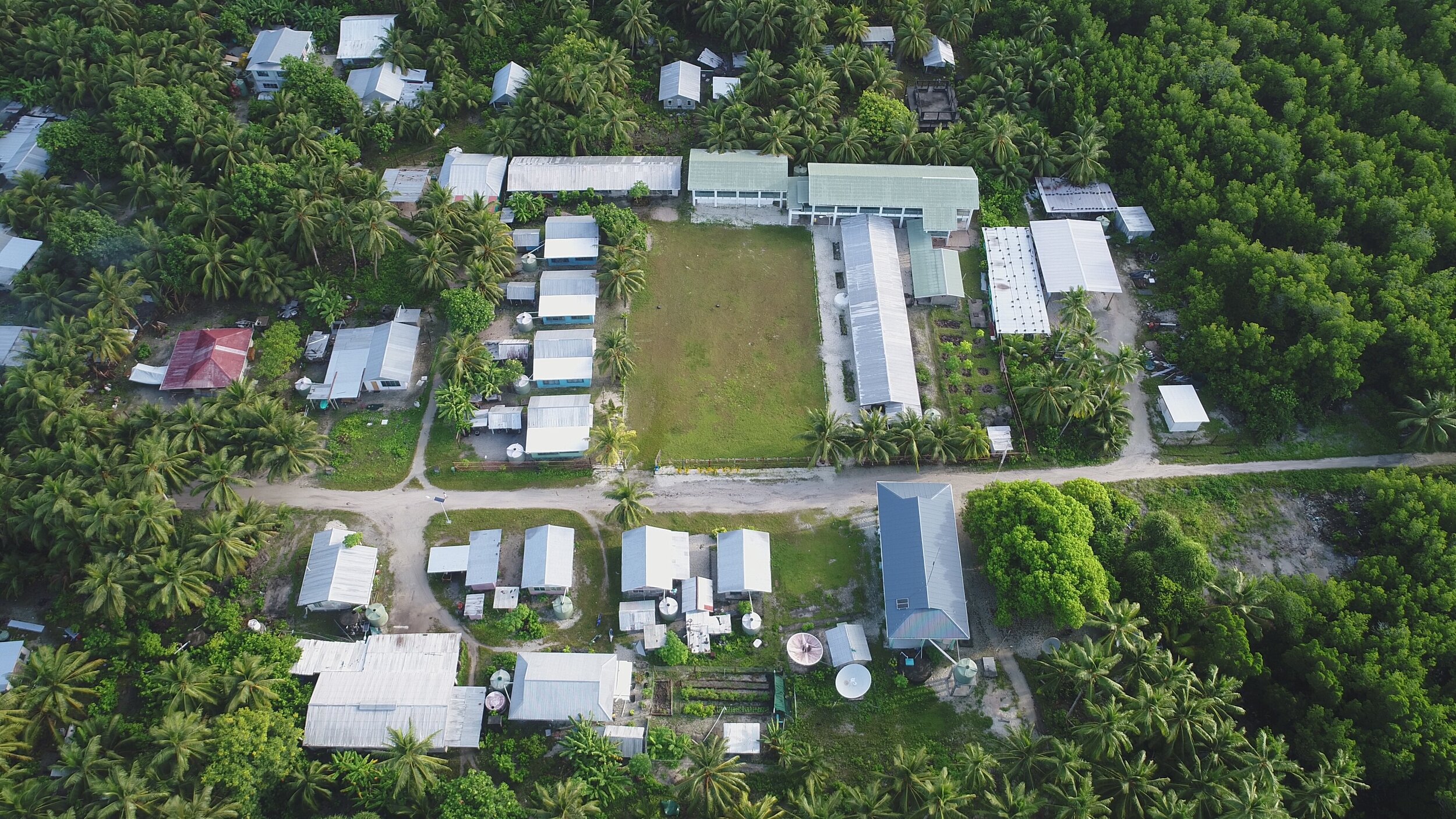
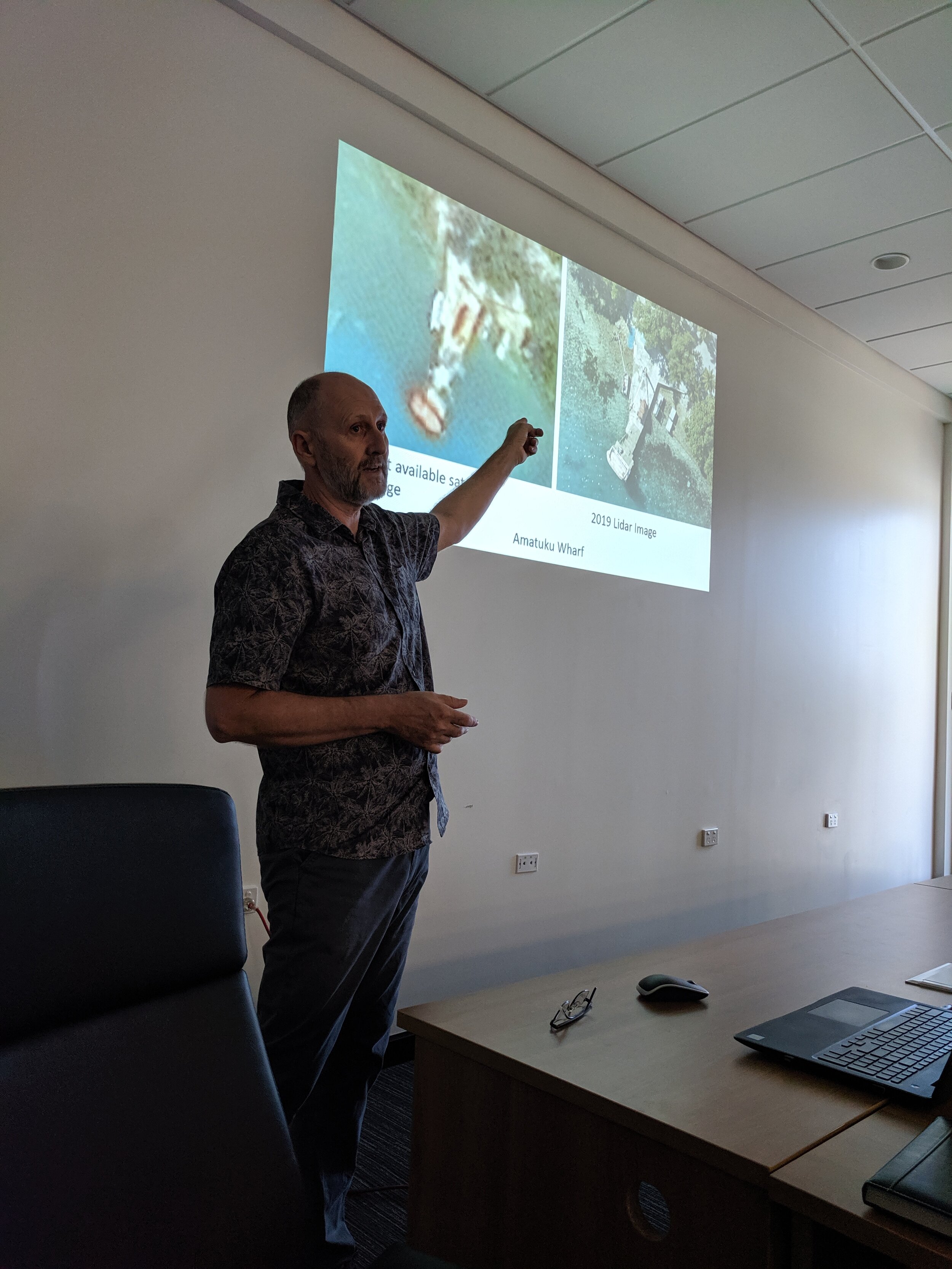
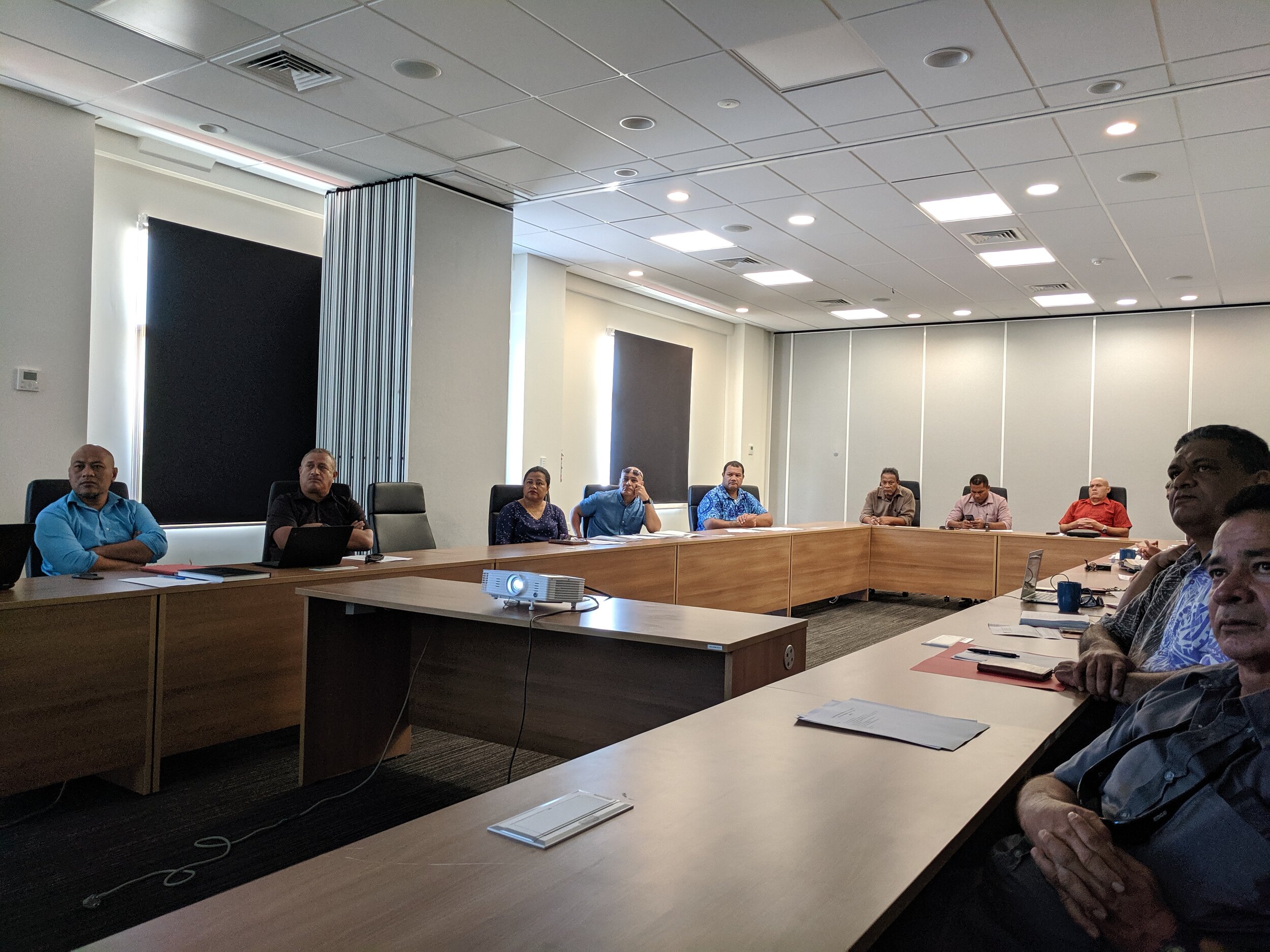
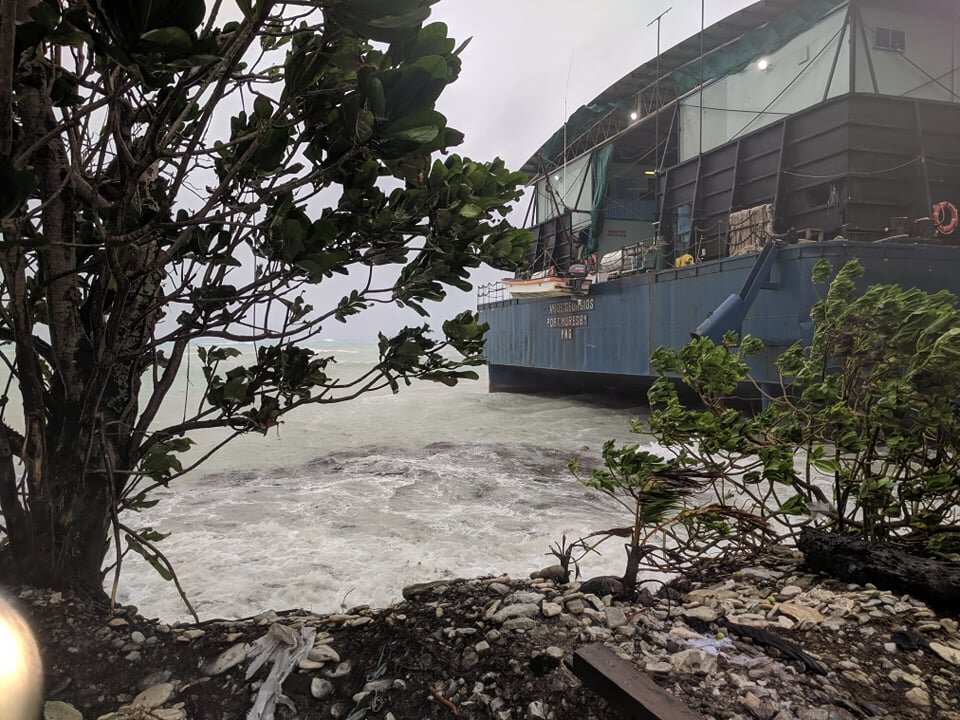
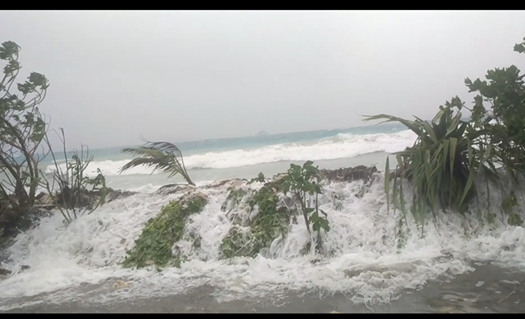
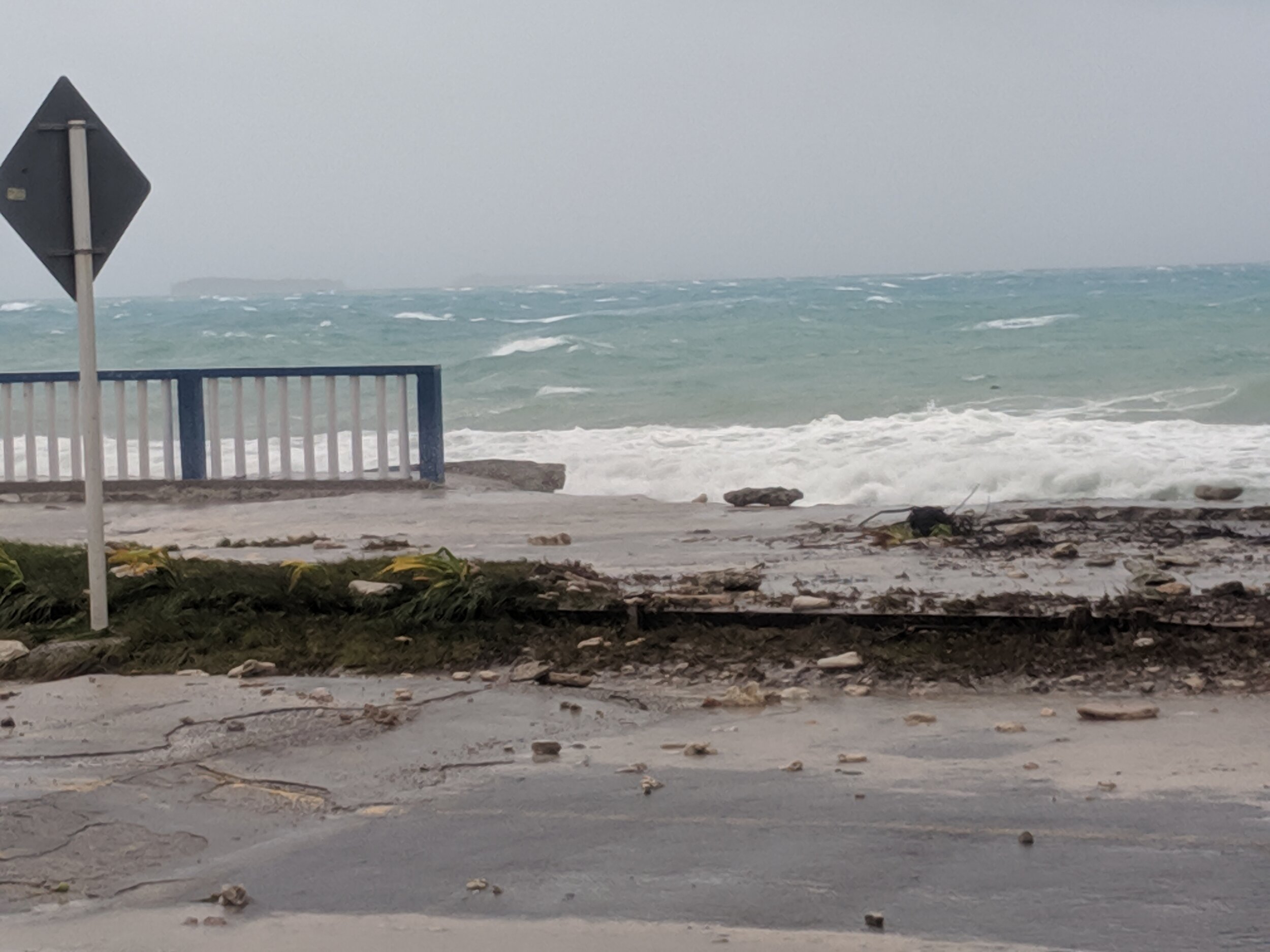


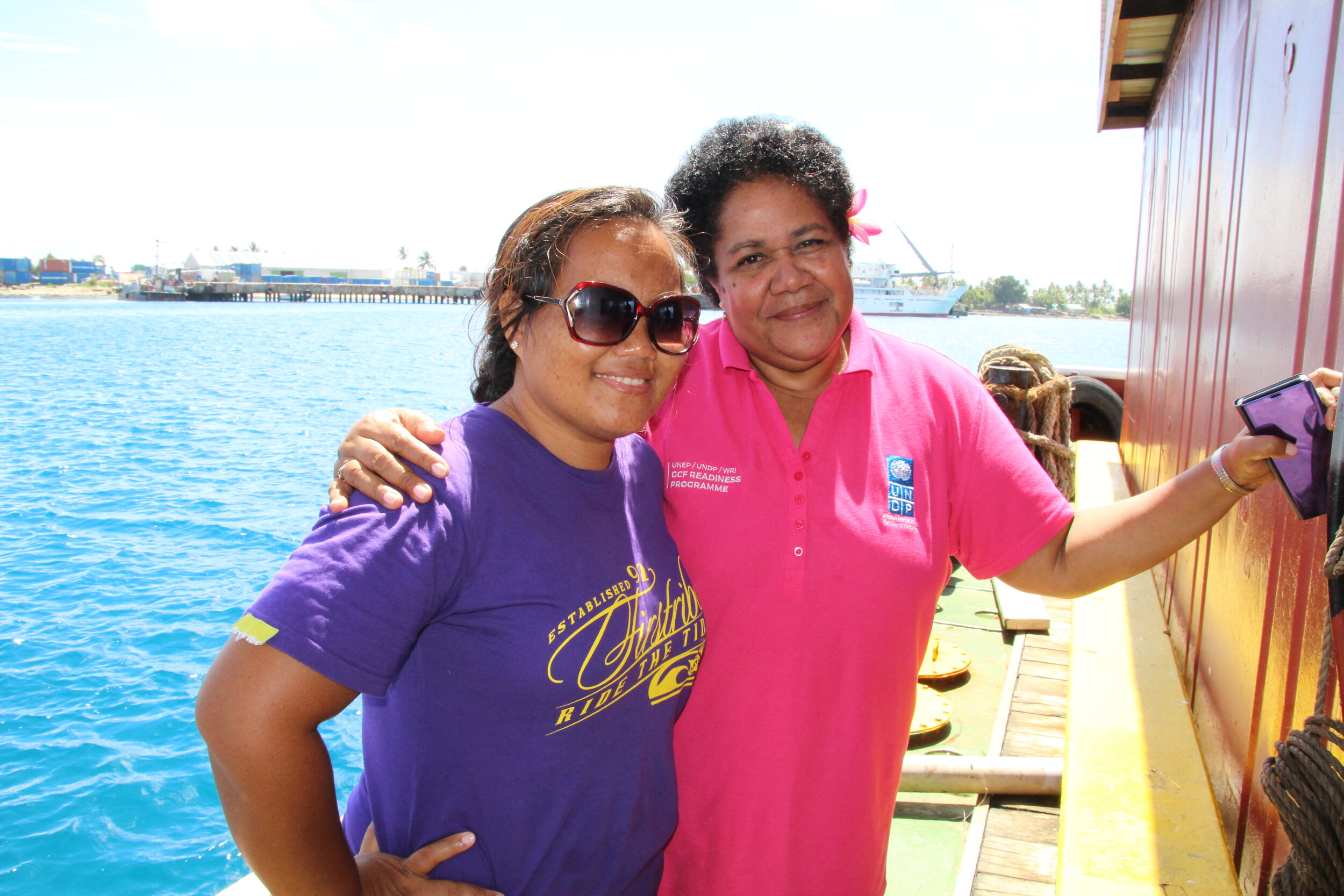
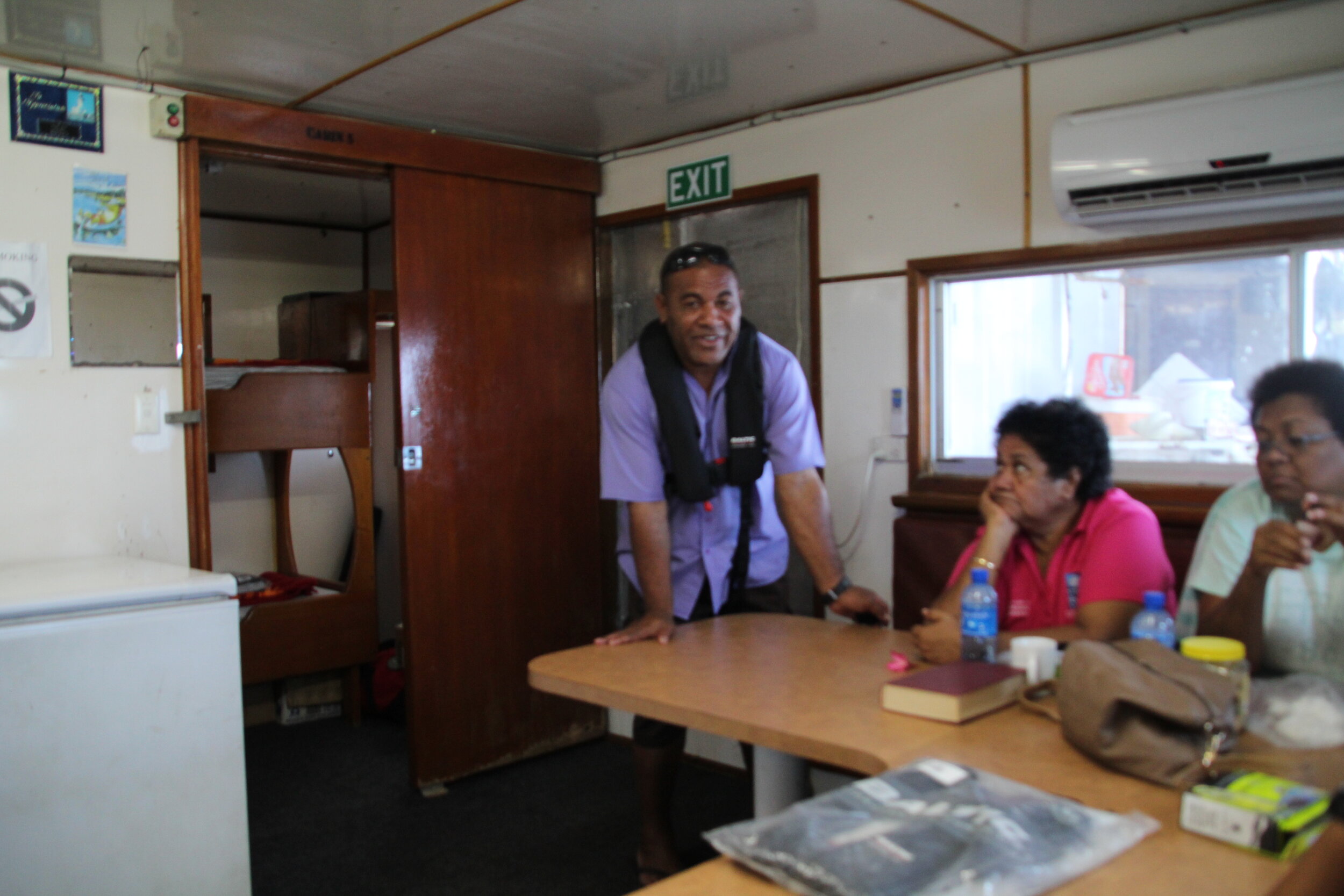
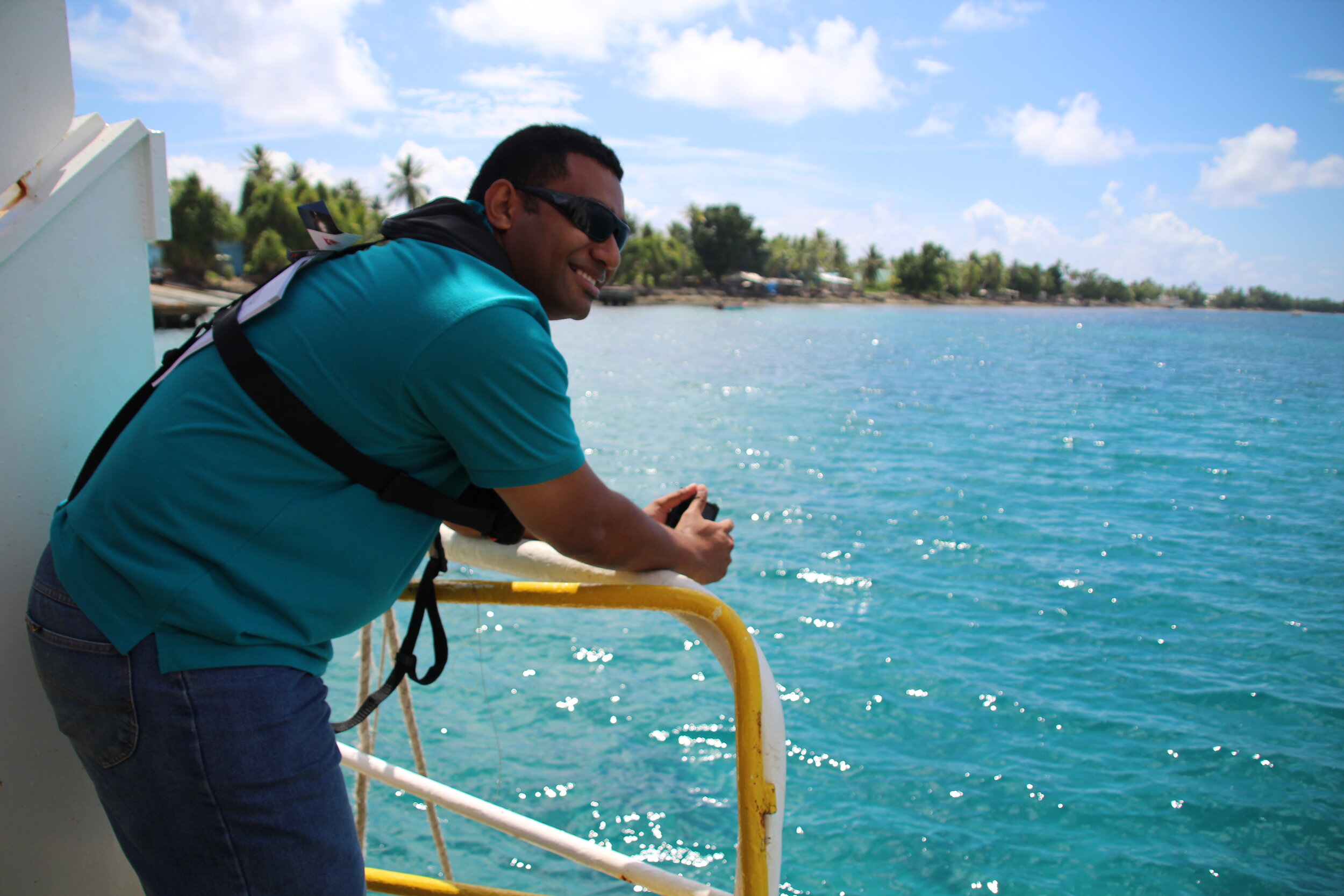
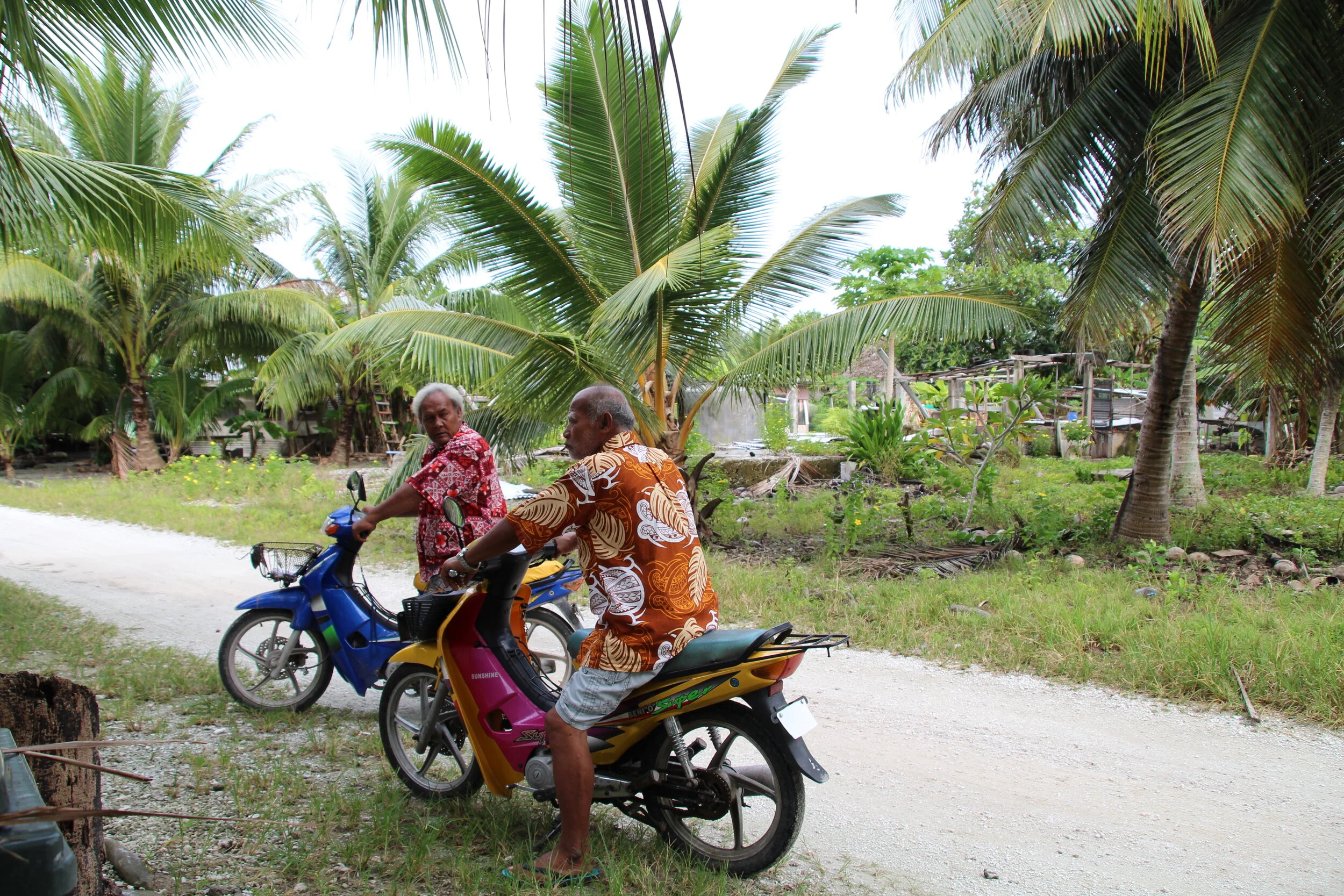
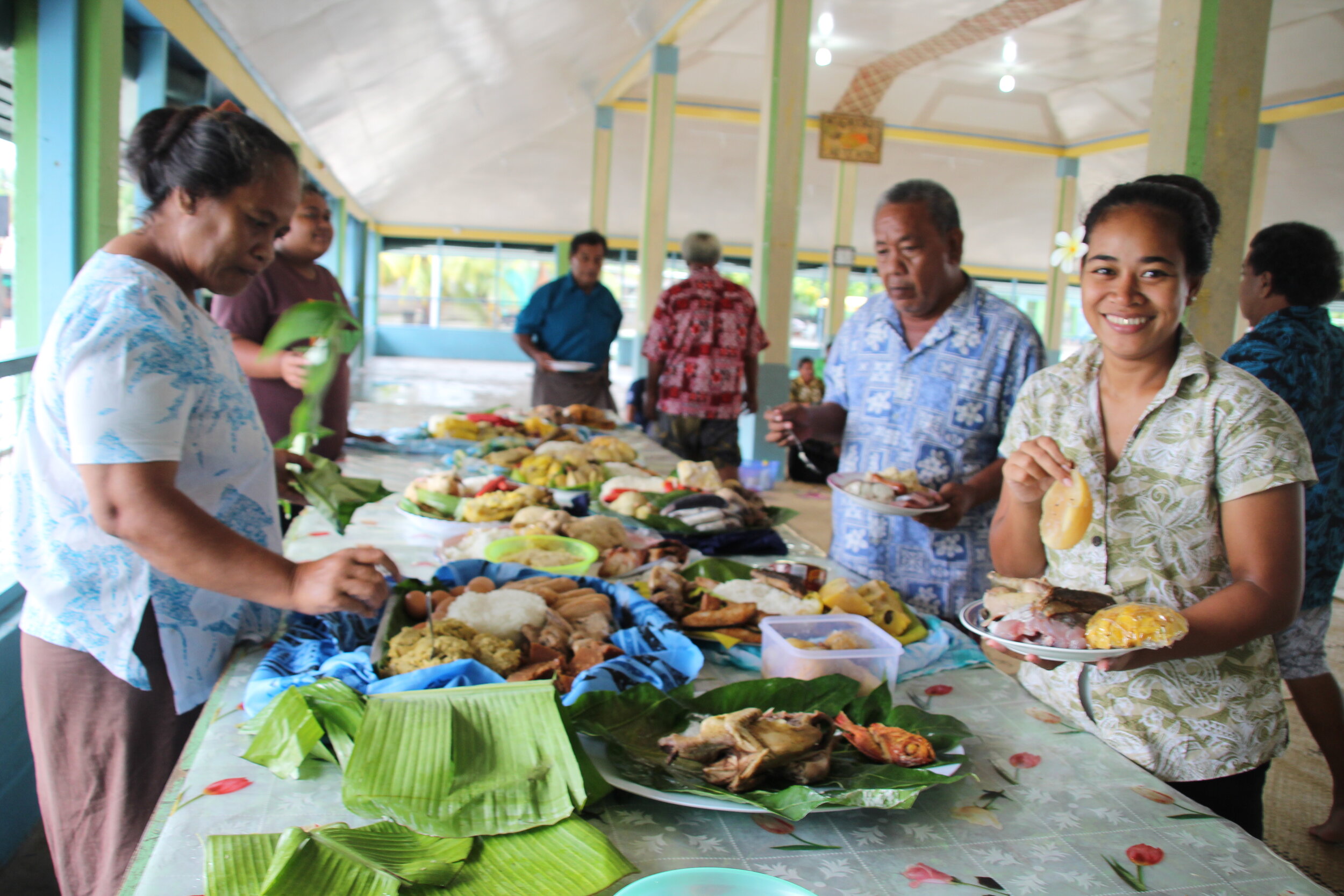

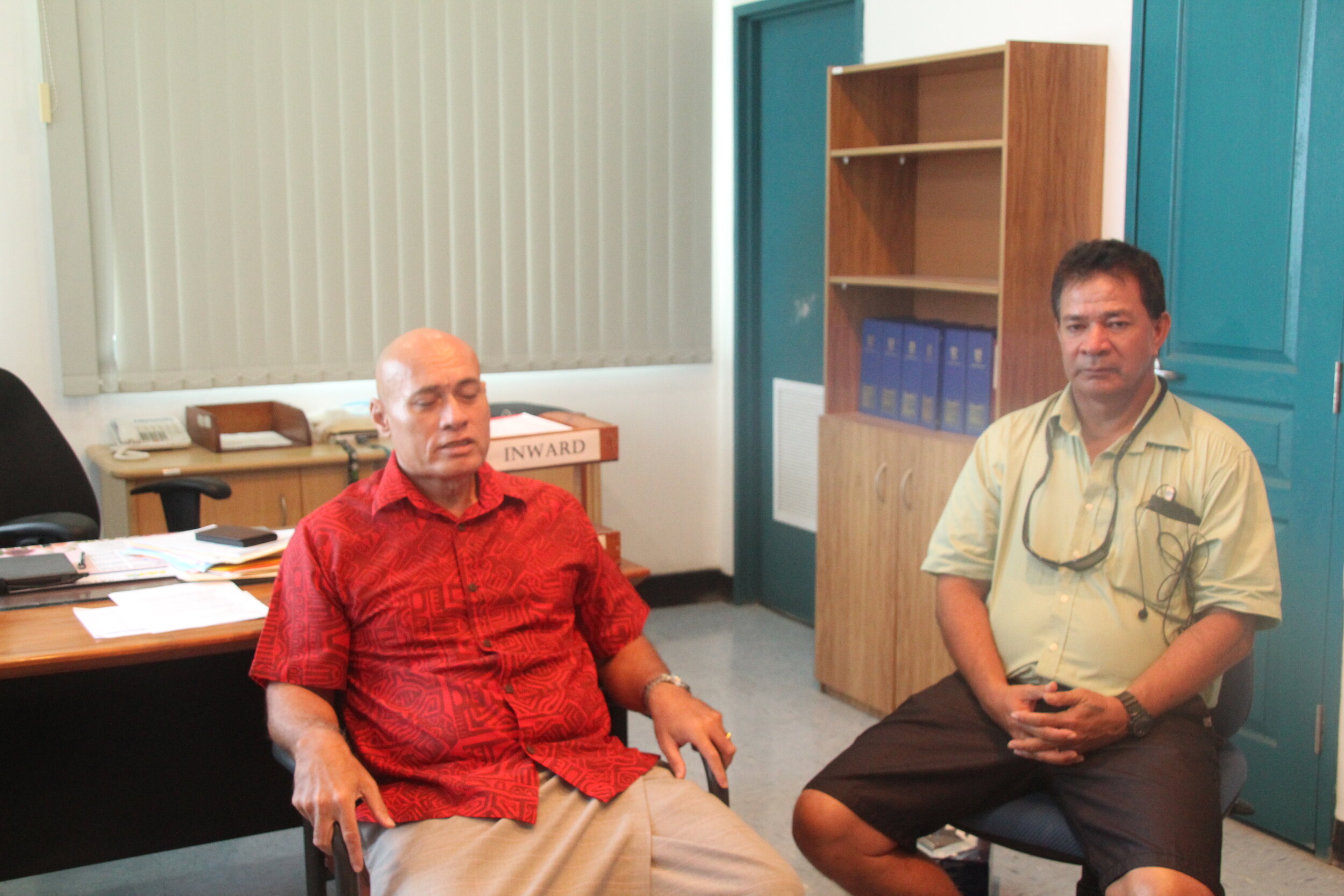
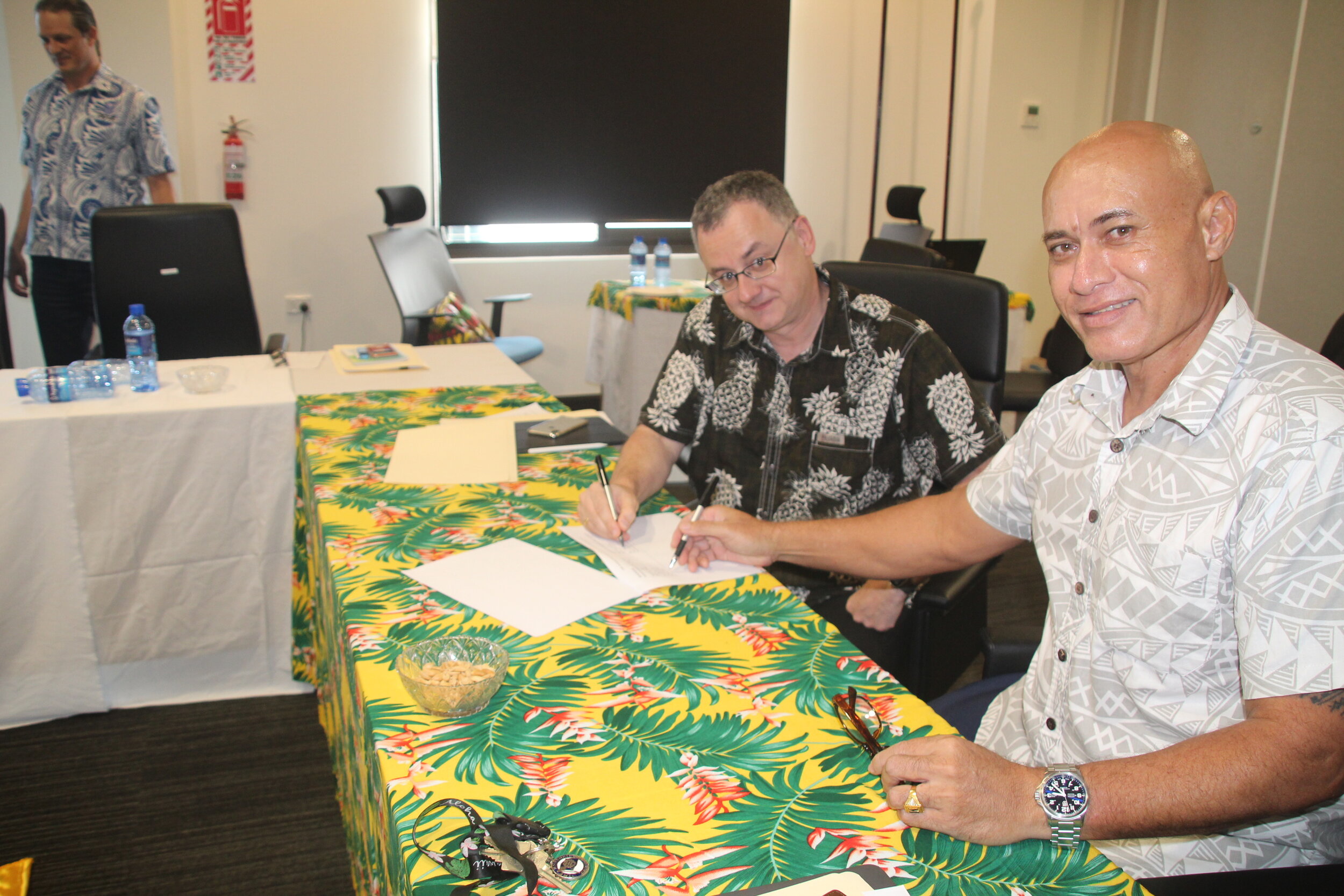

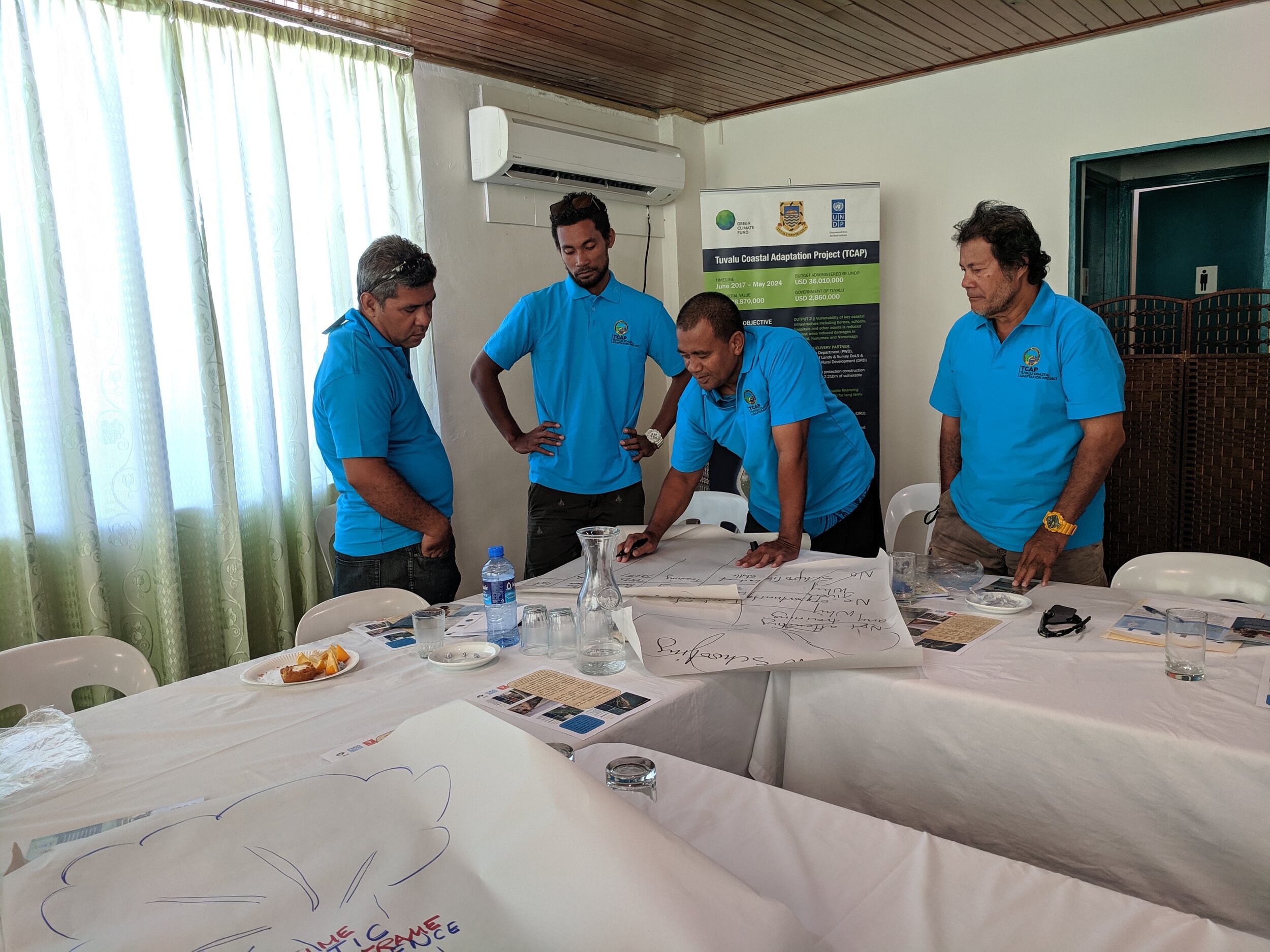
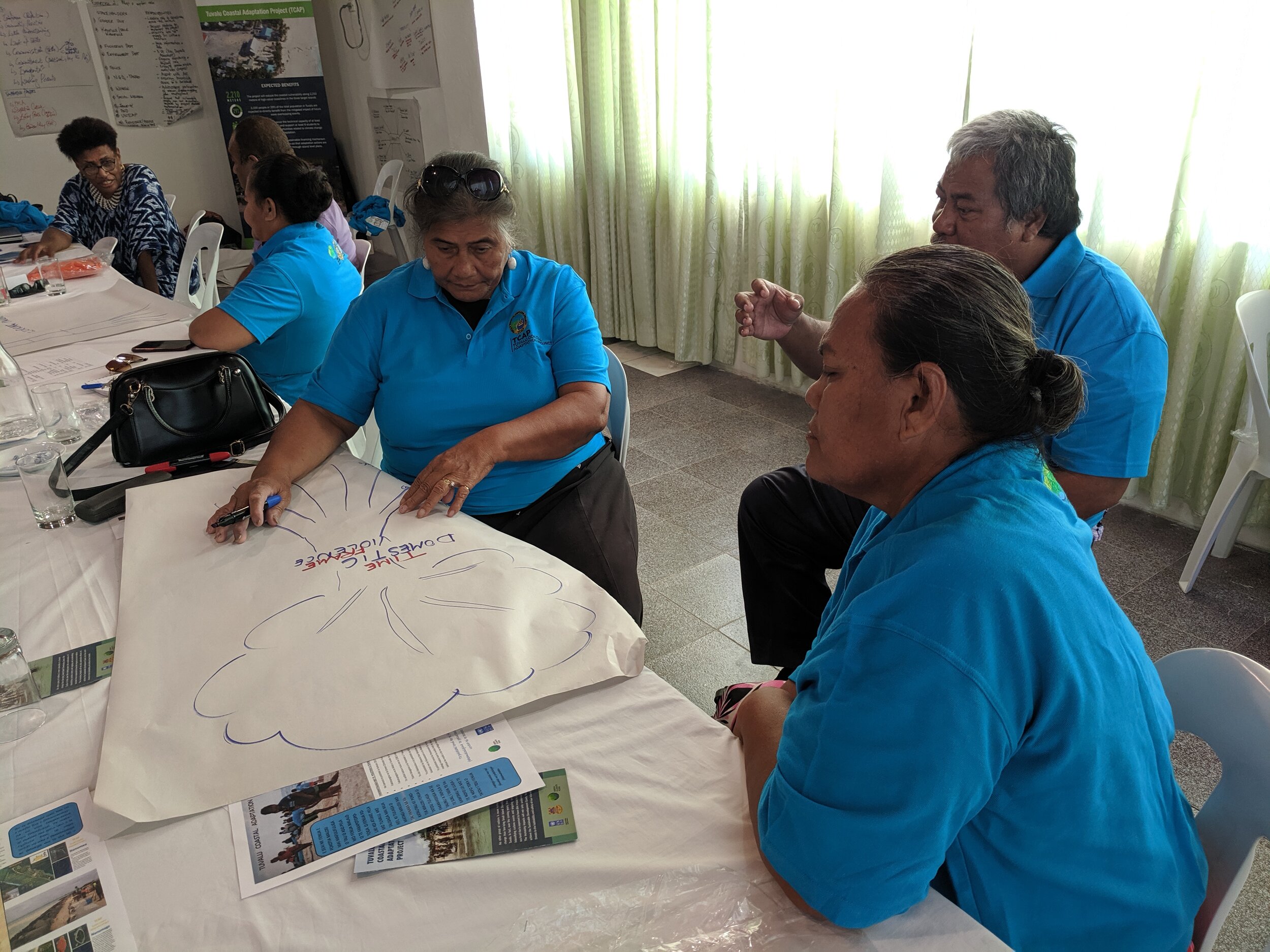
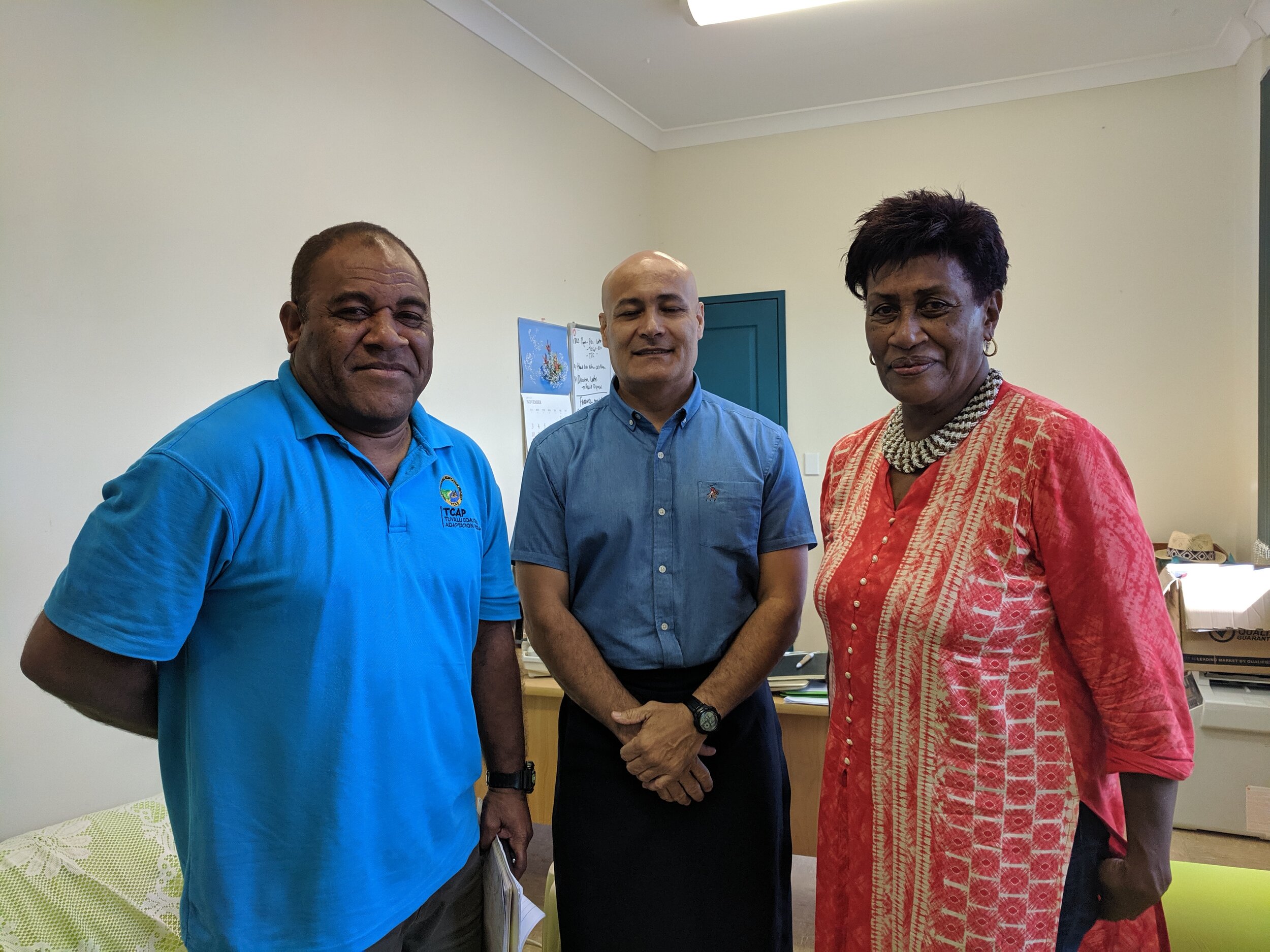
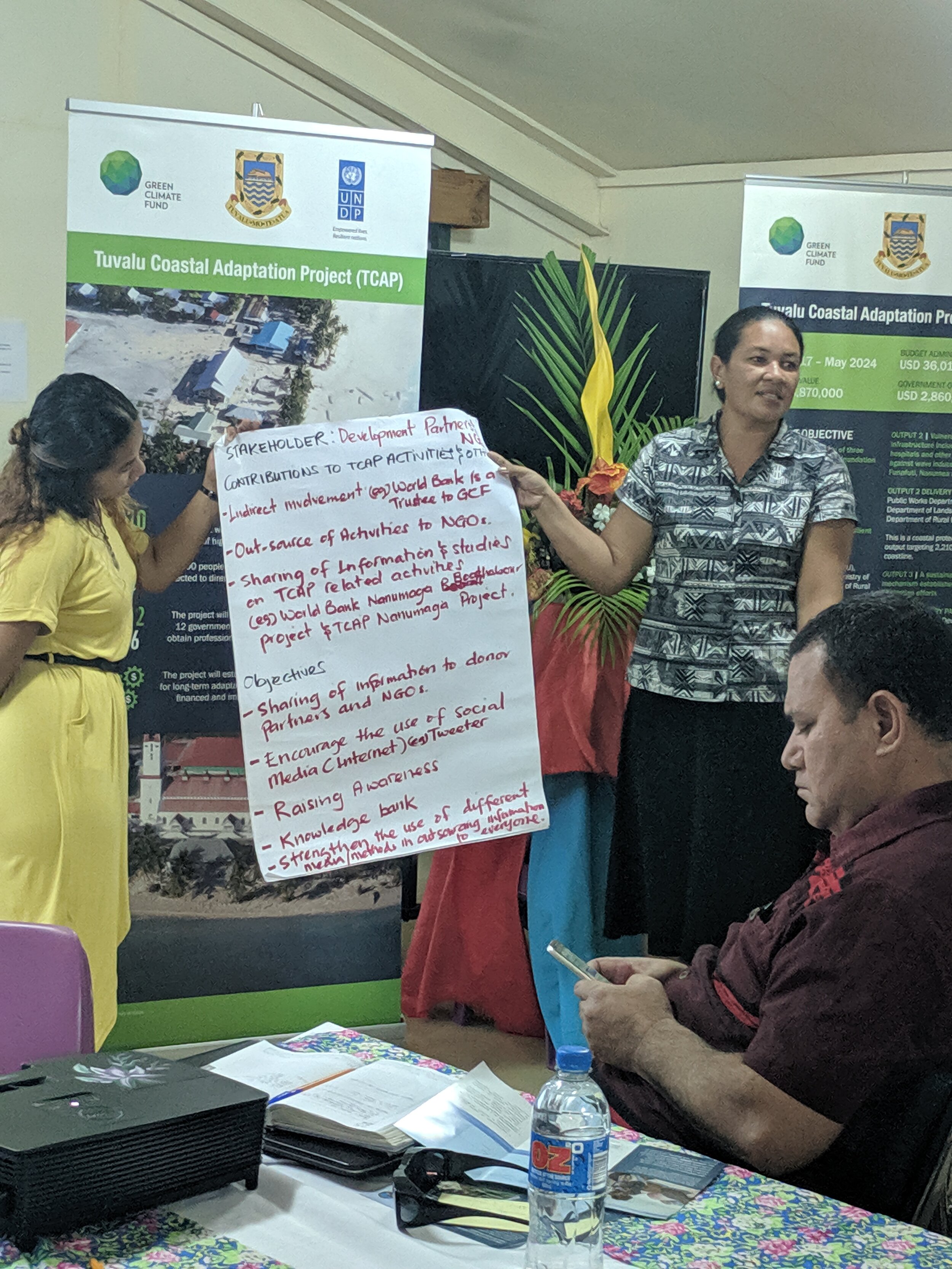
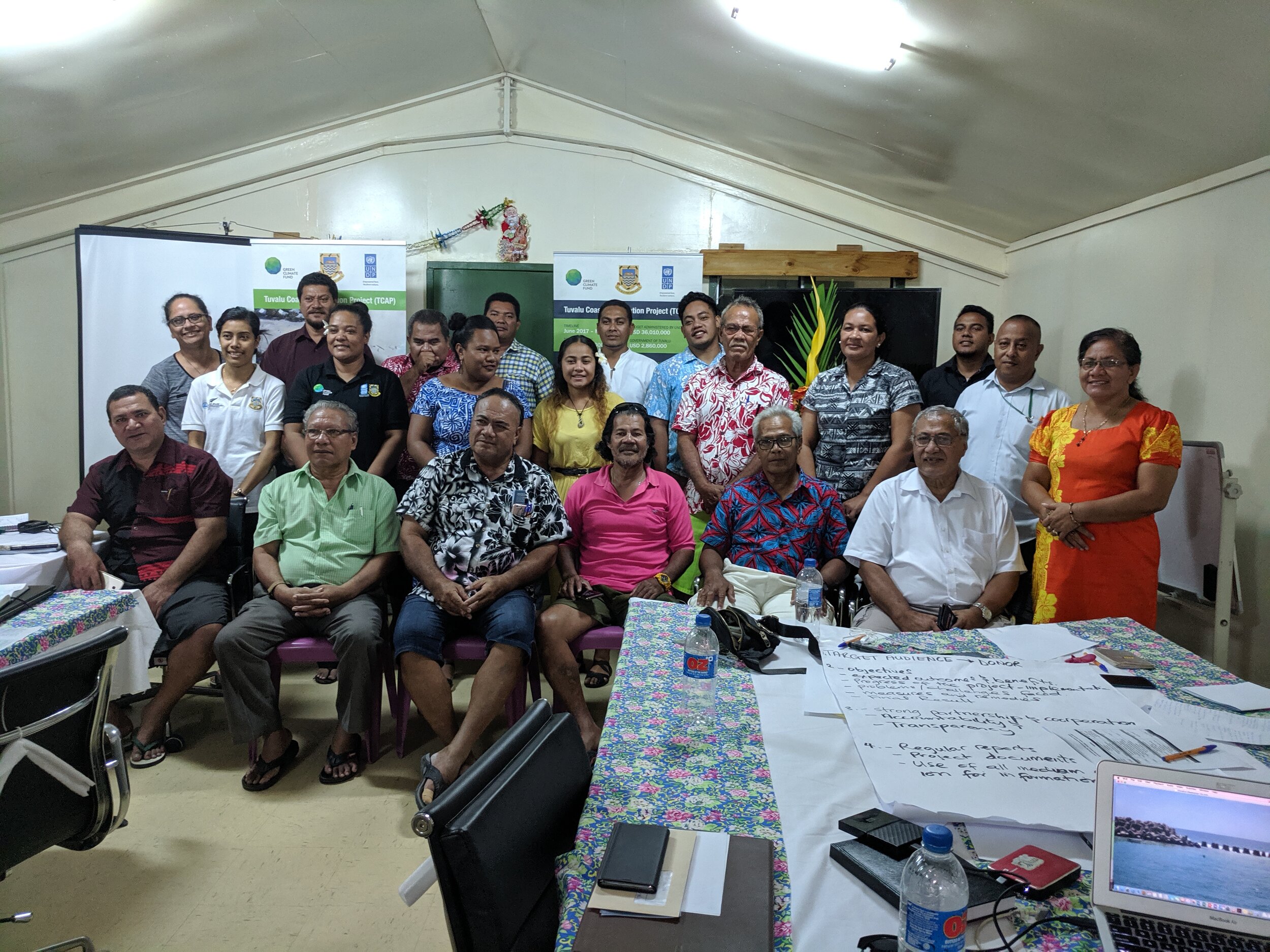
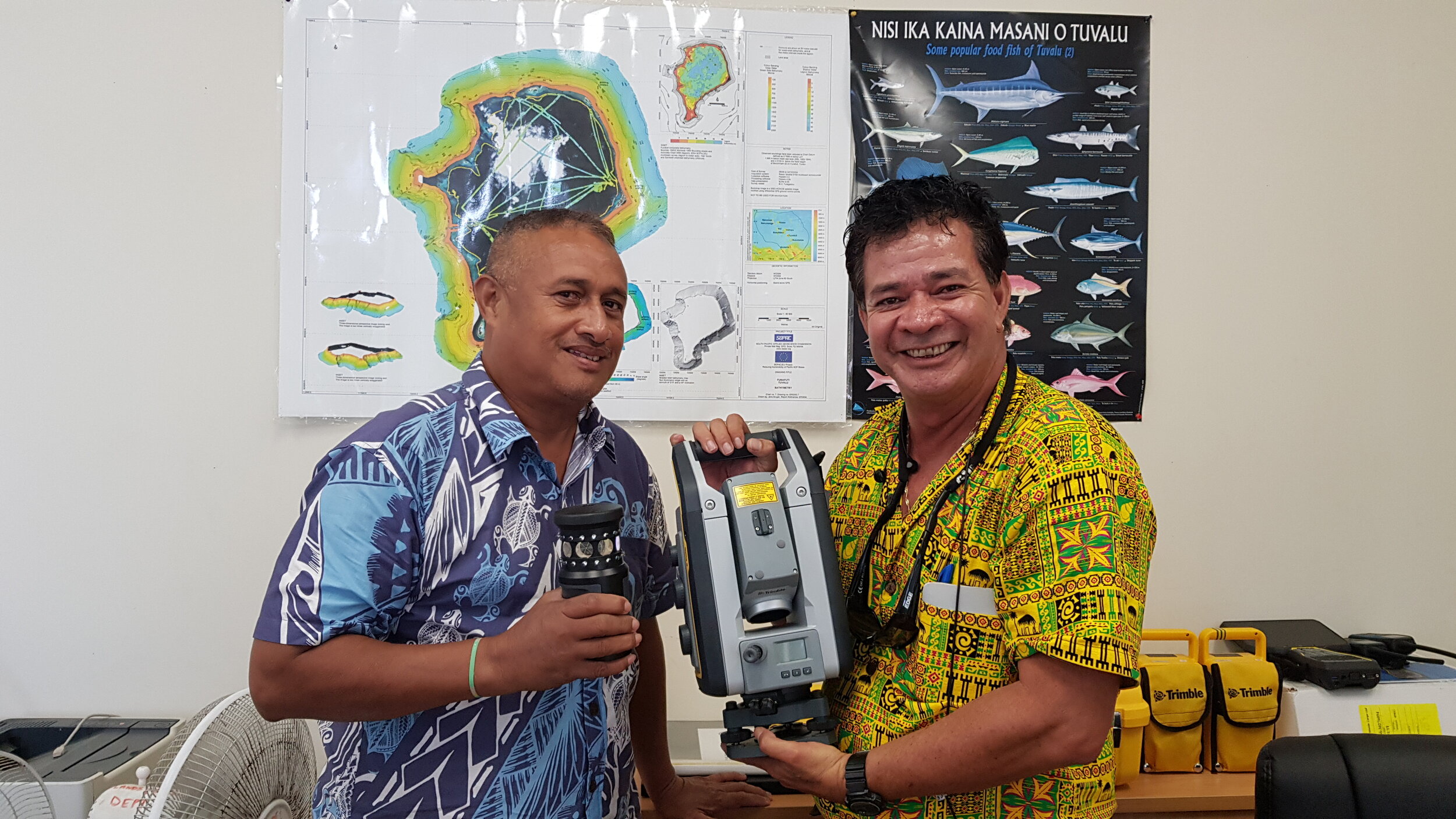
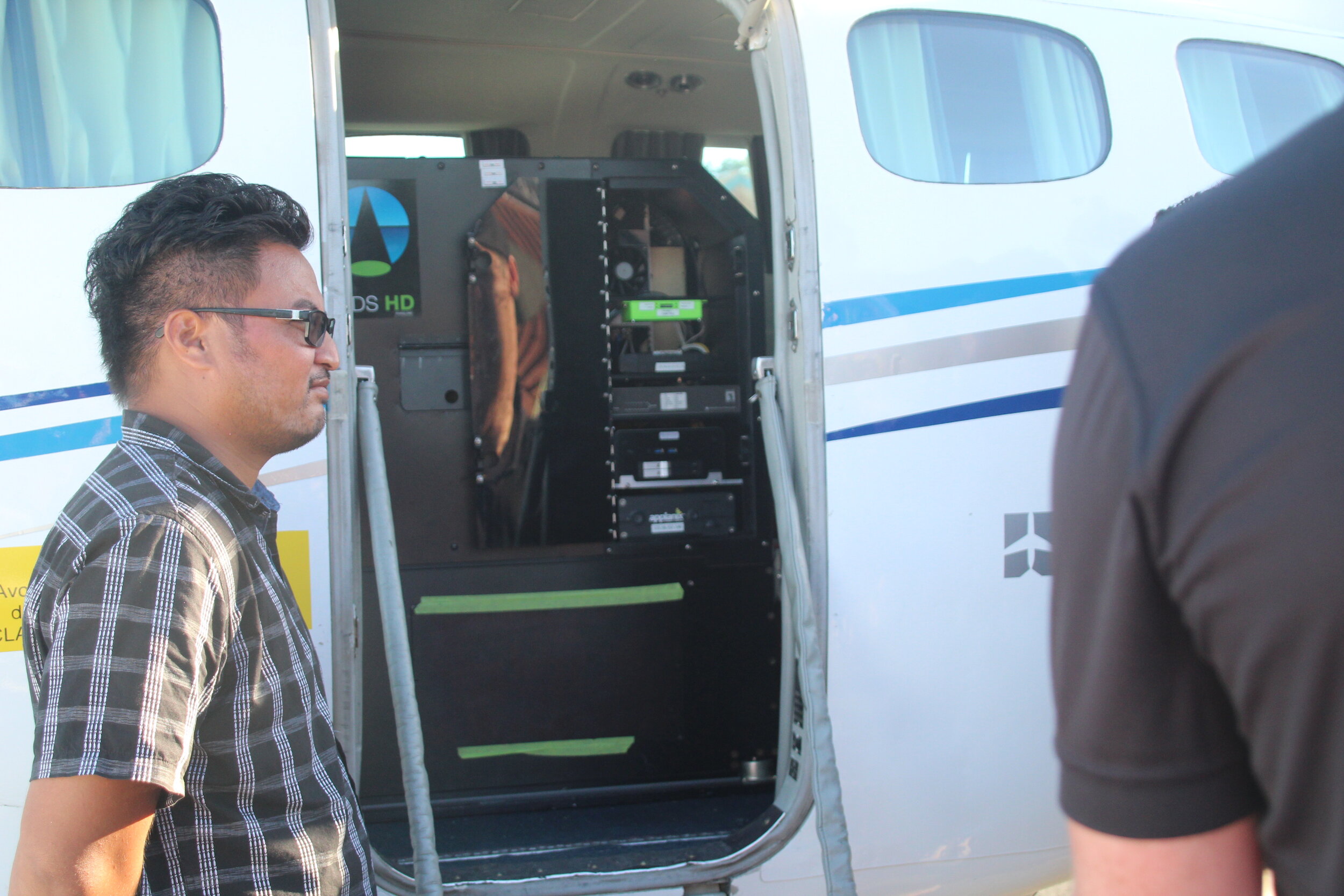
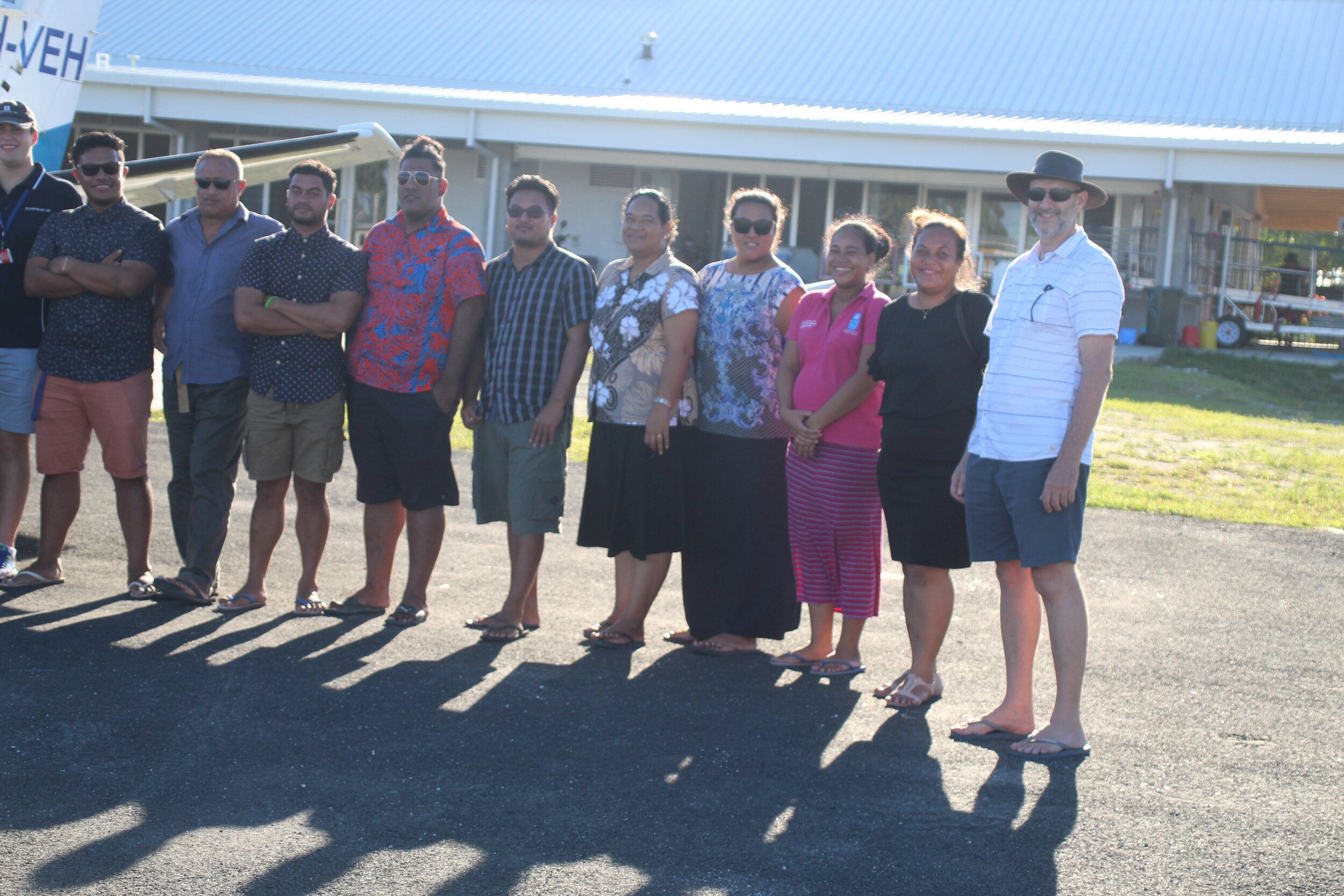
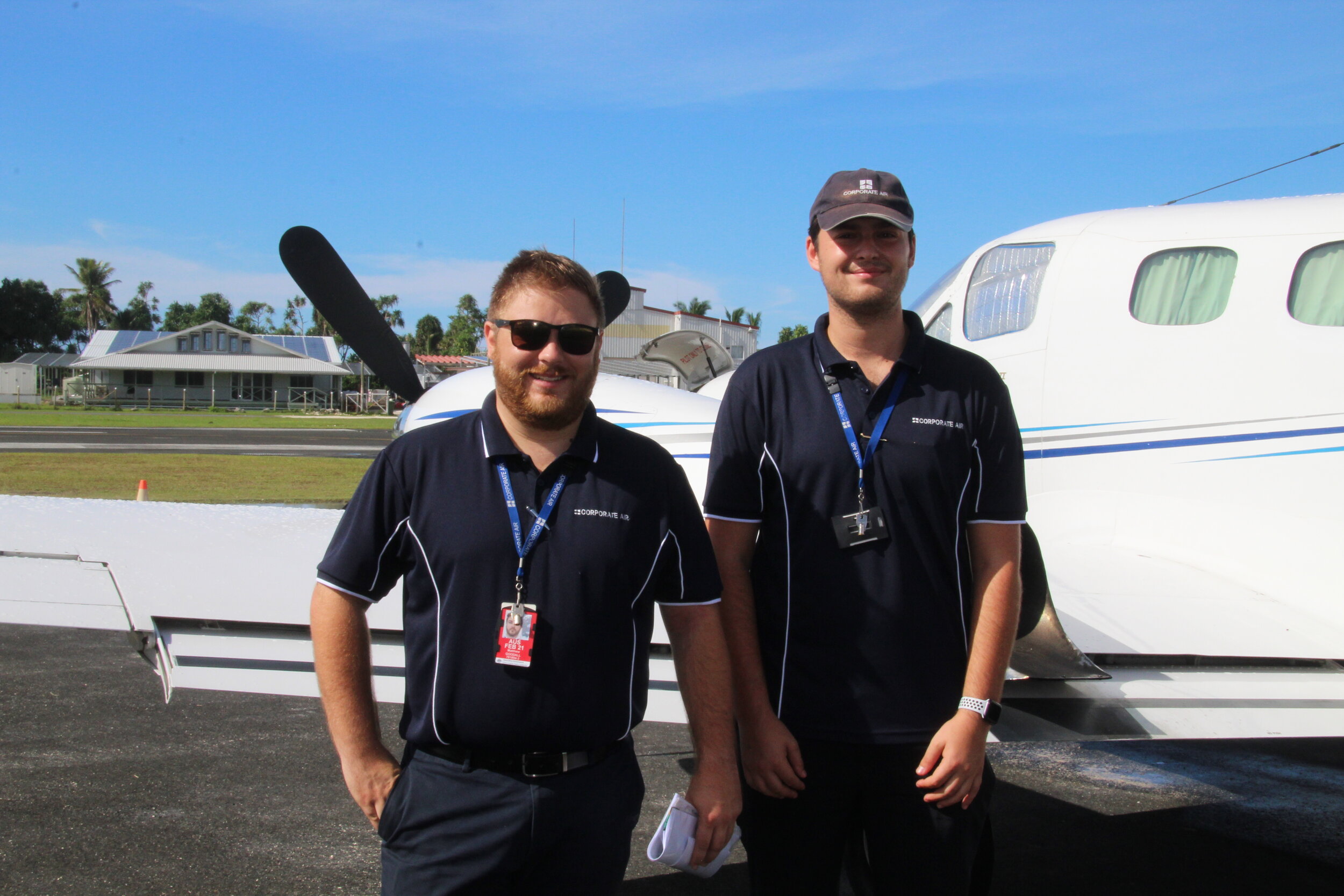
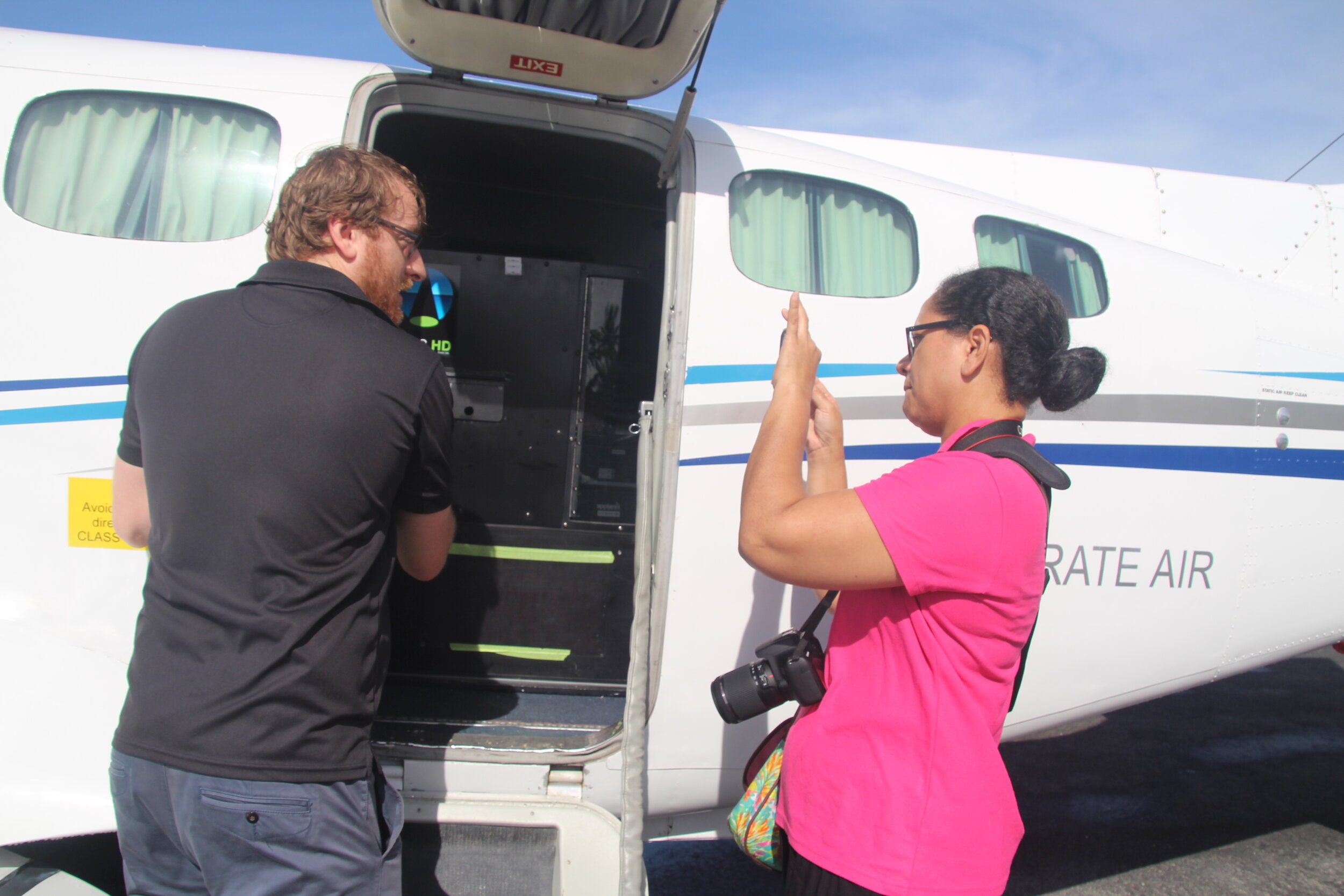
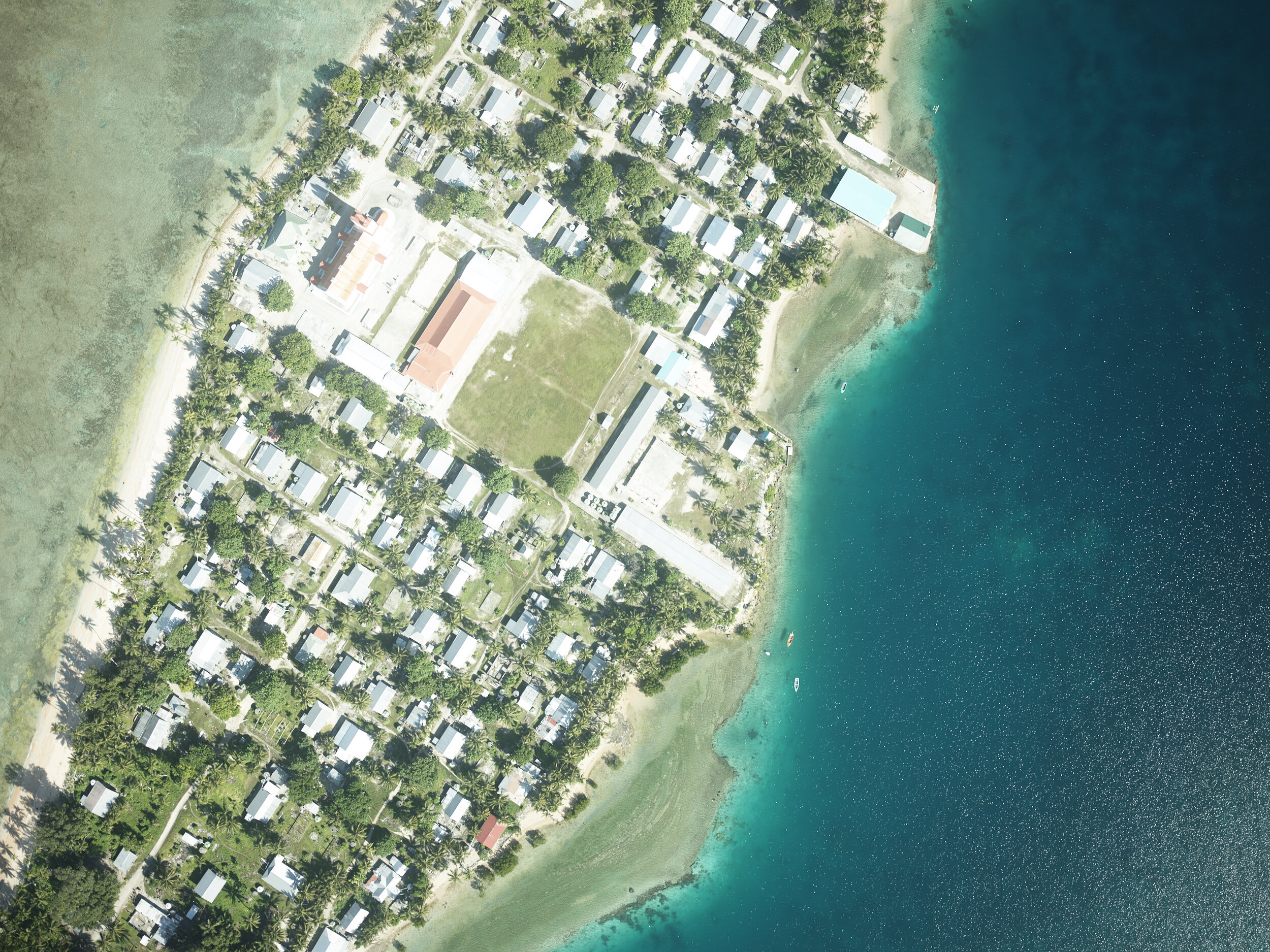
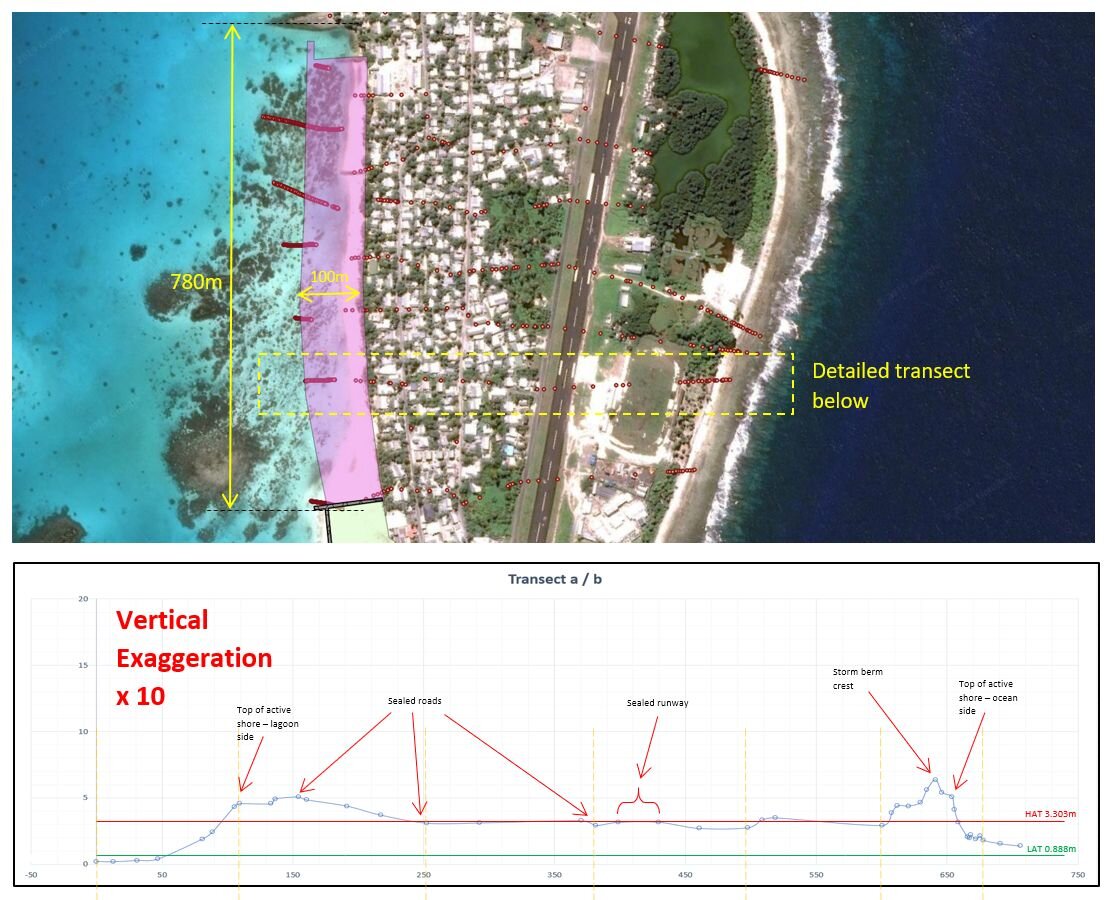
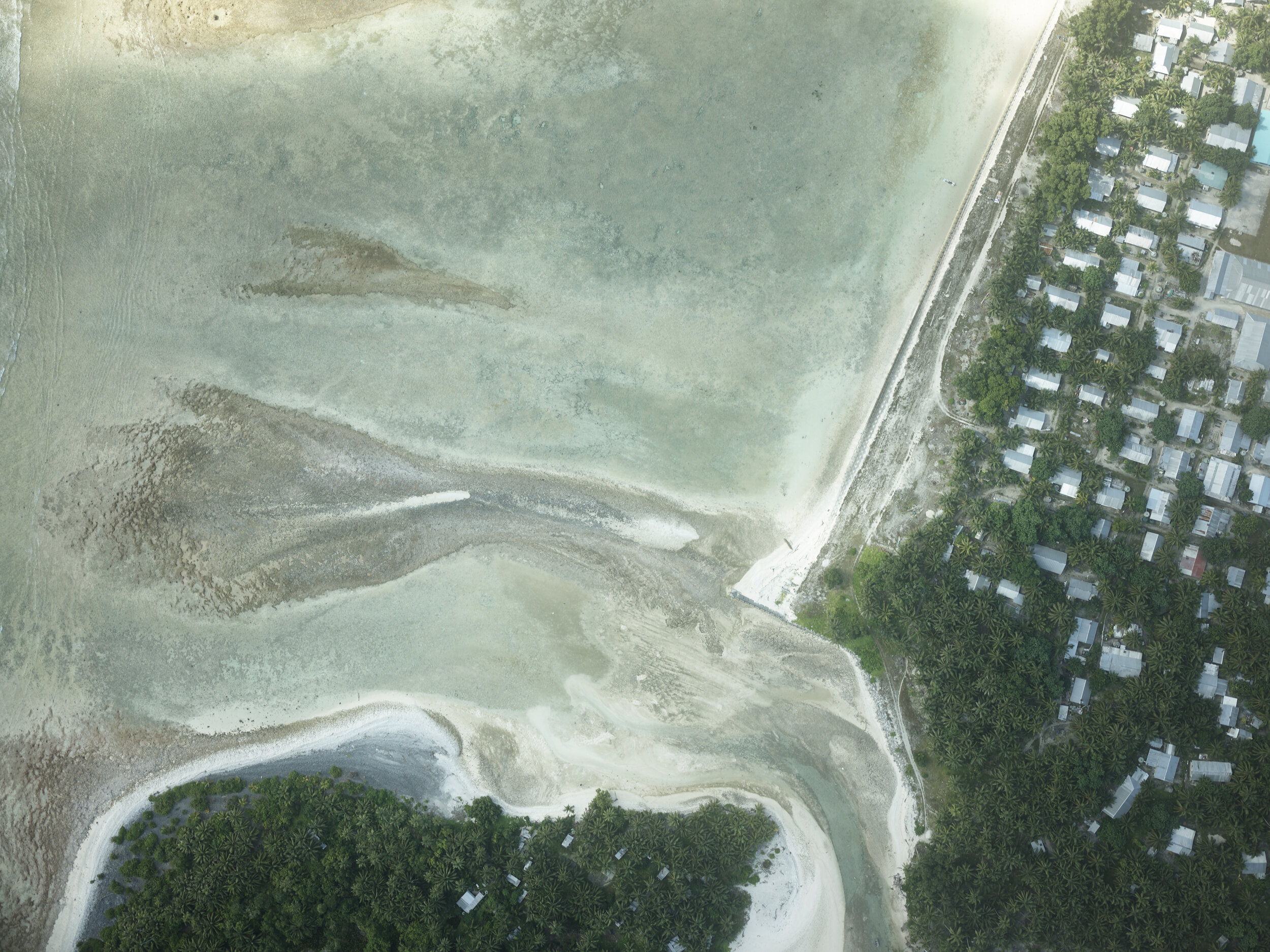
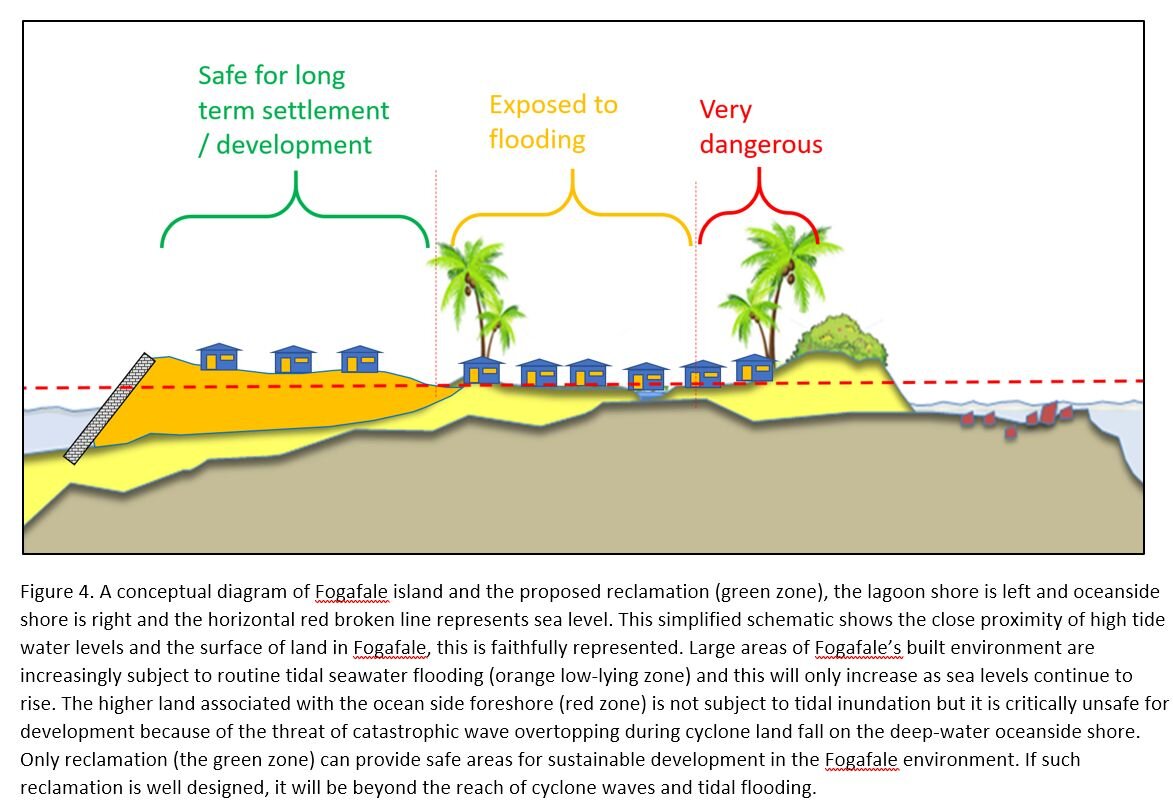
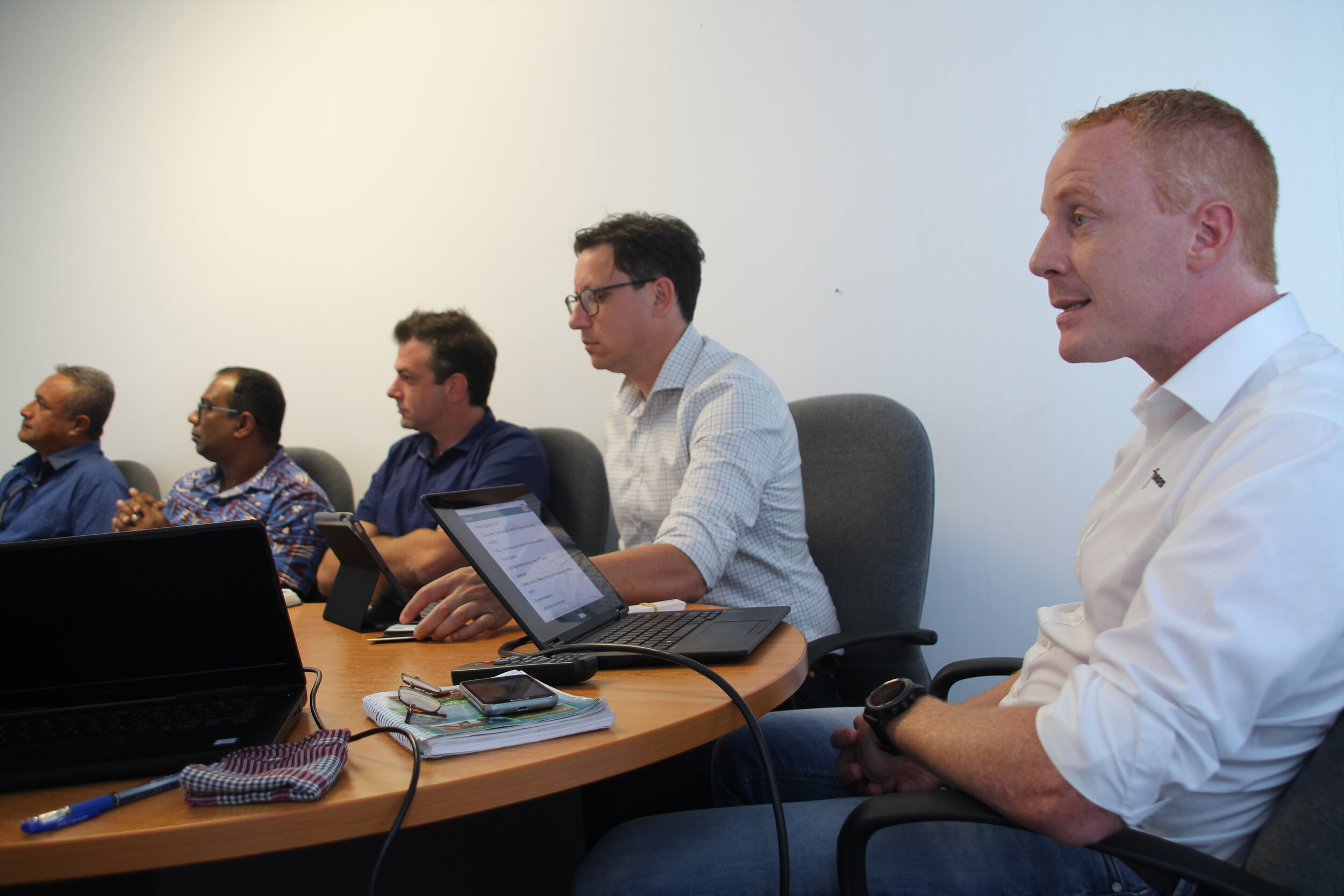

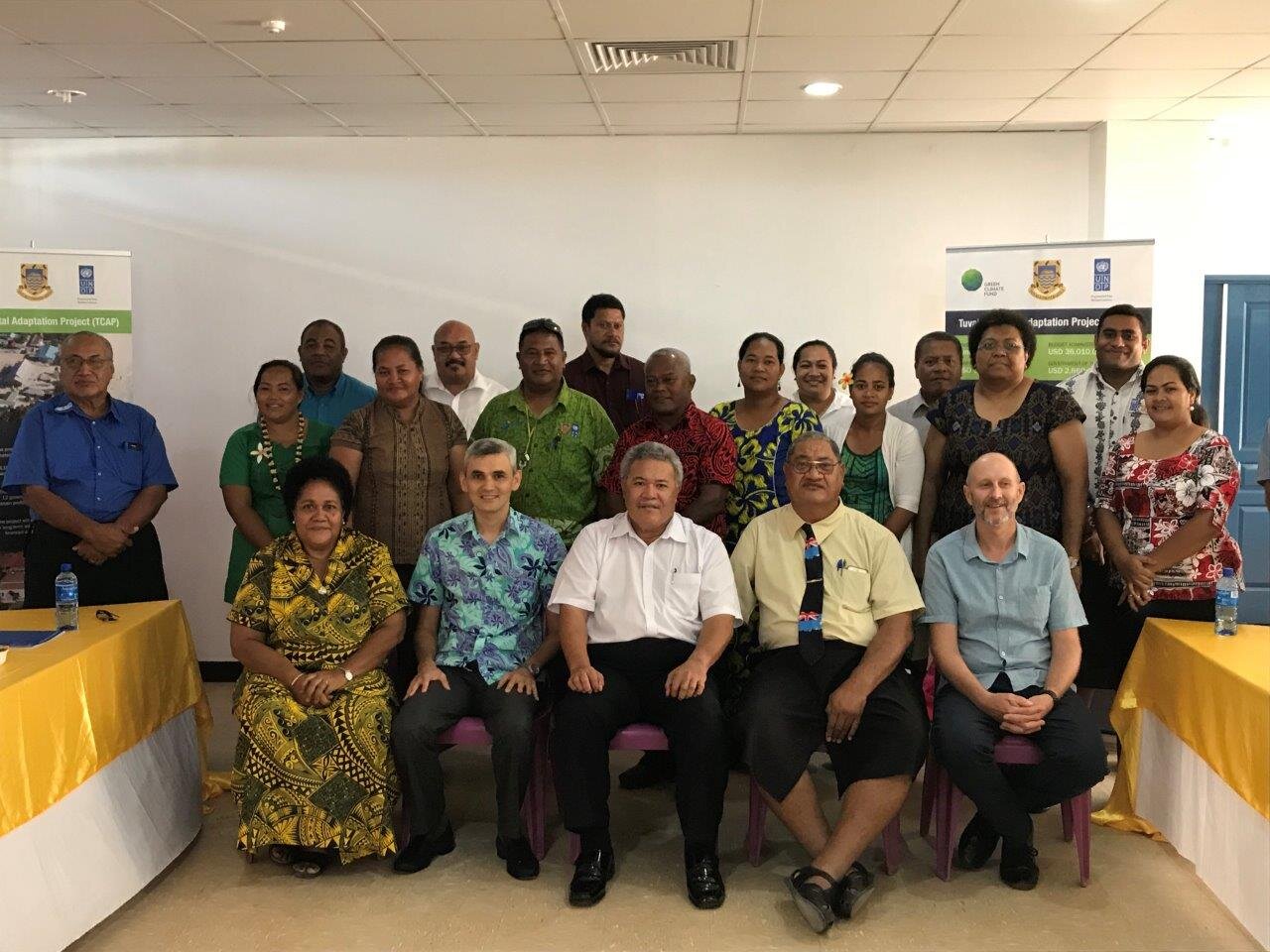
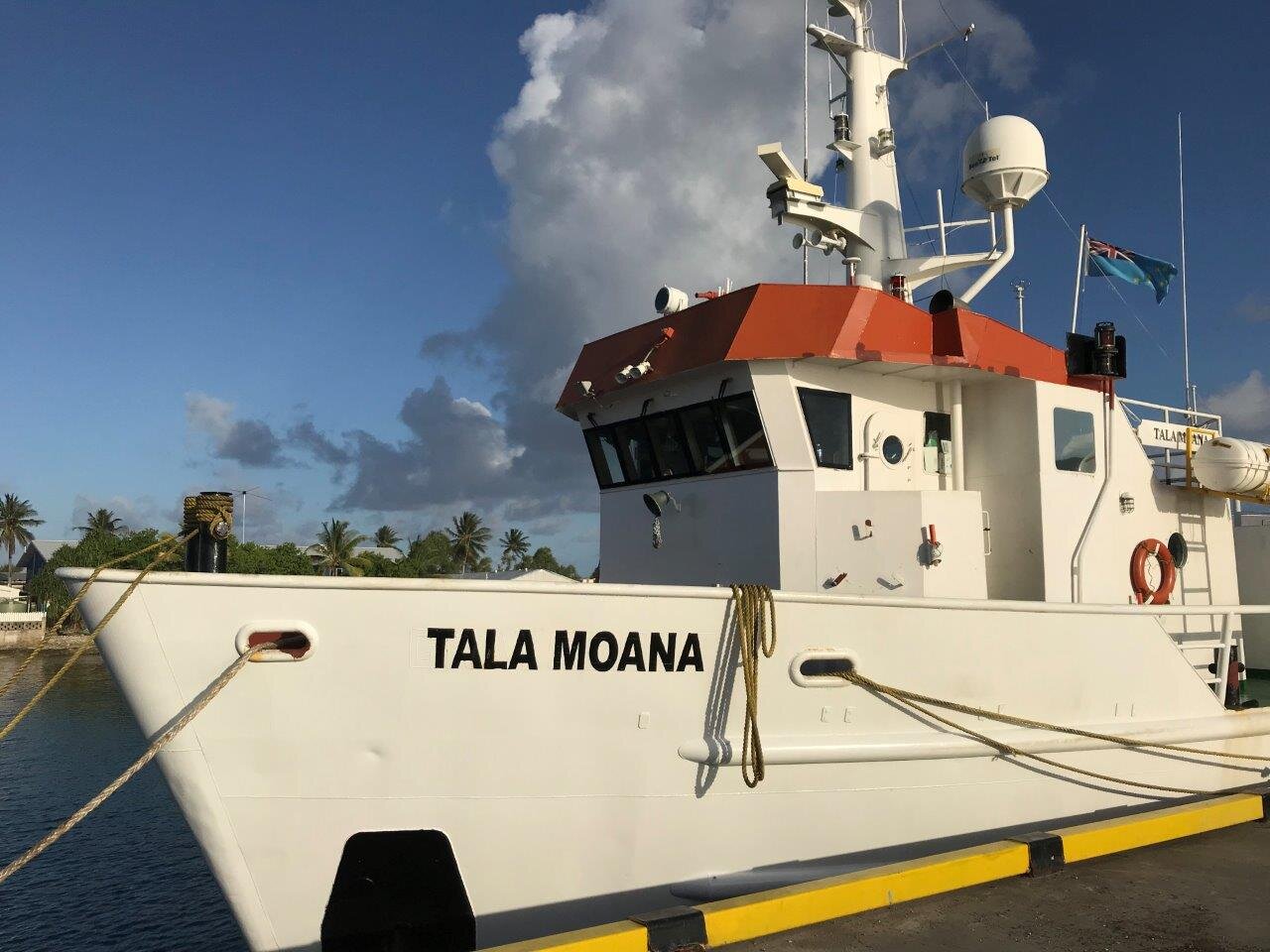
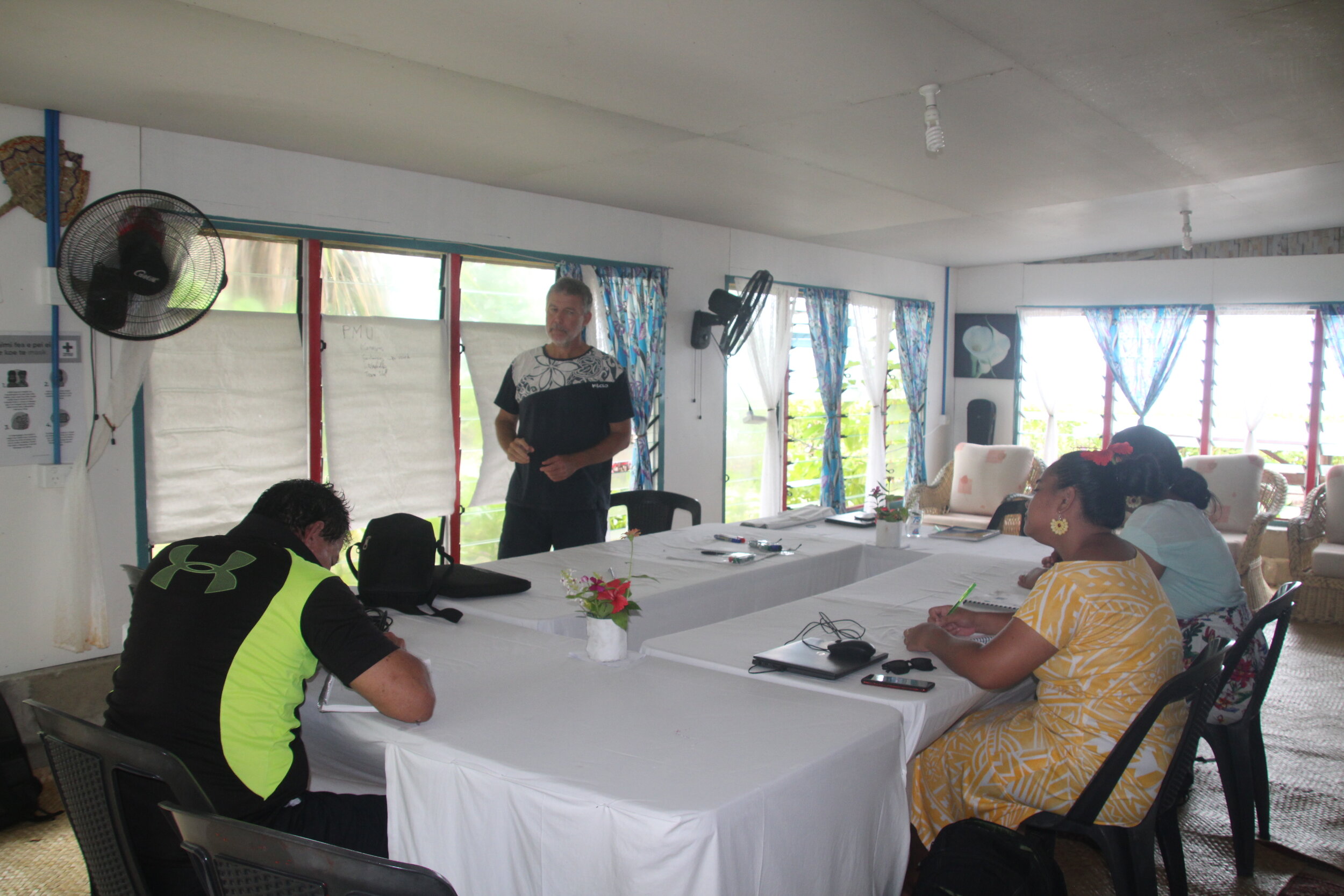
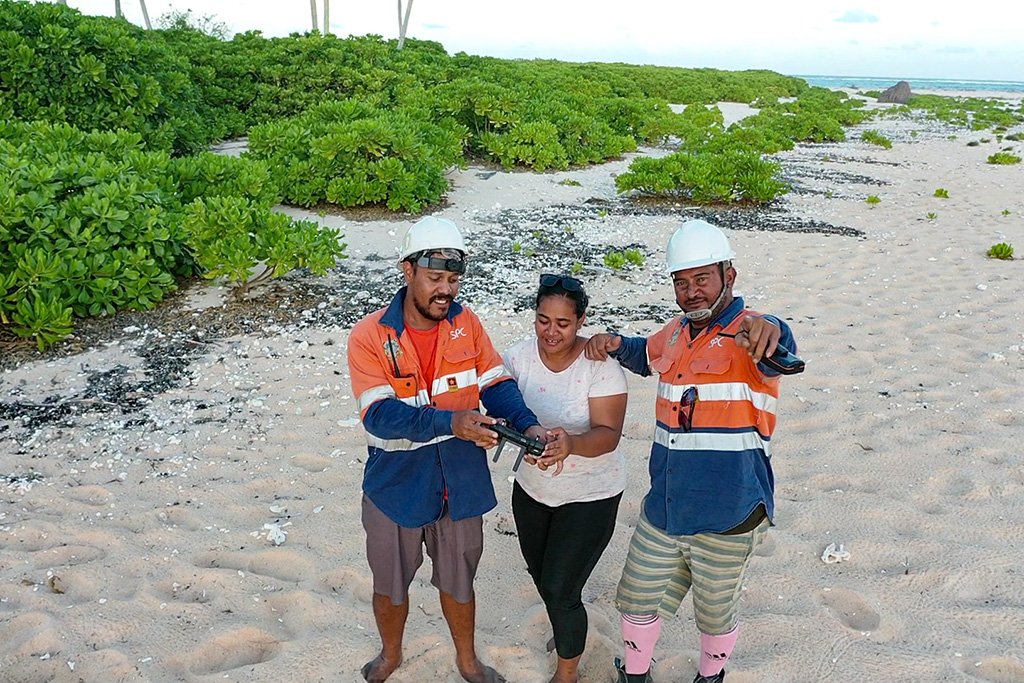
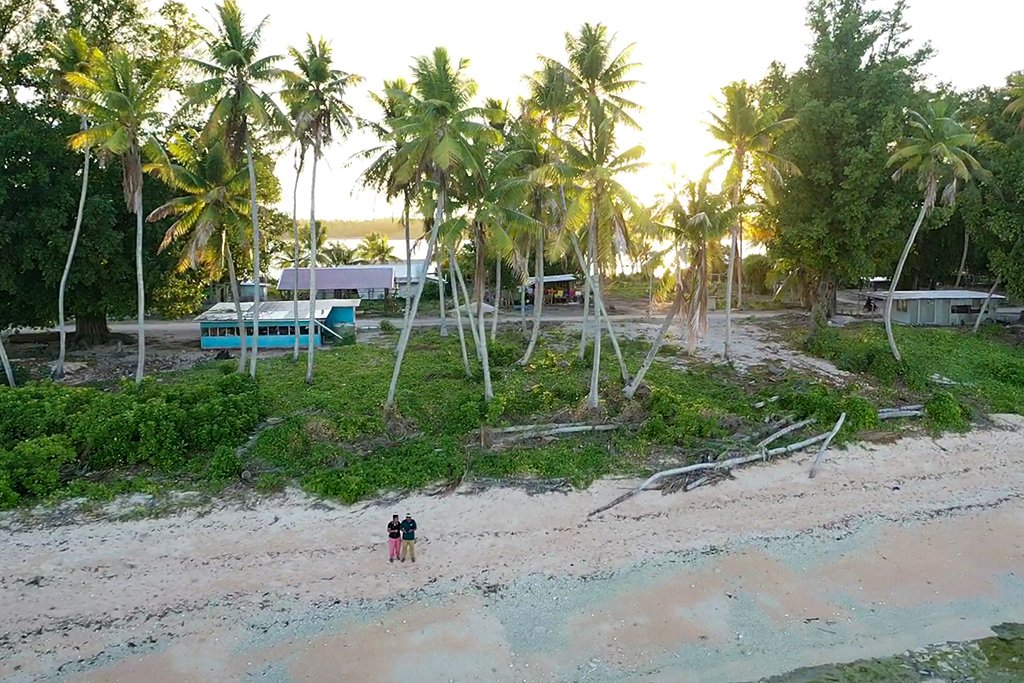
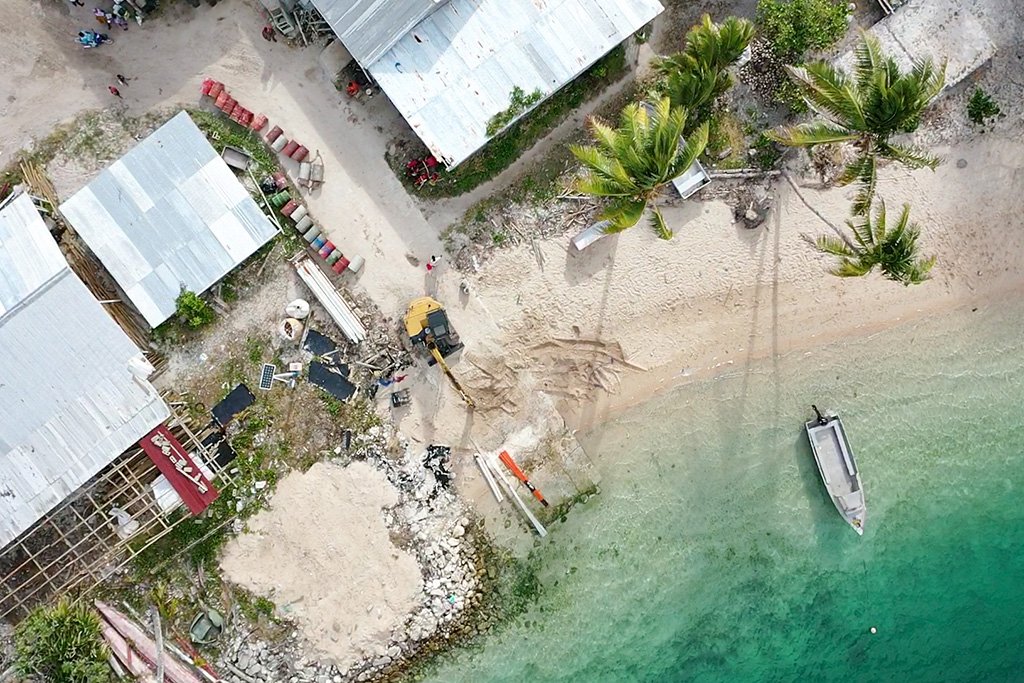
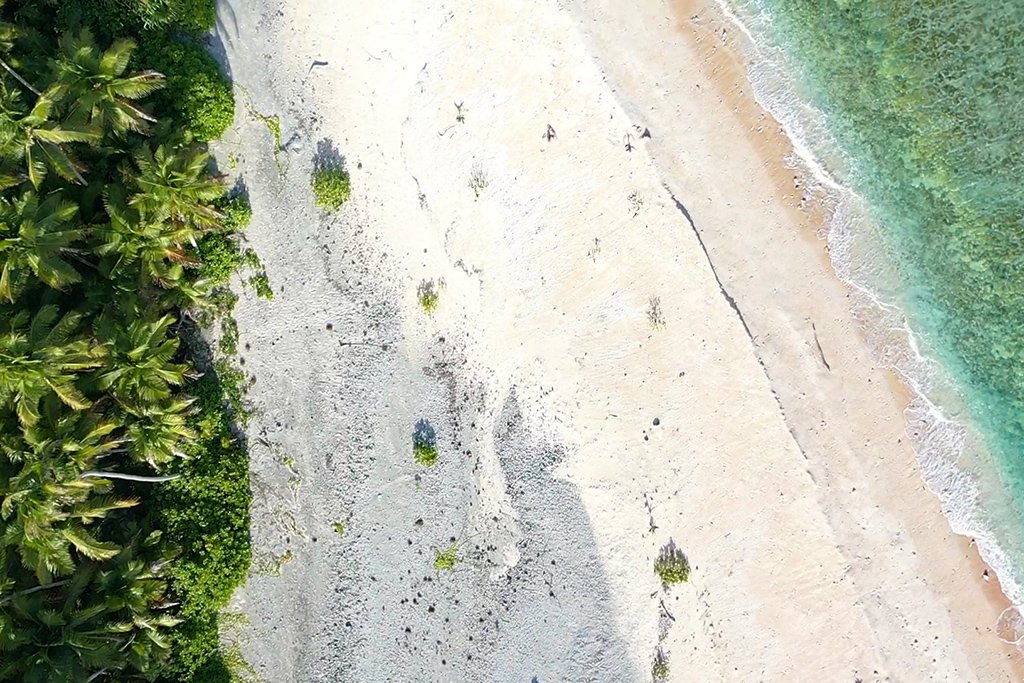
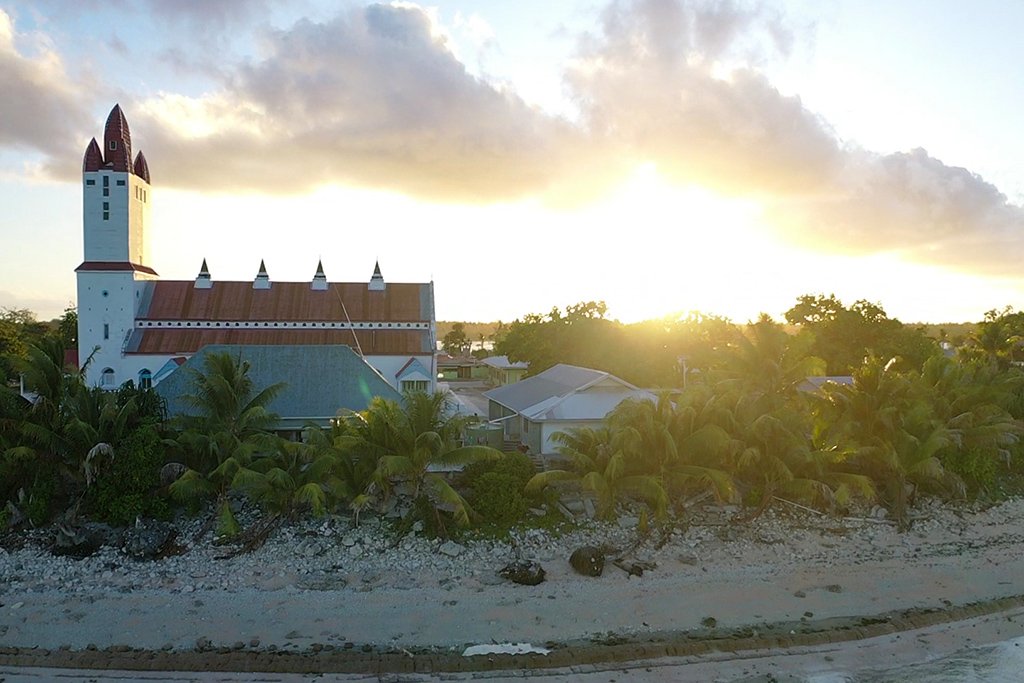
FEATURED VIDEOS



